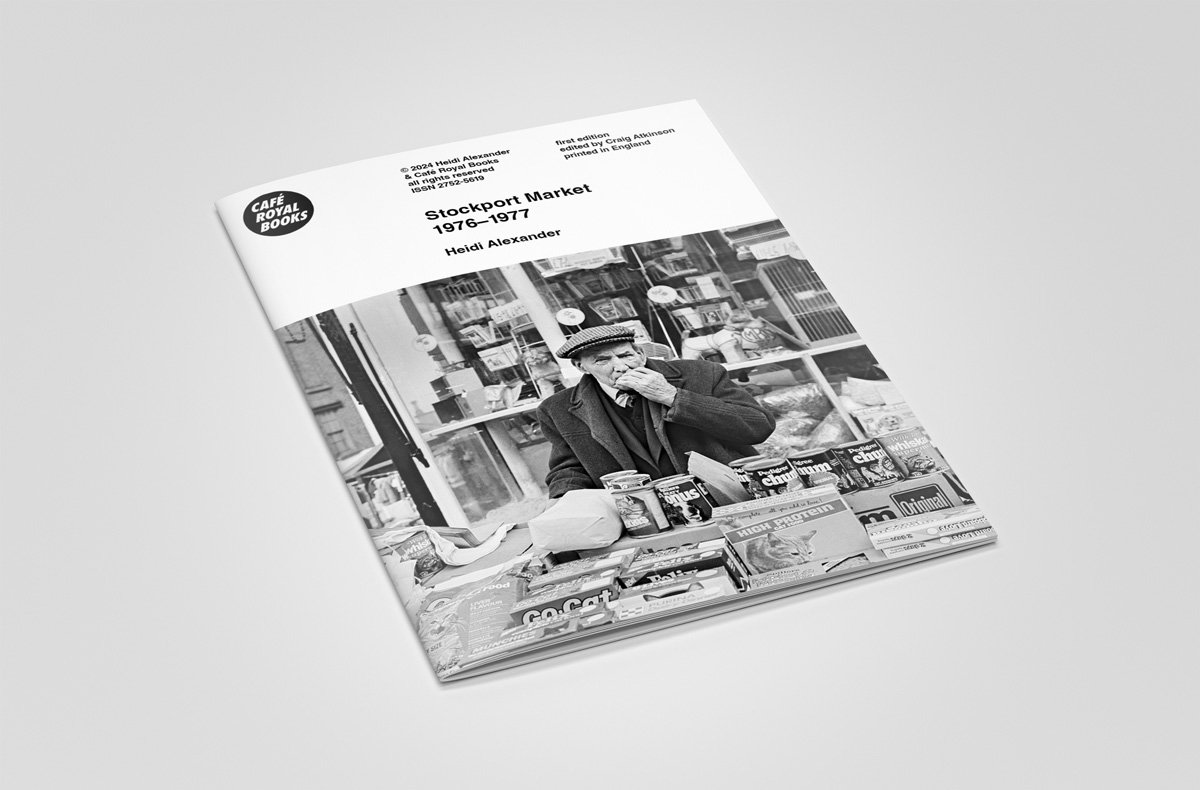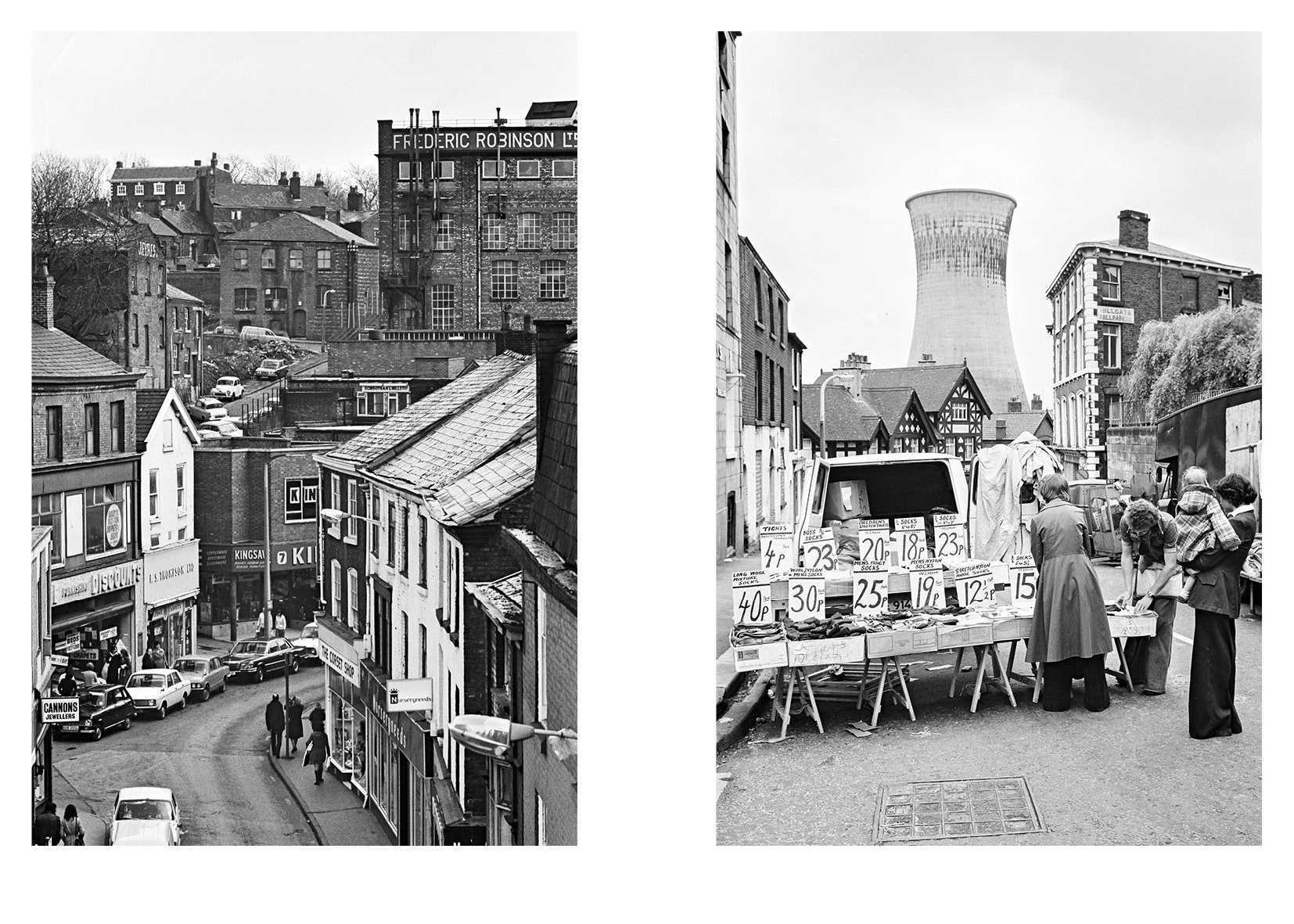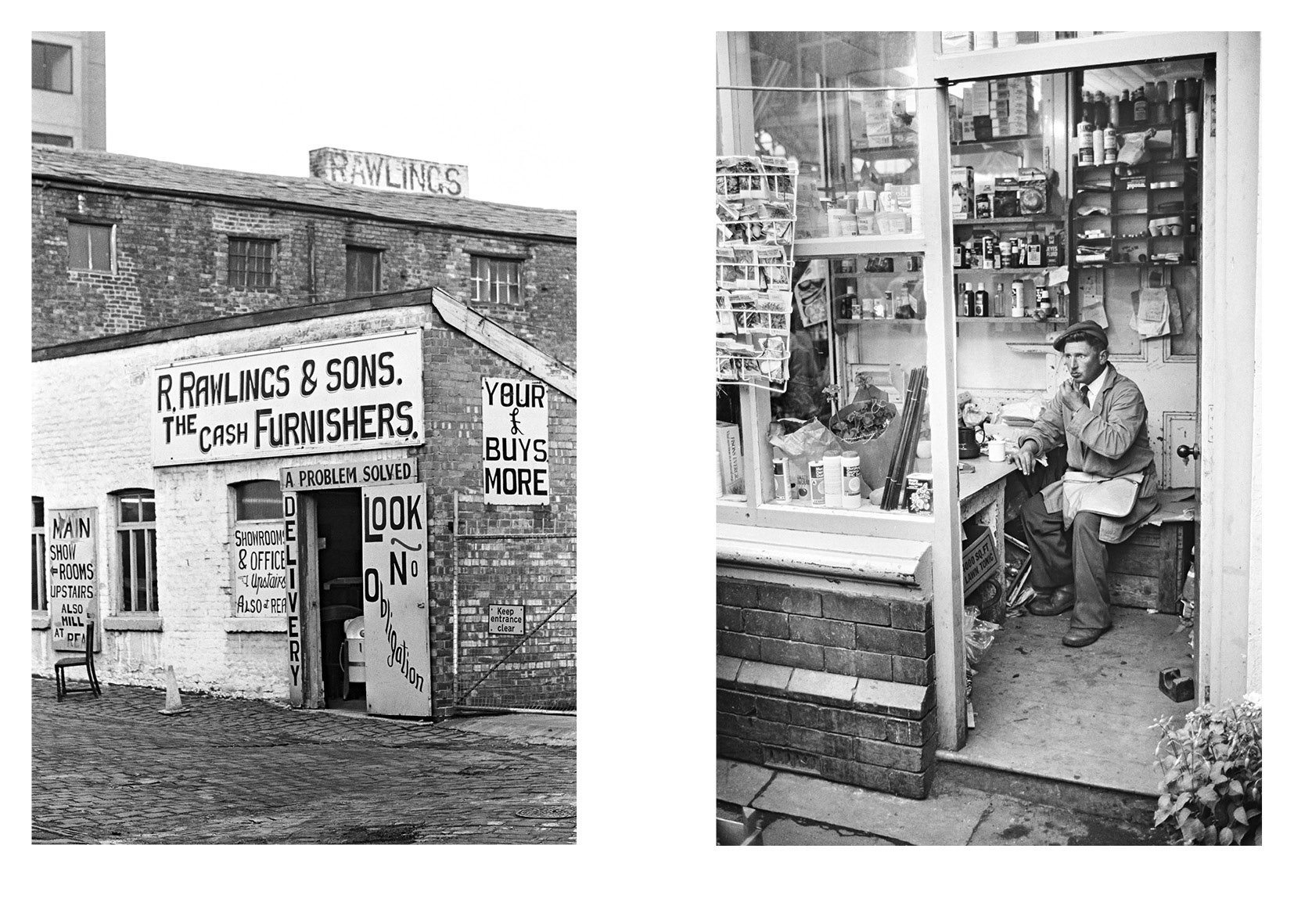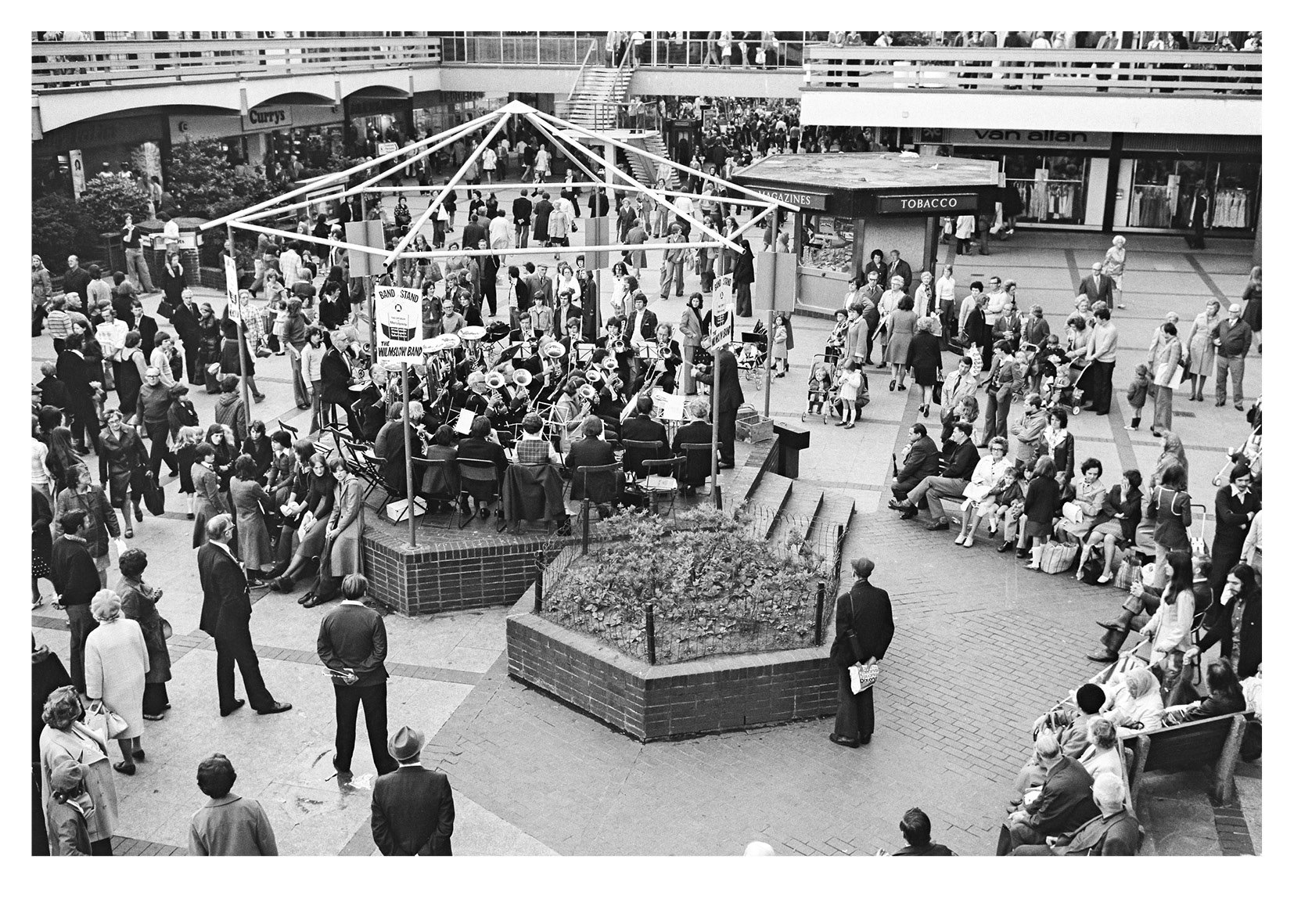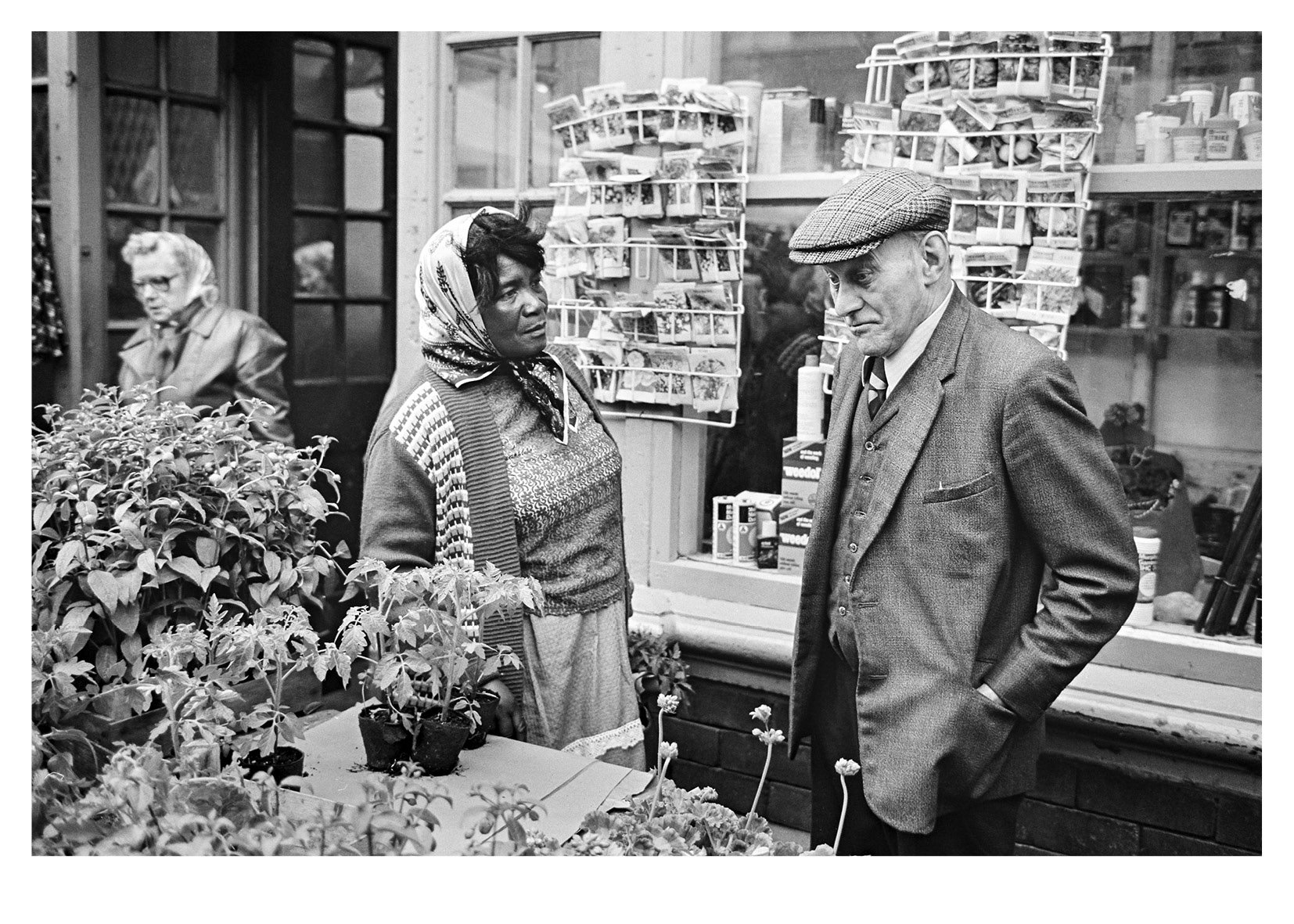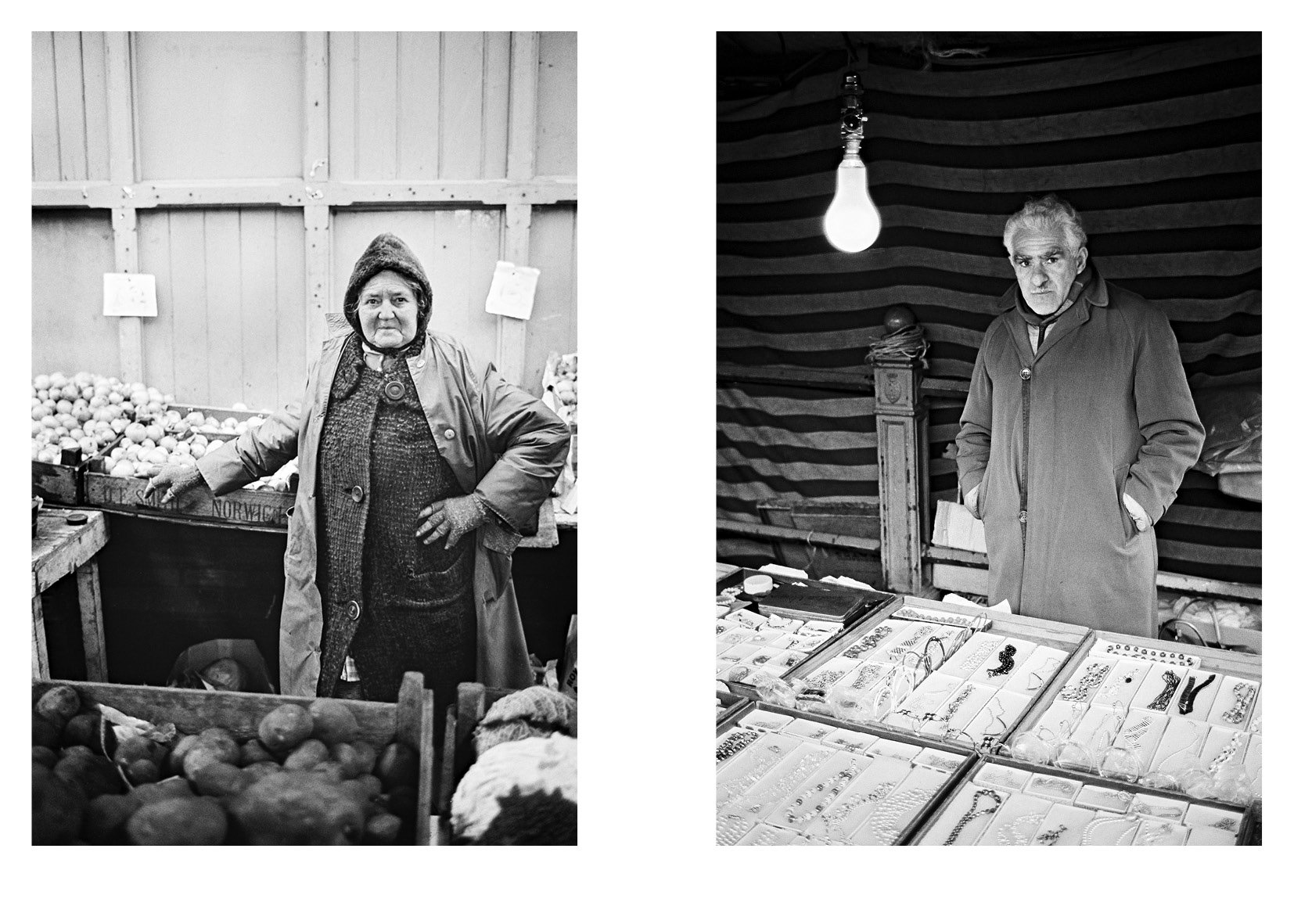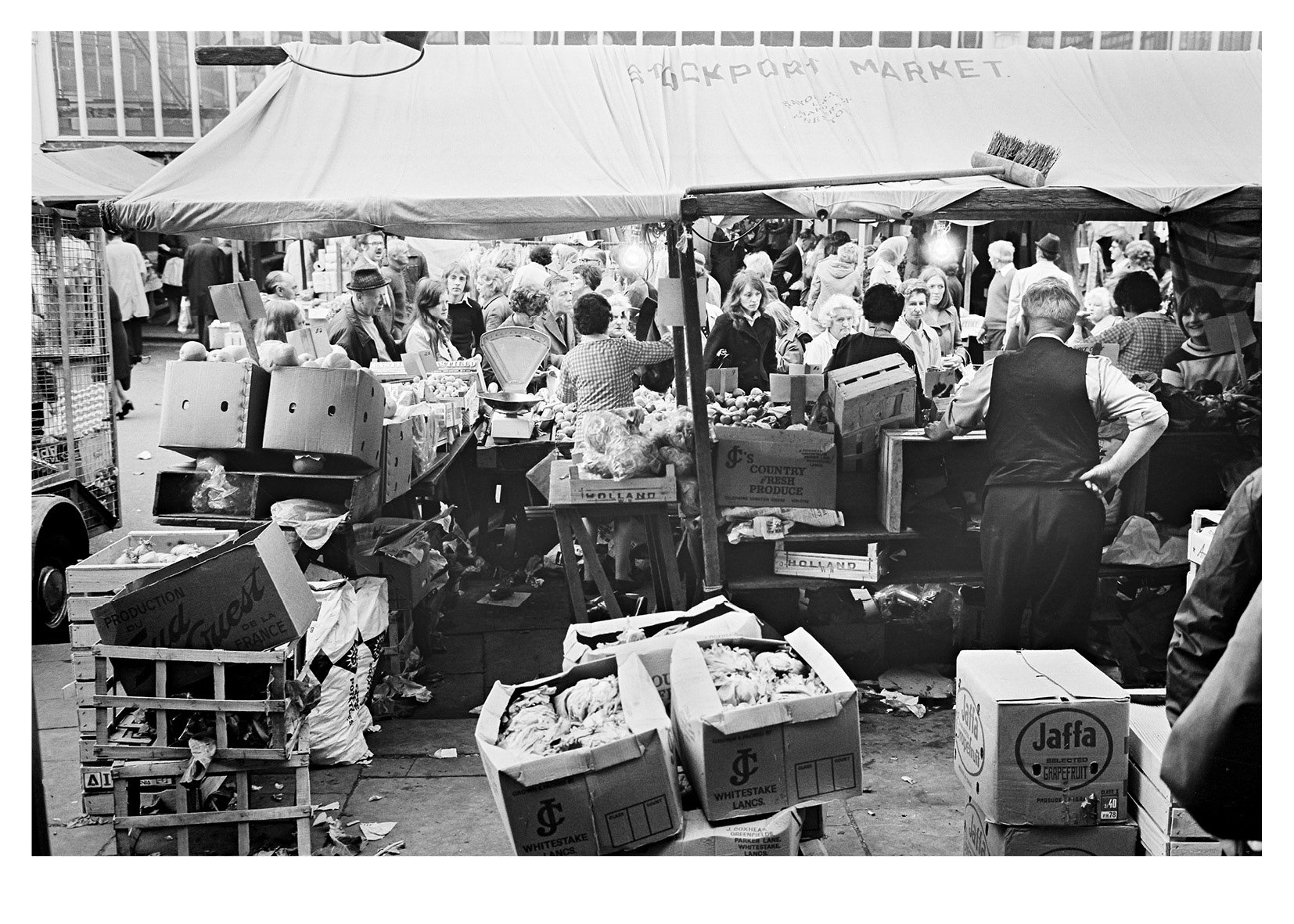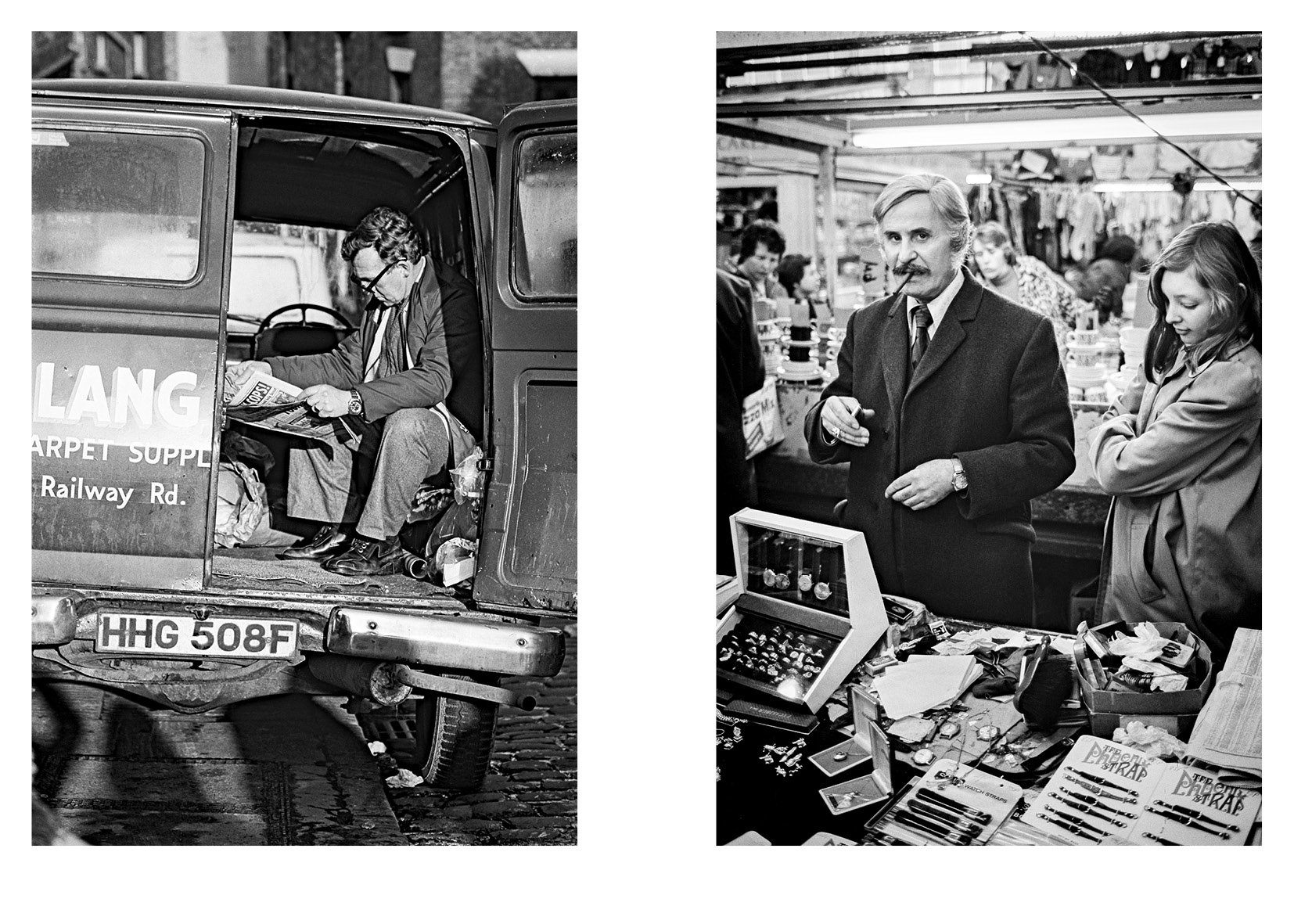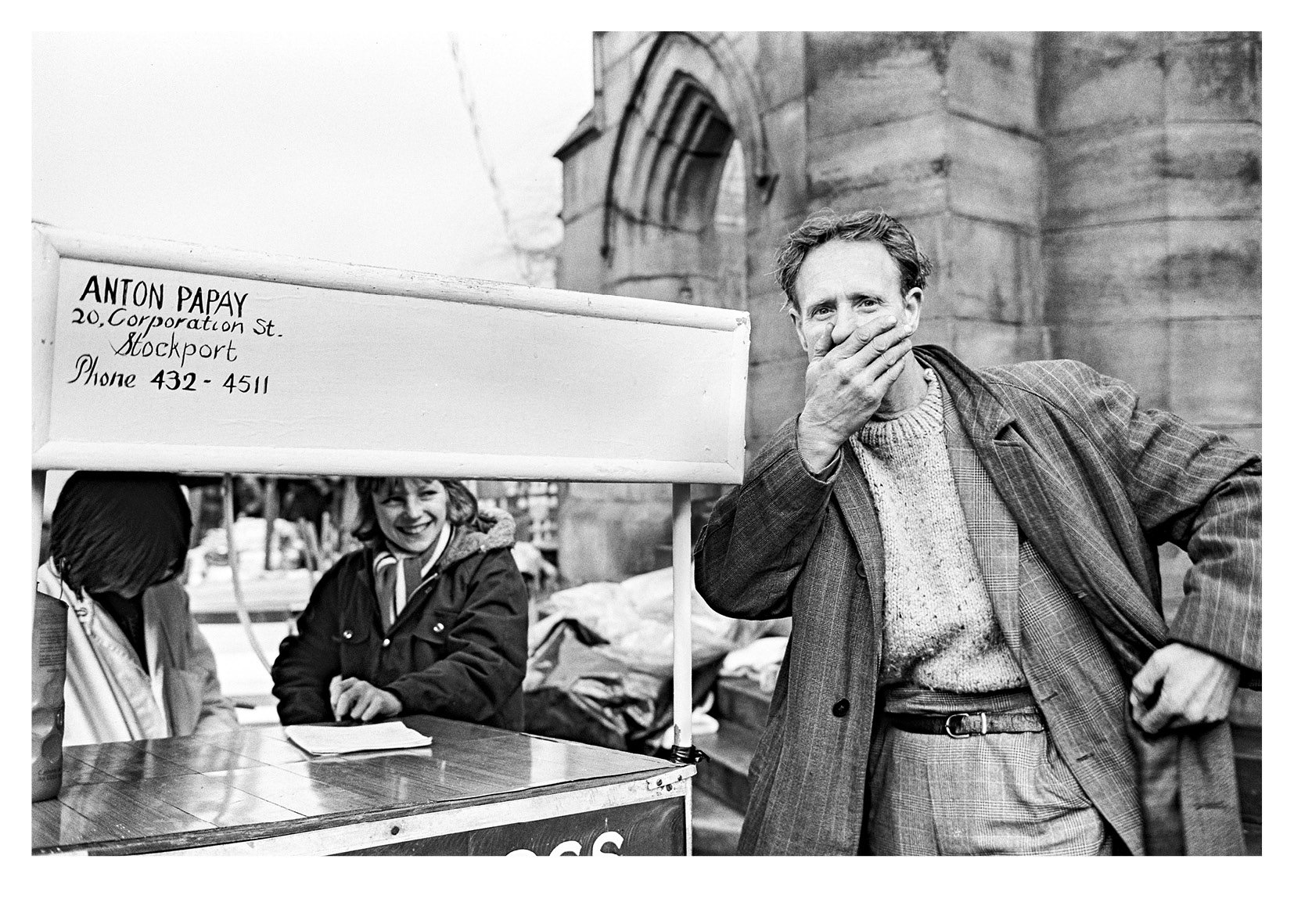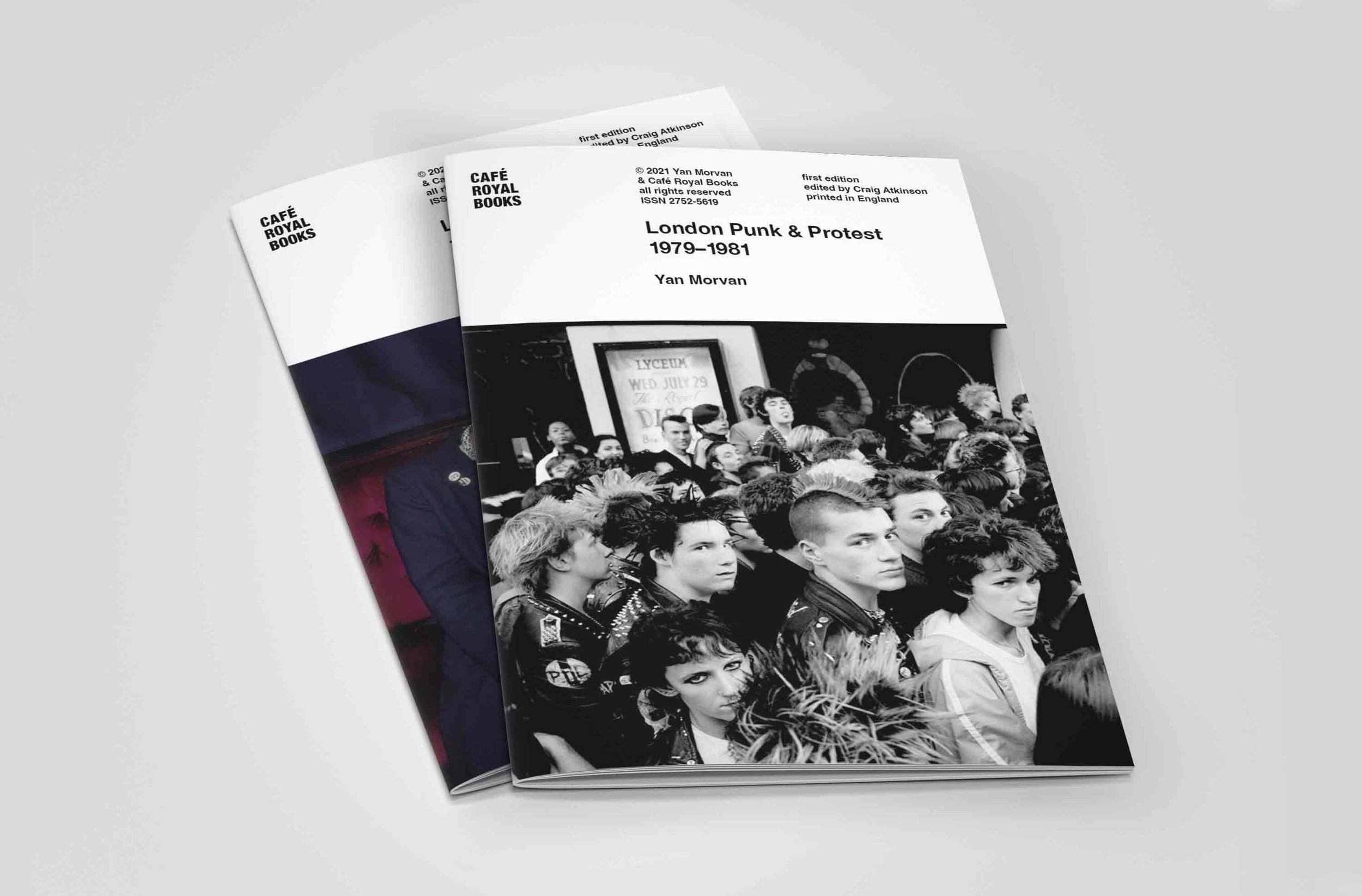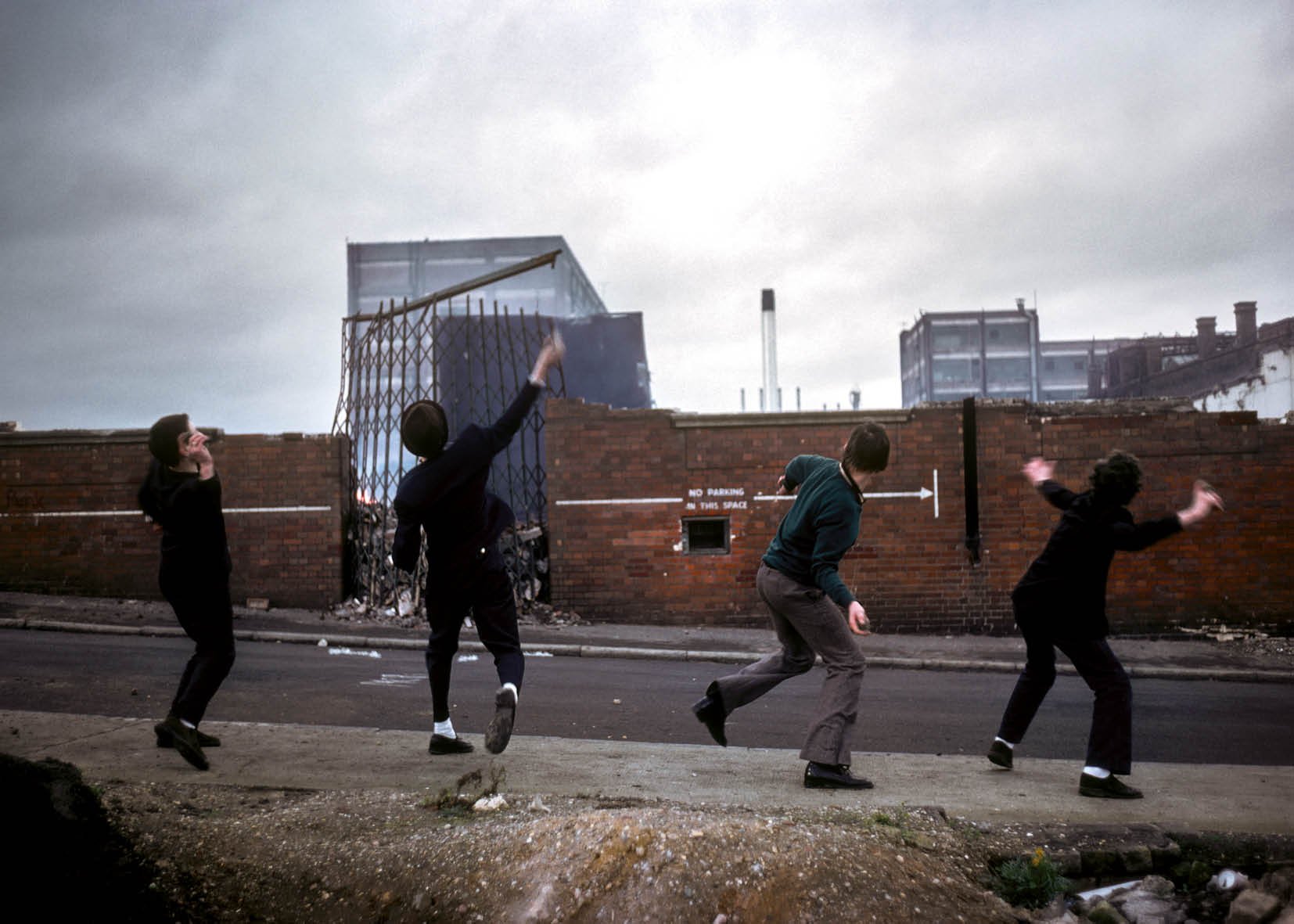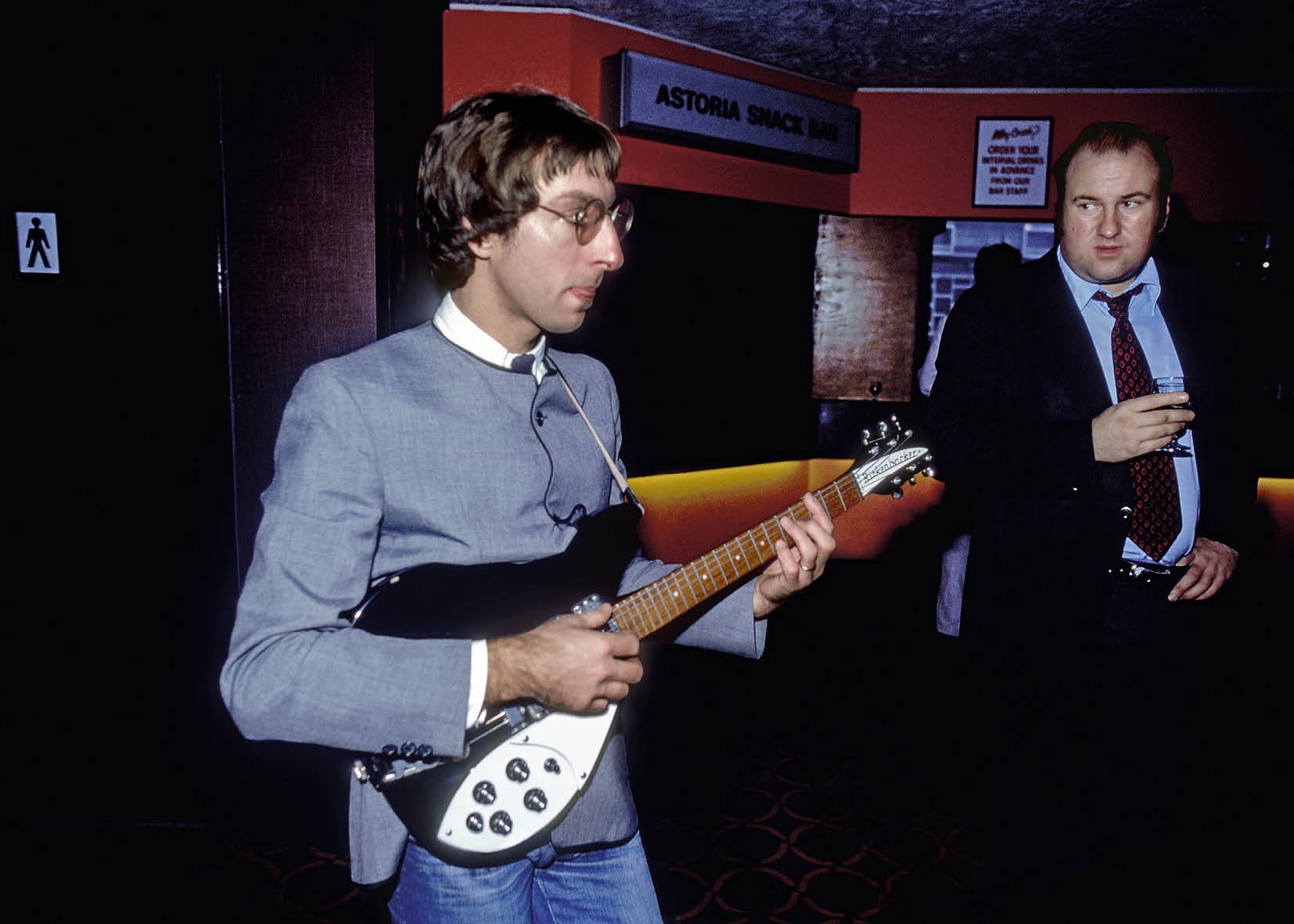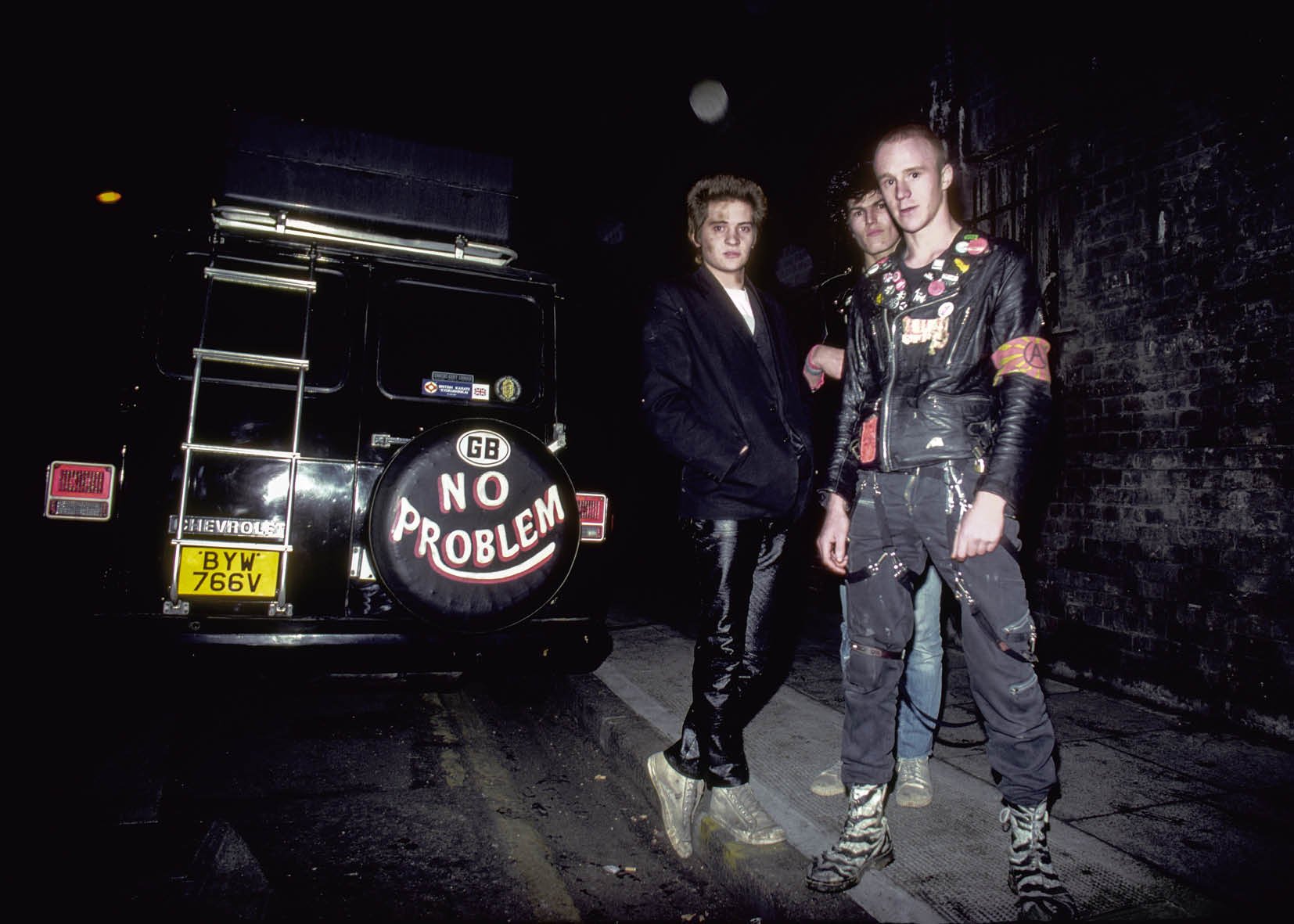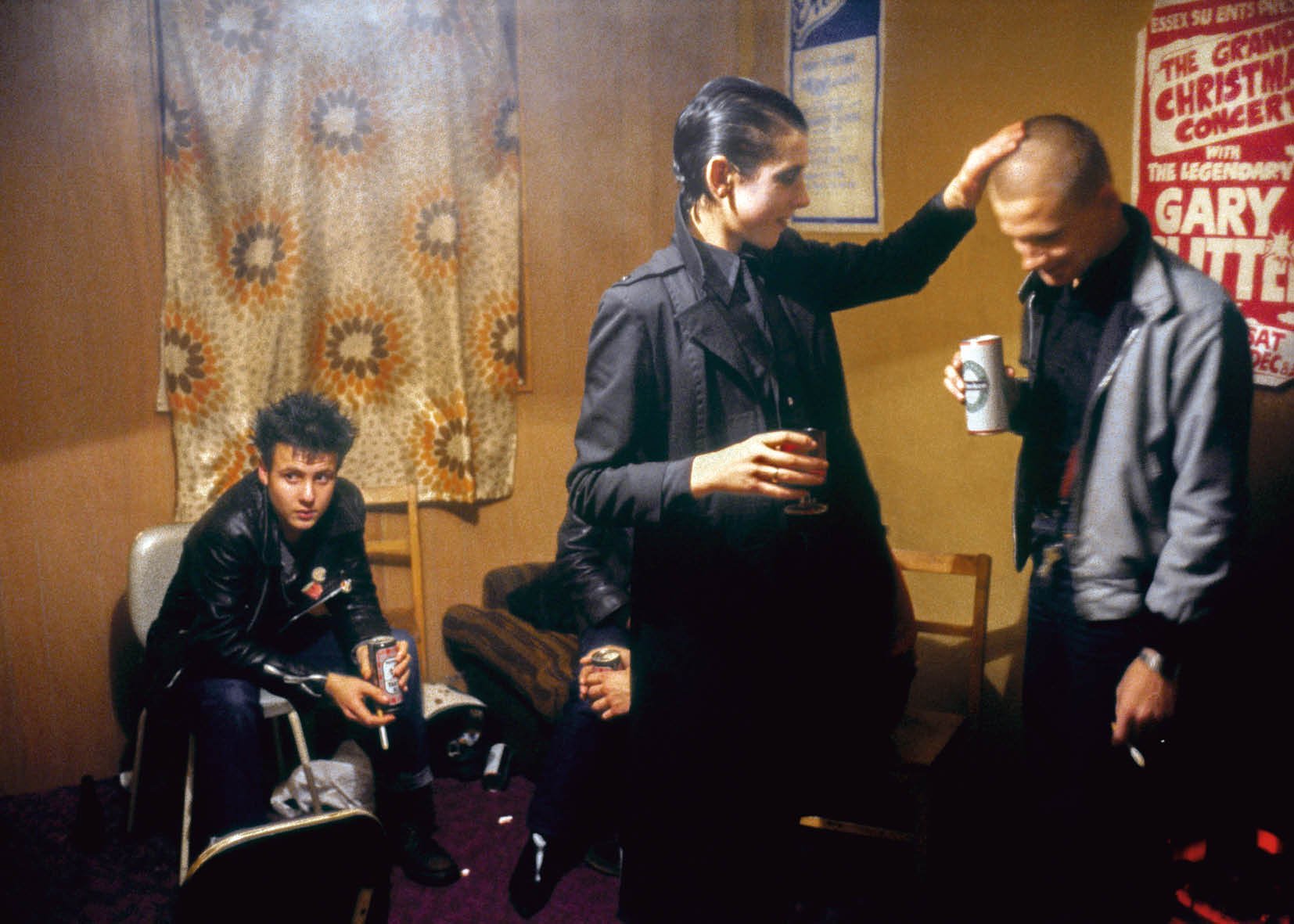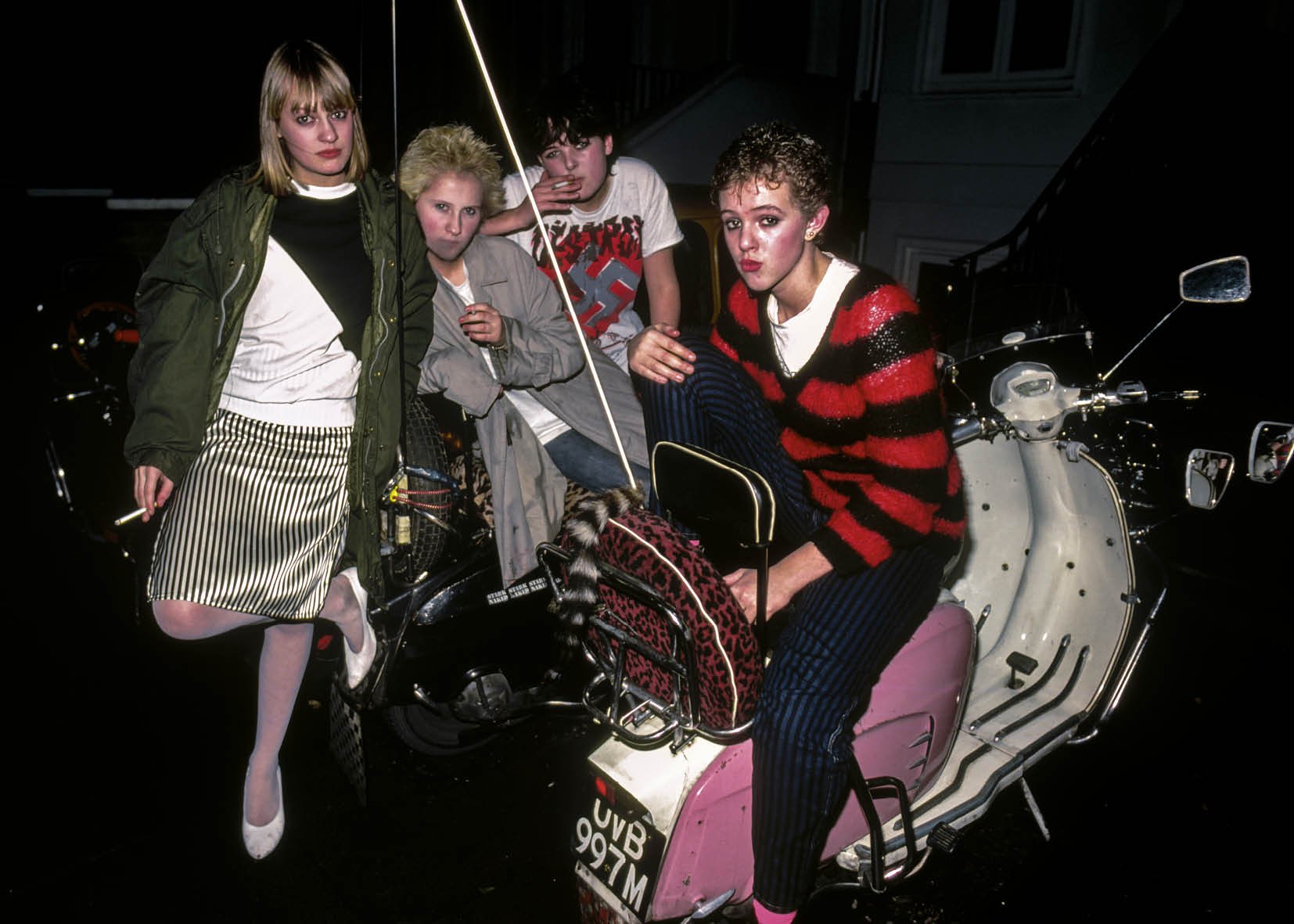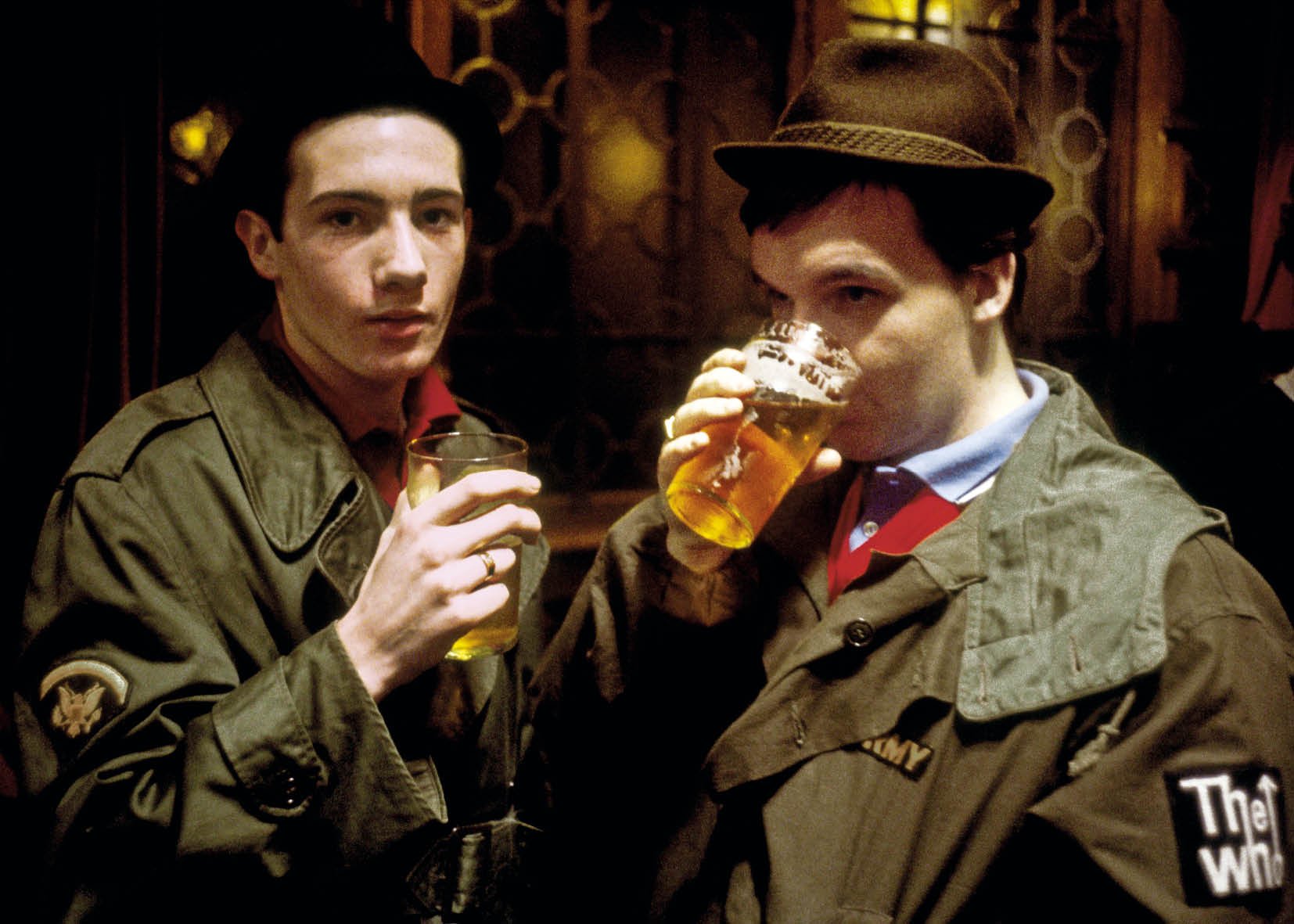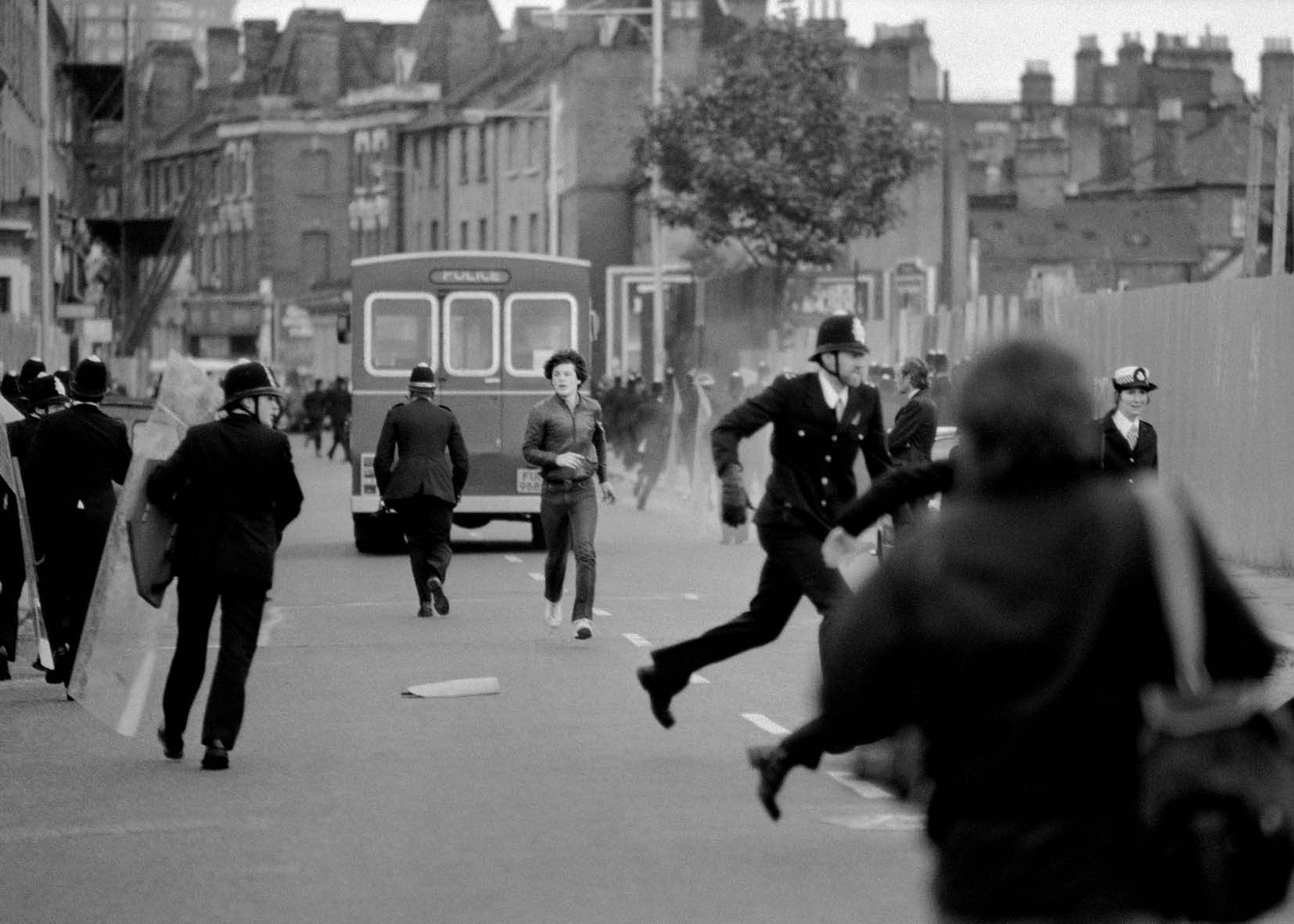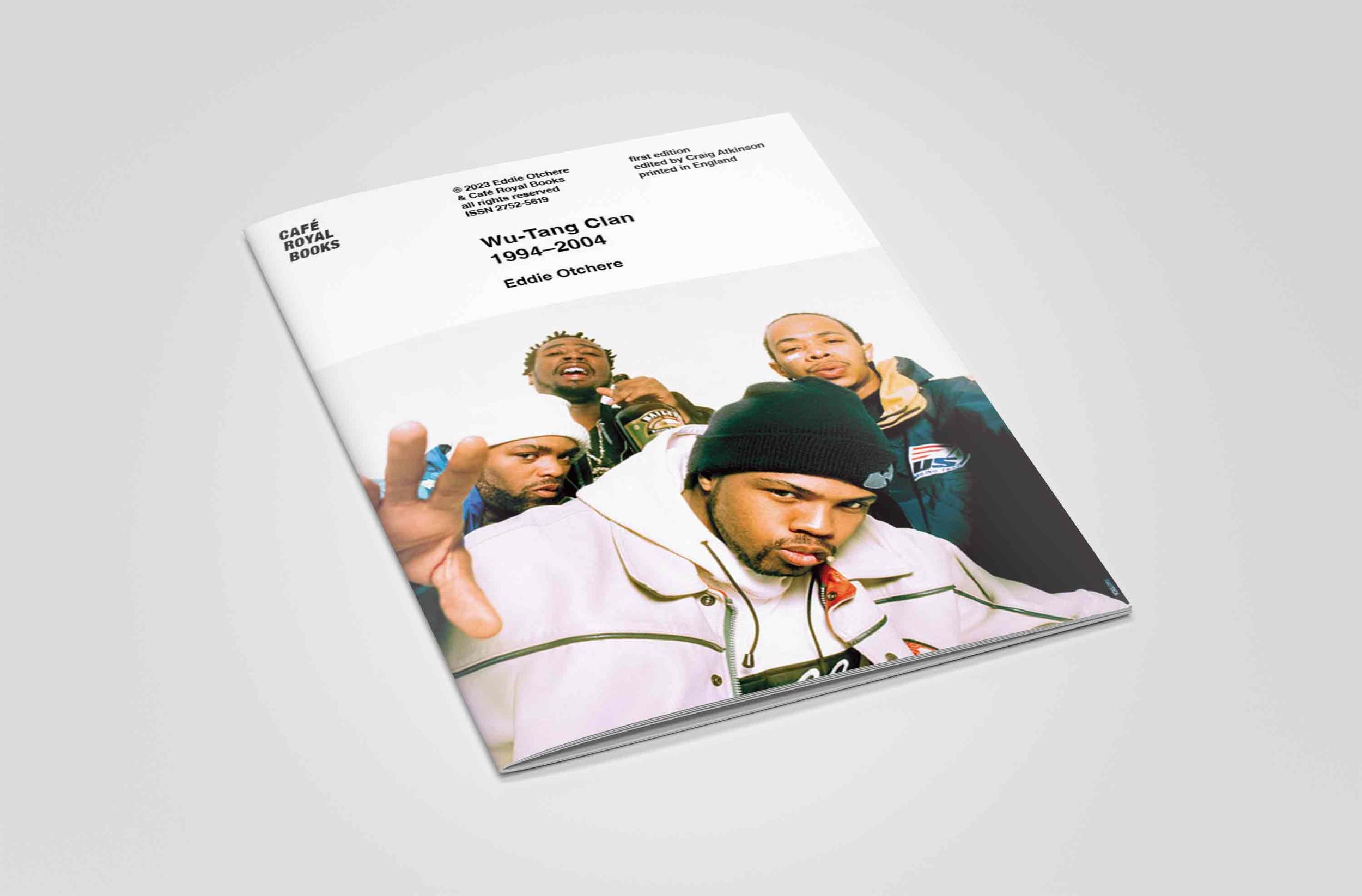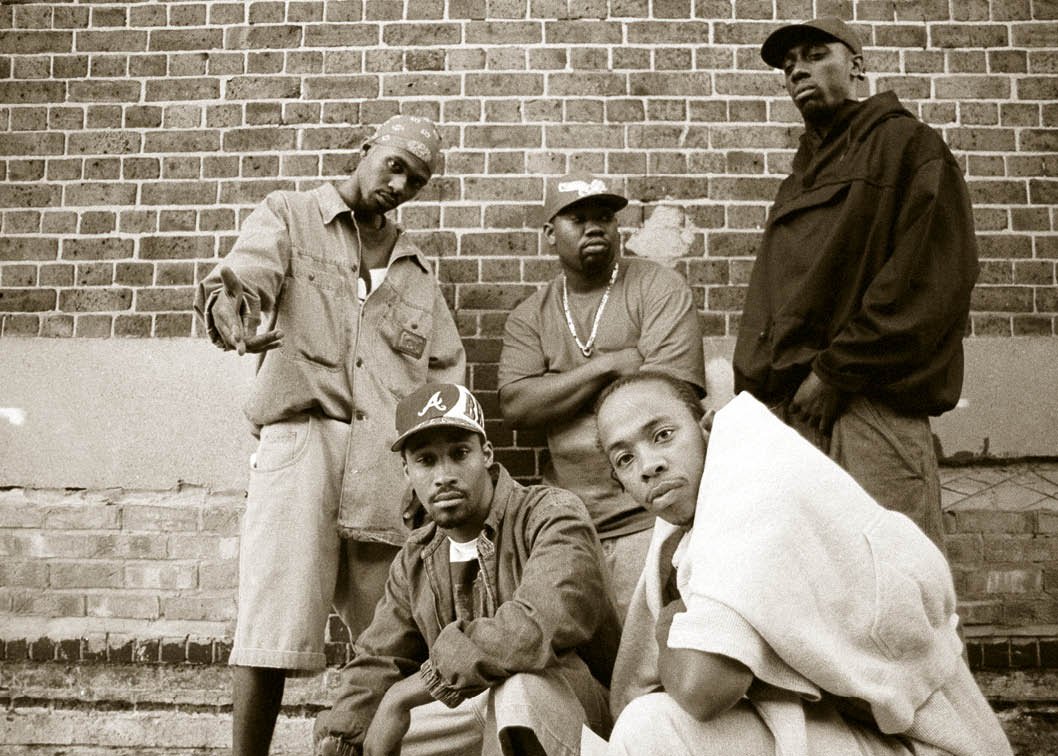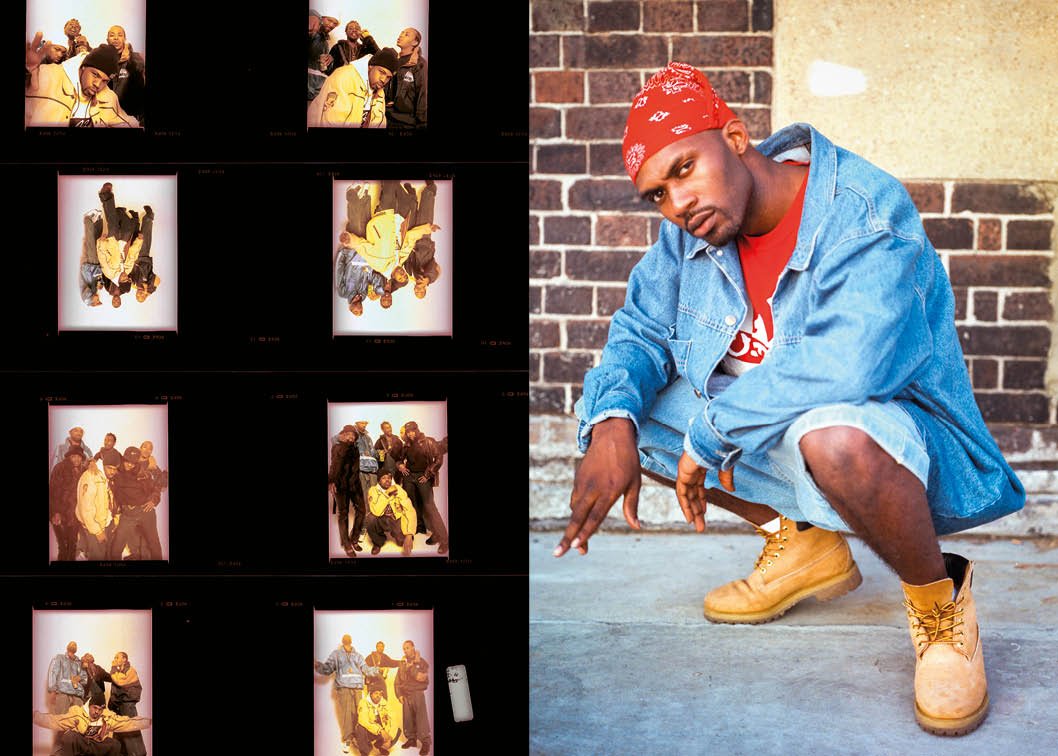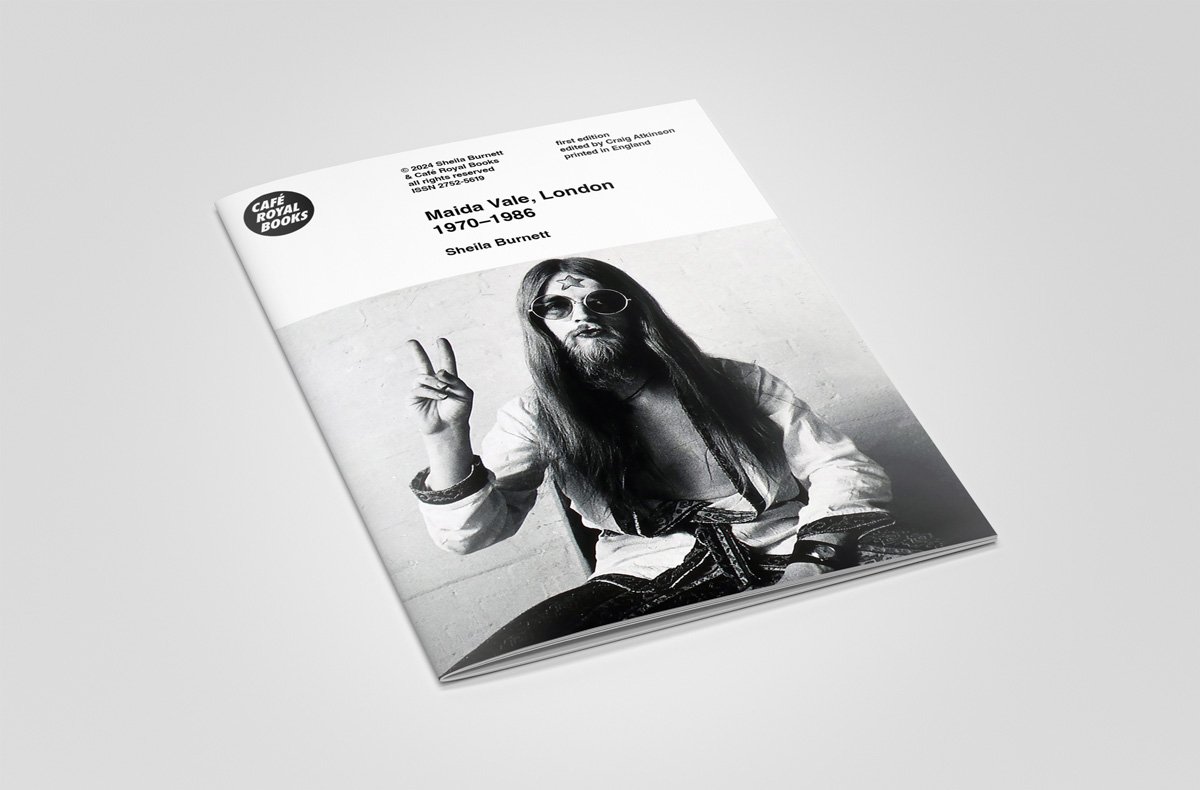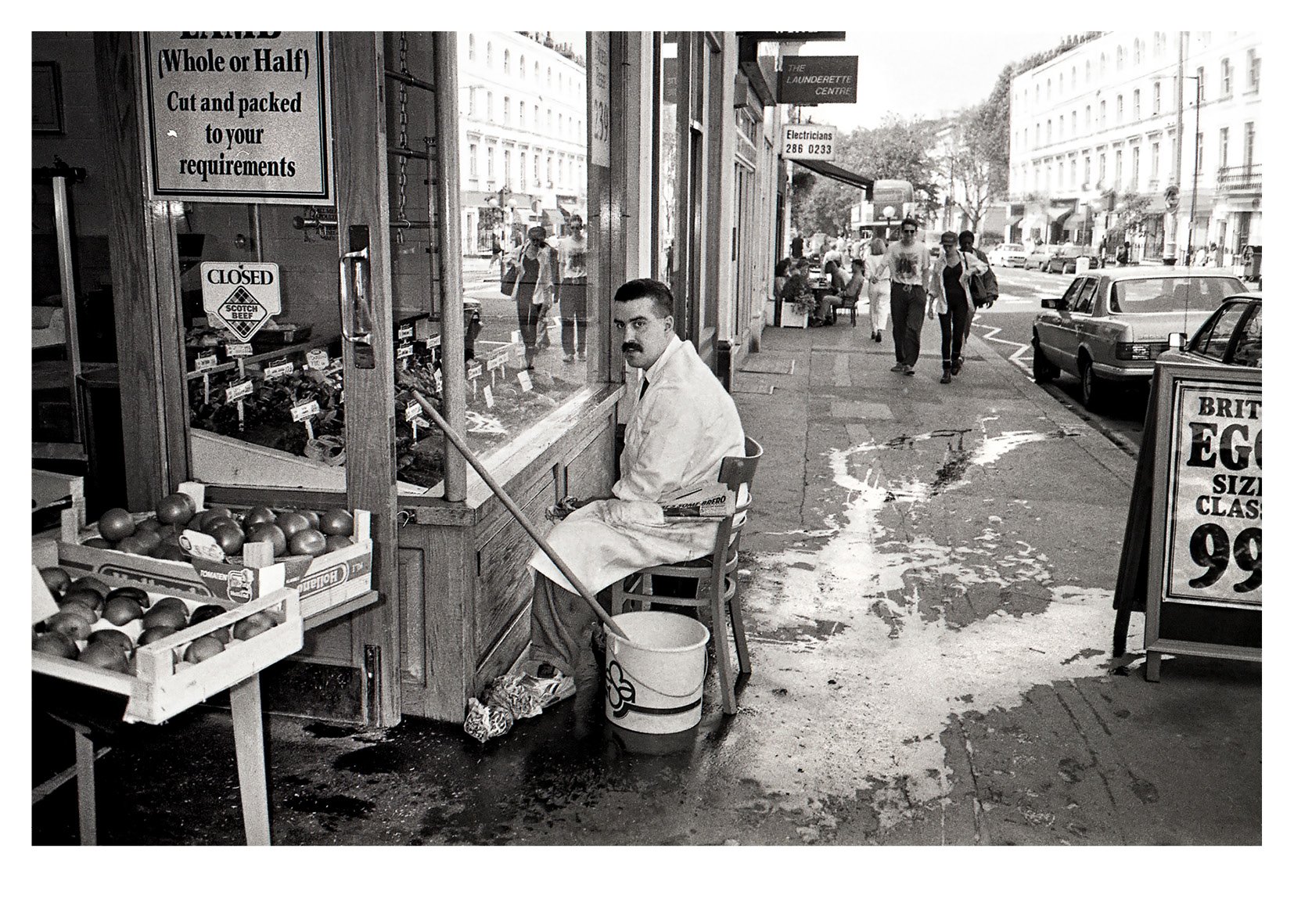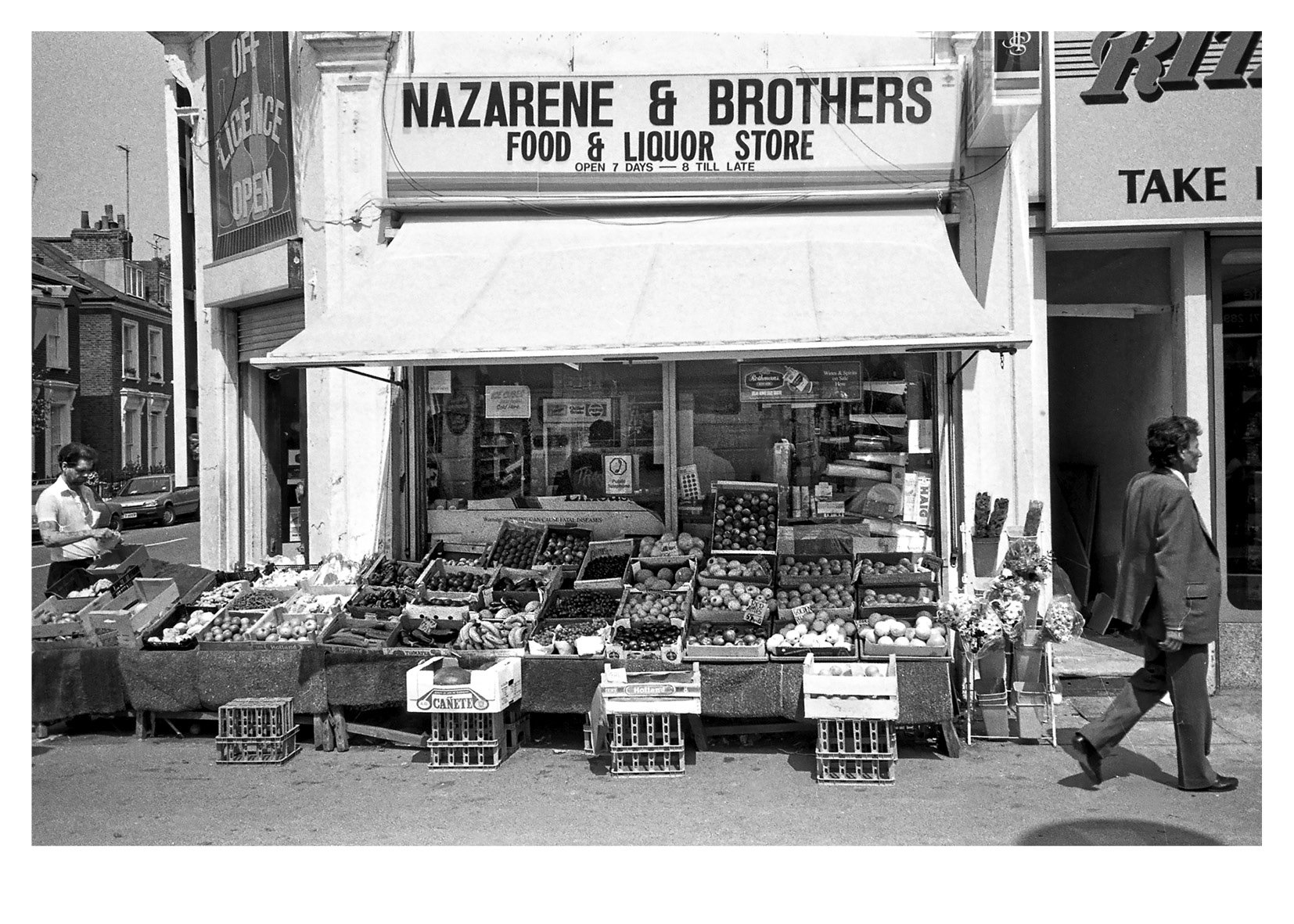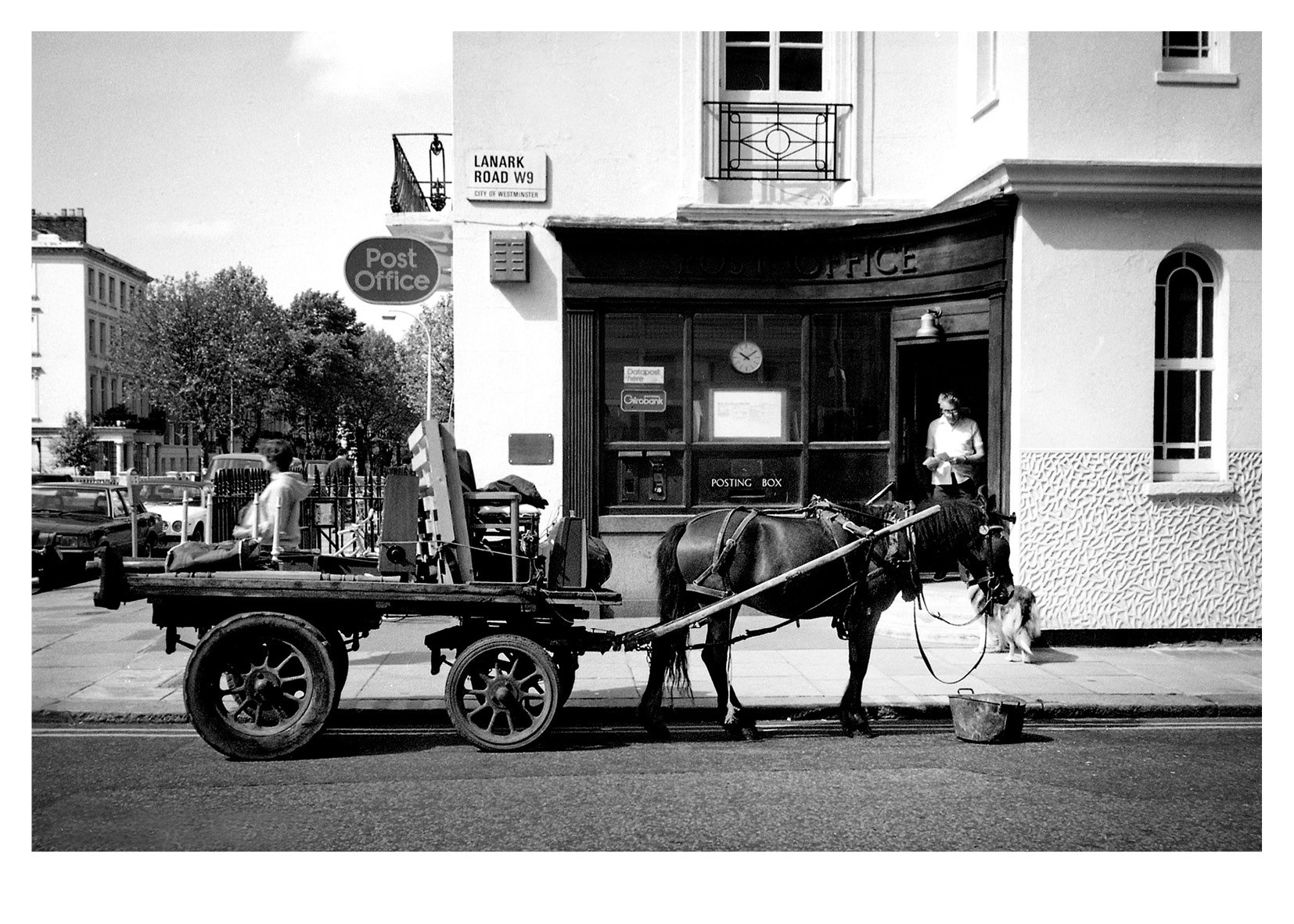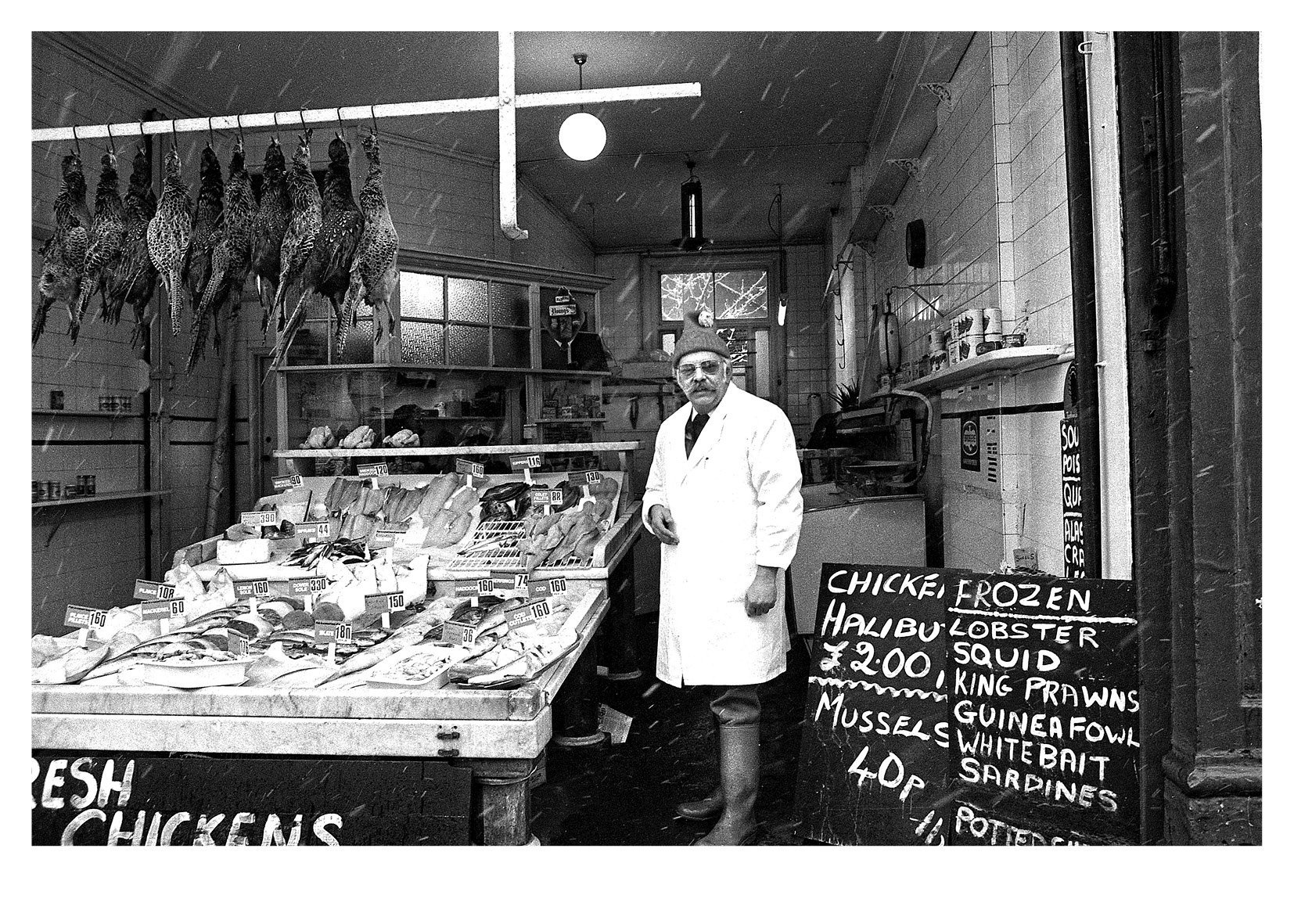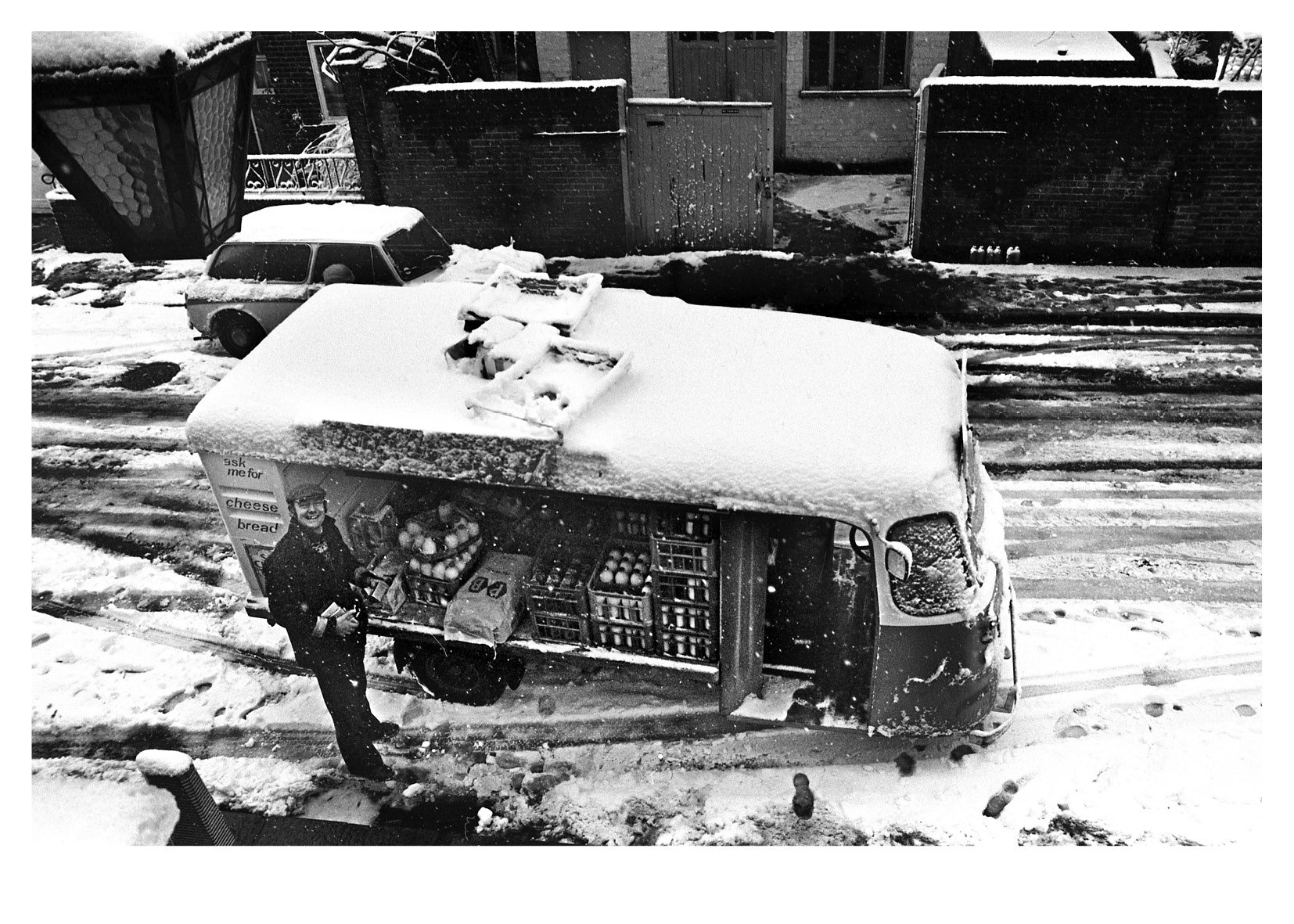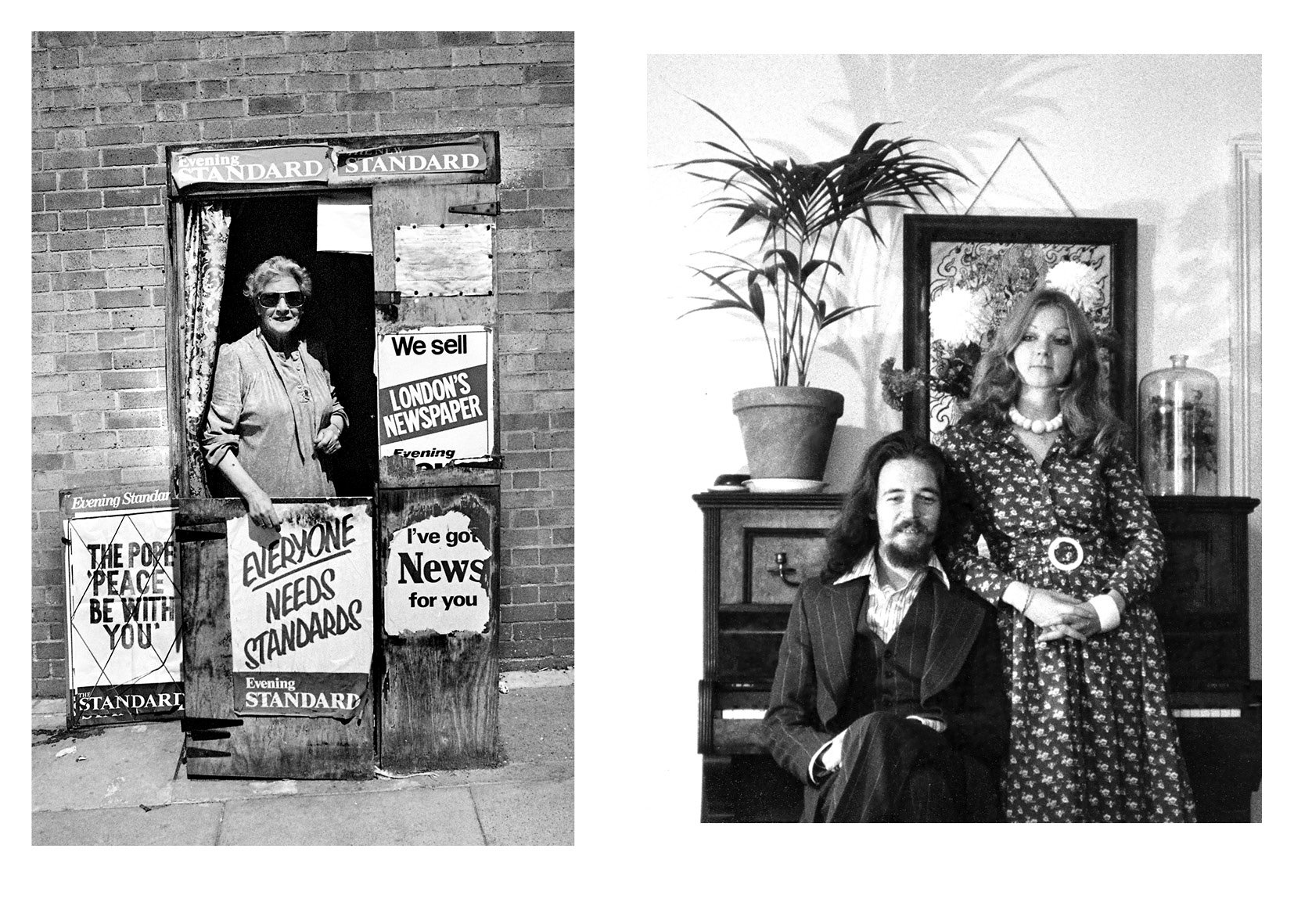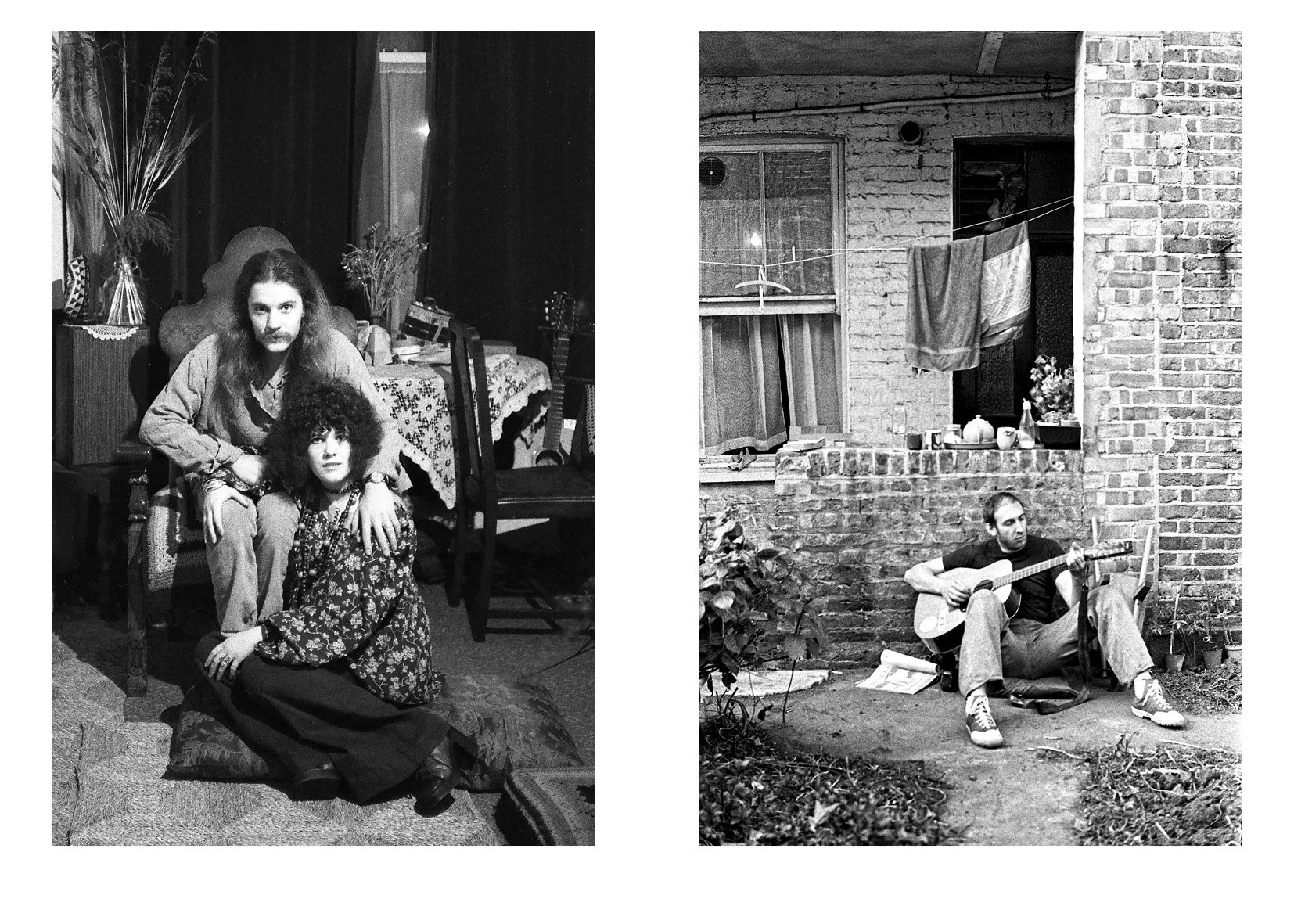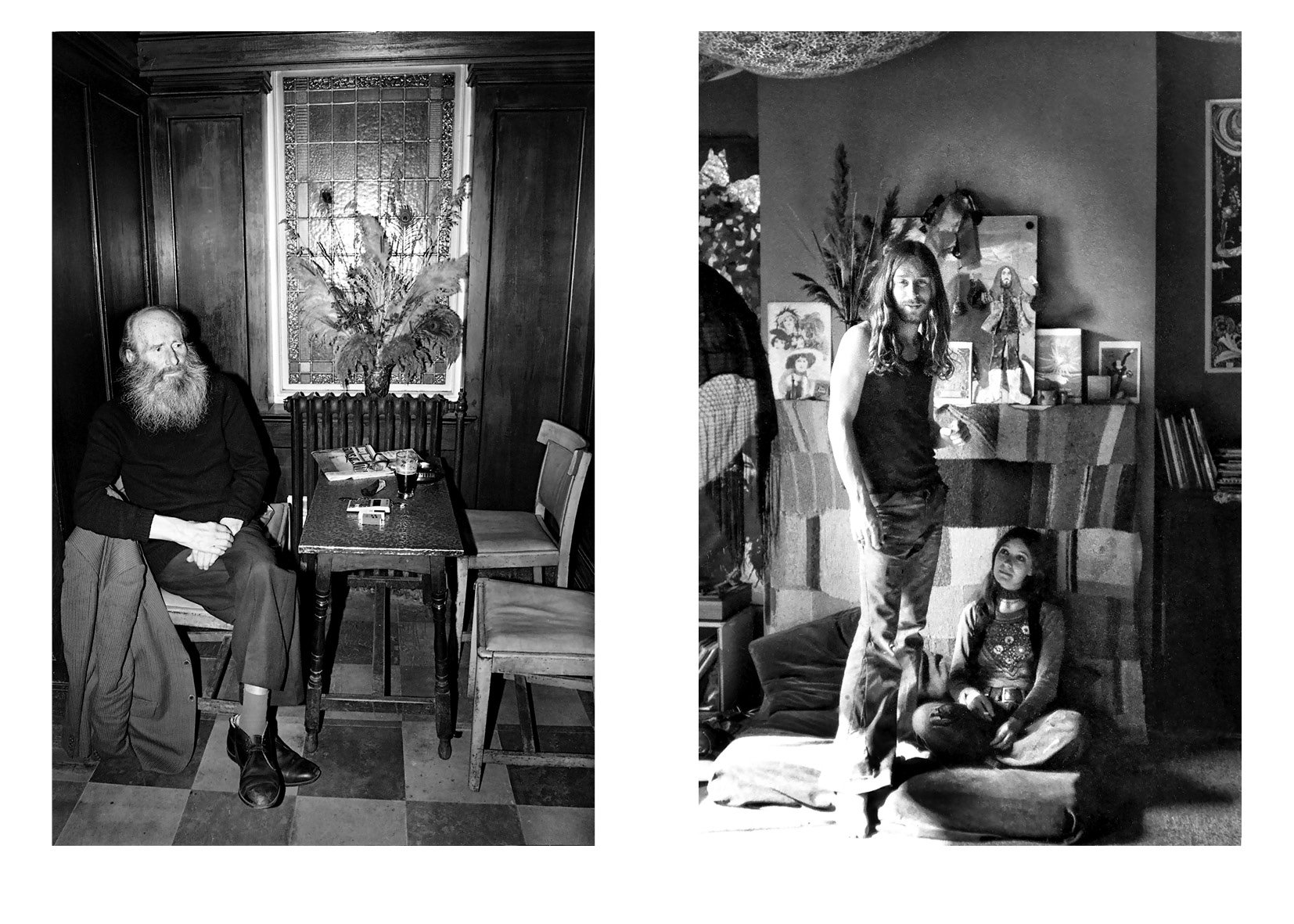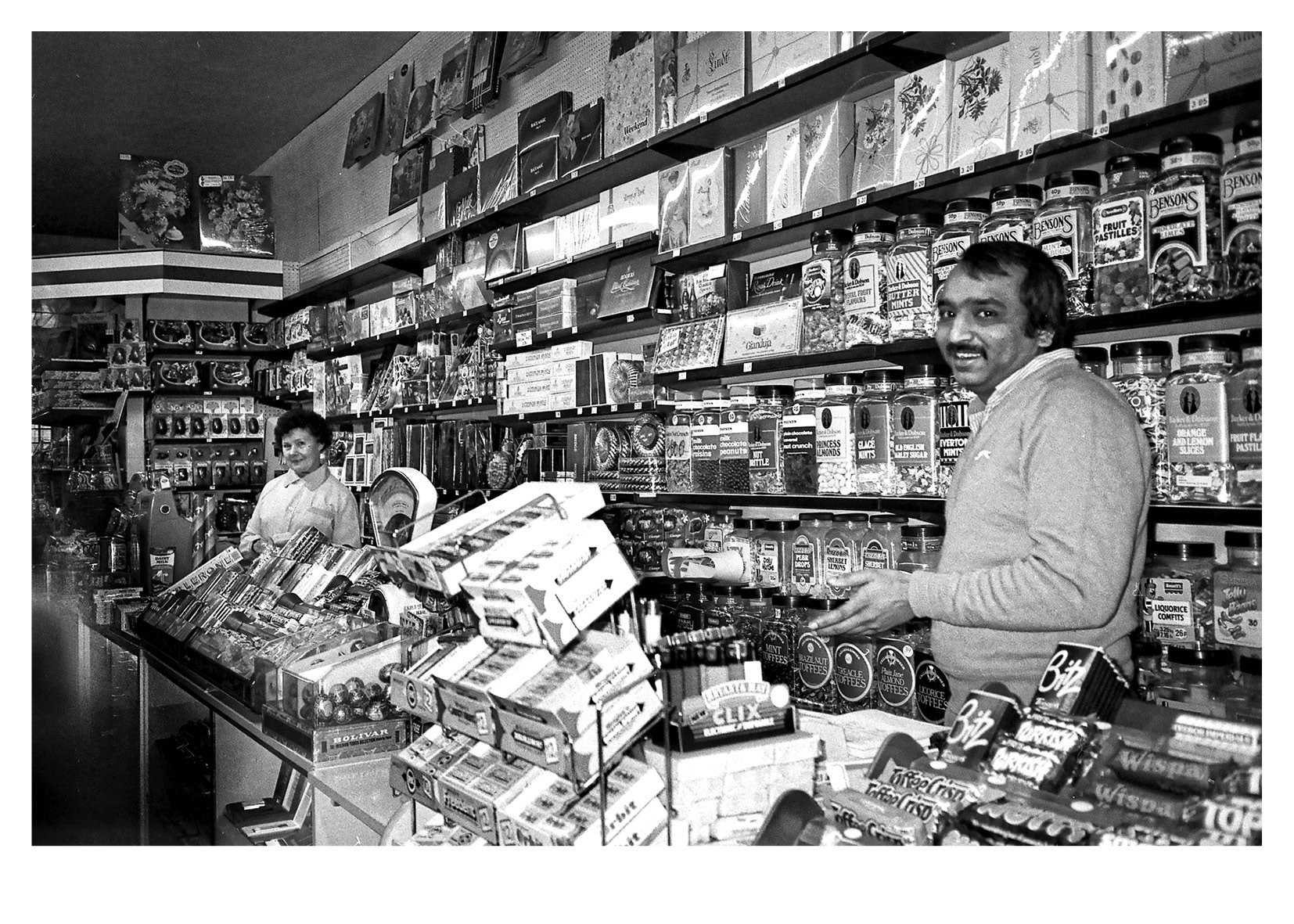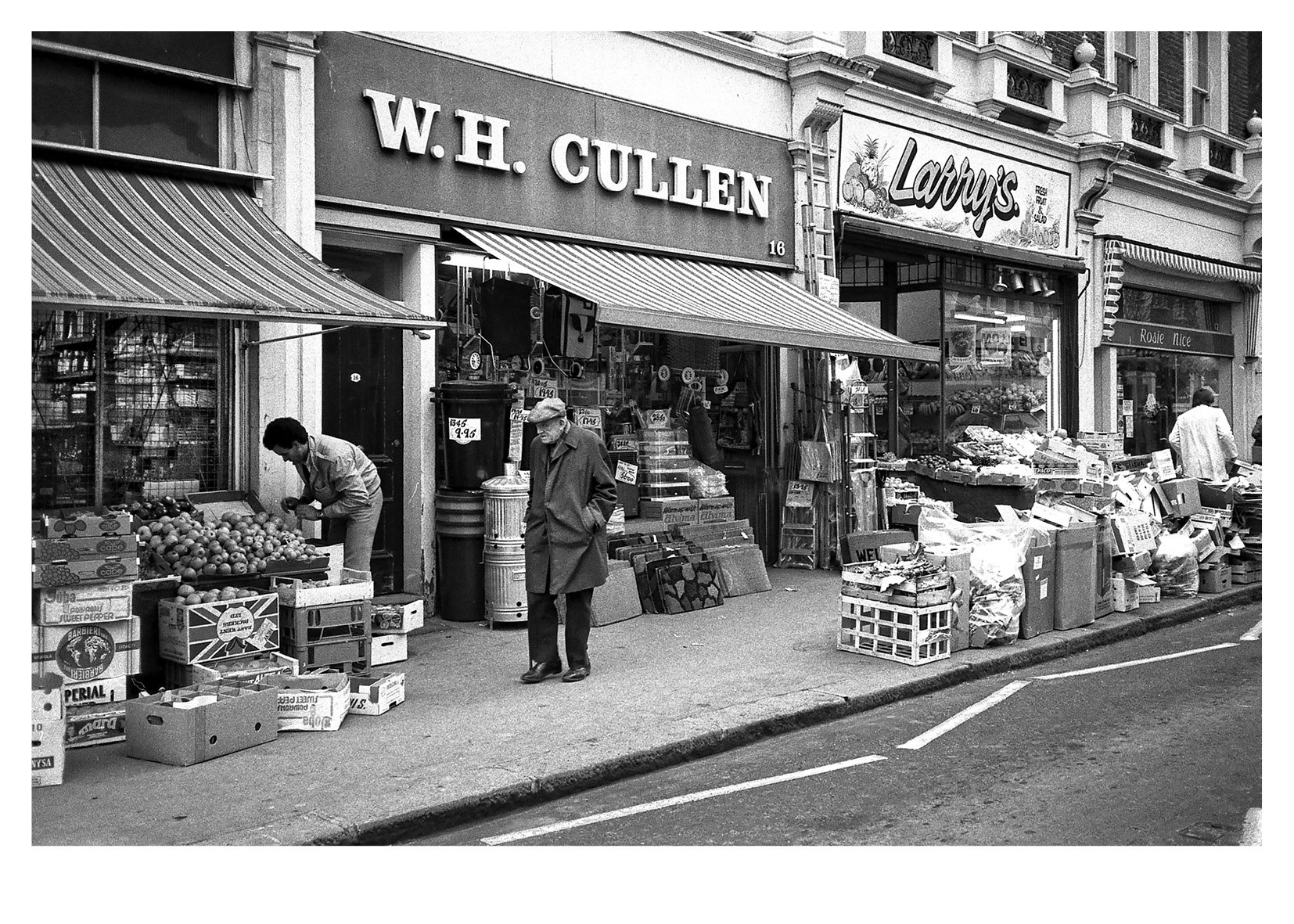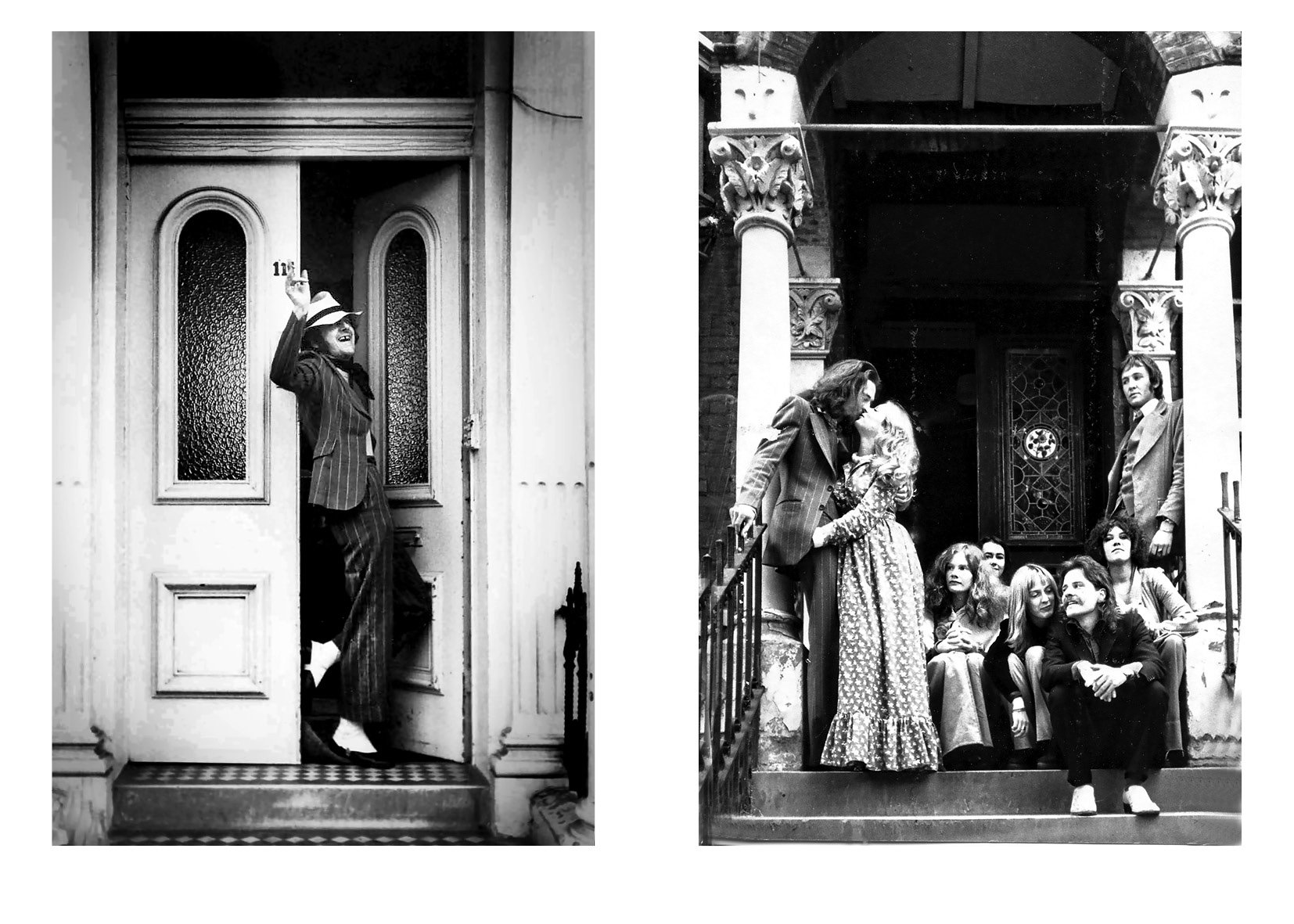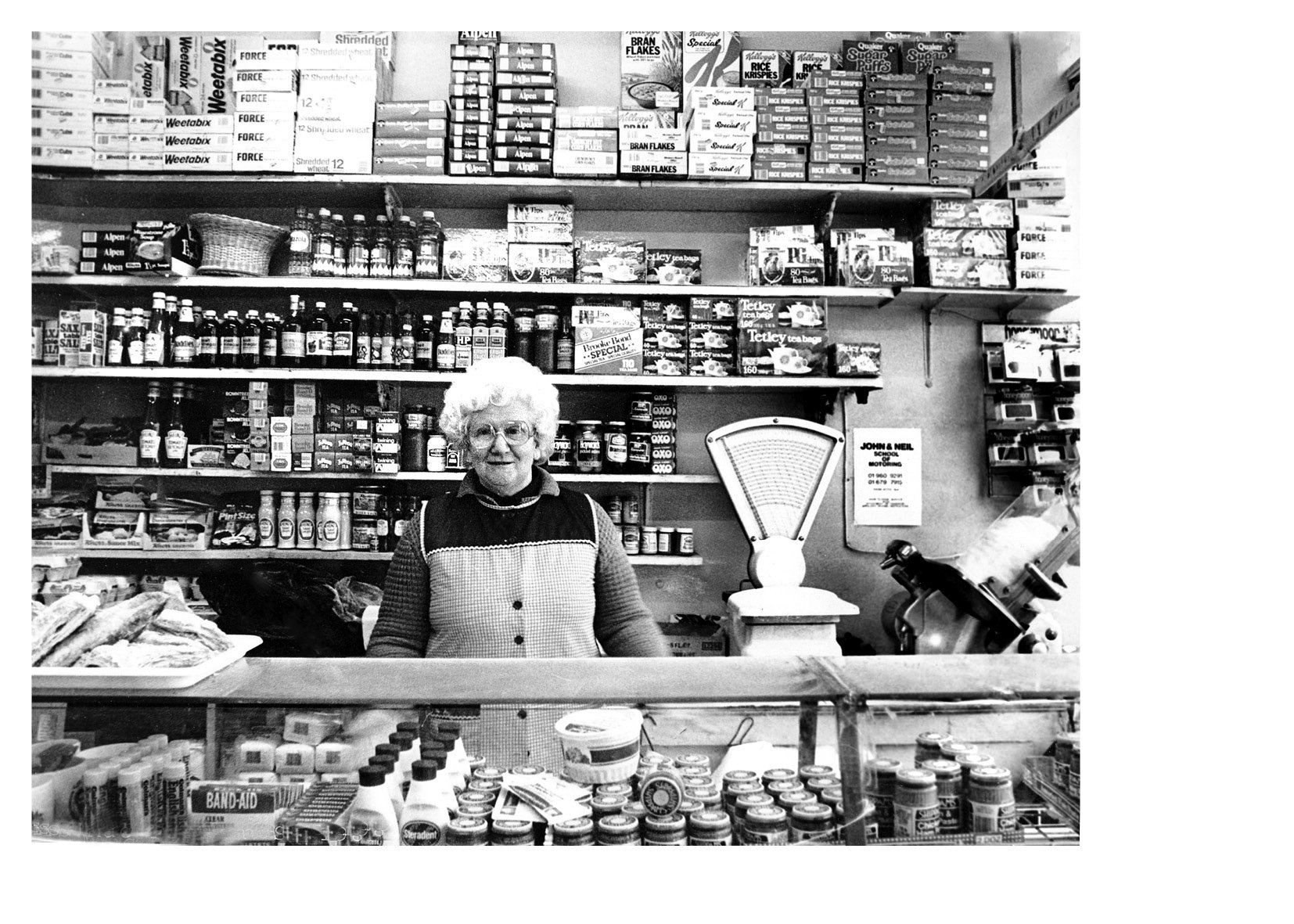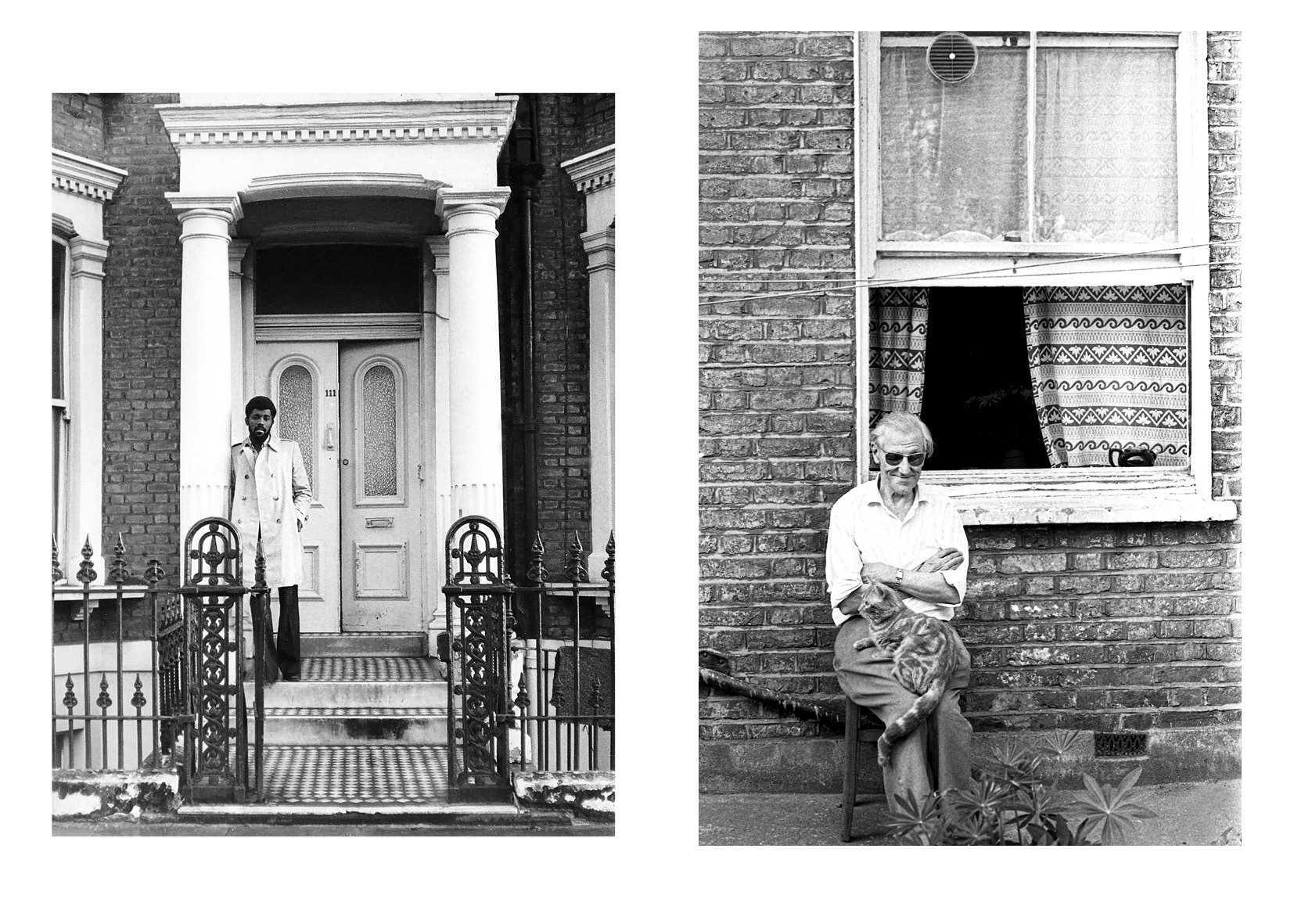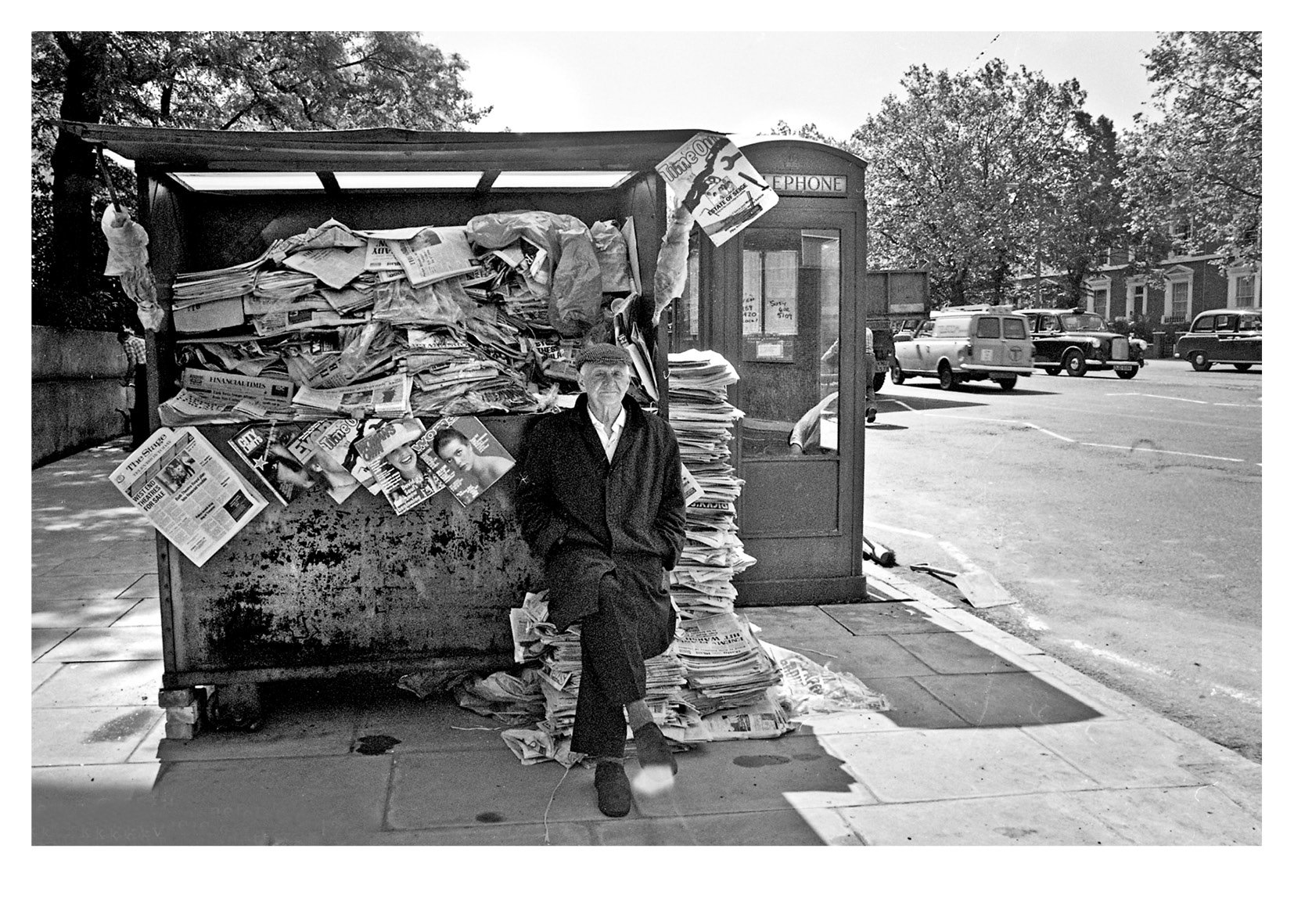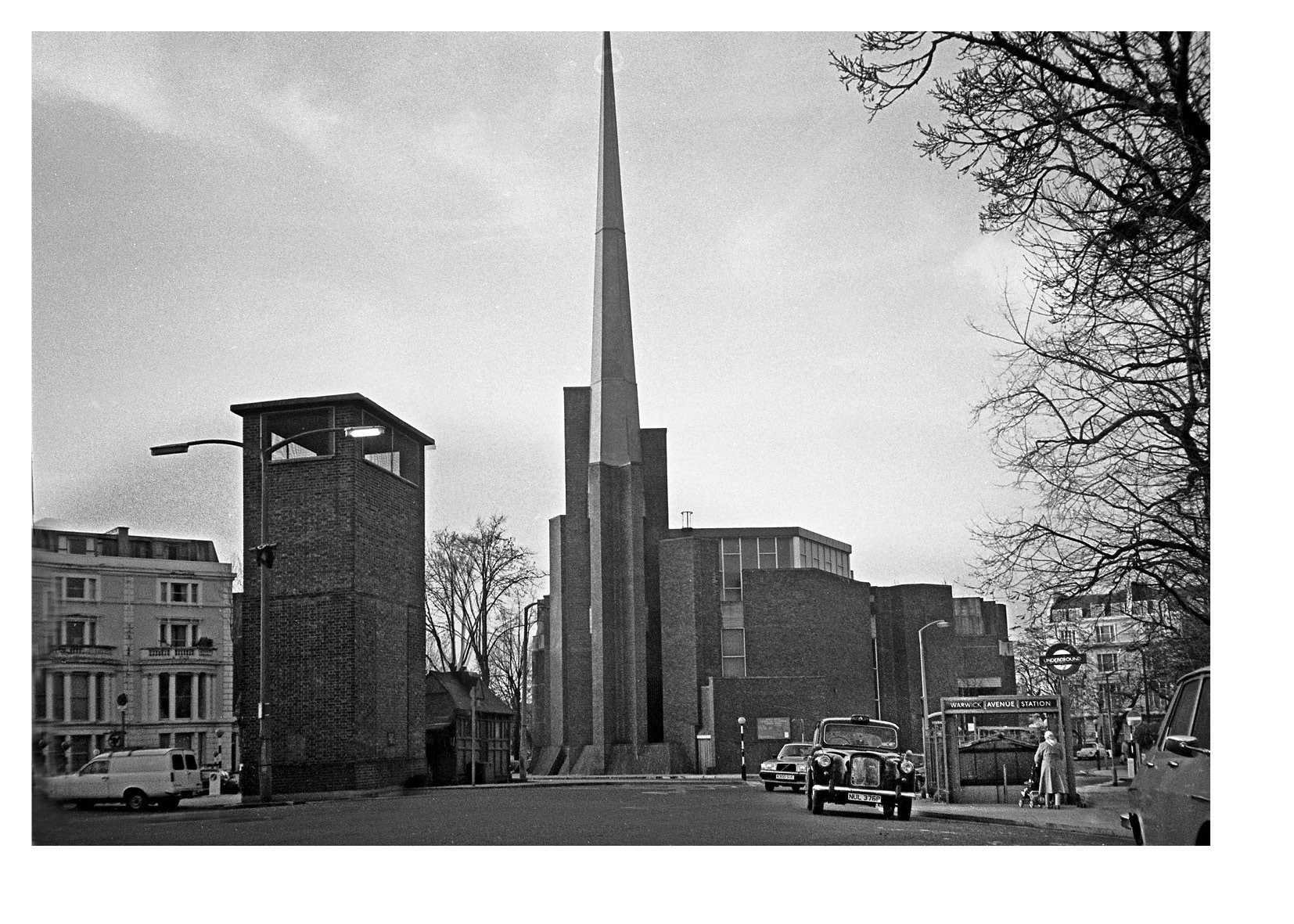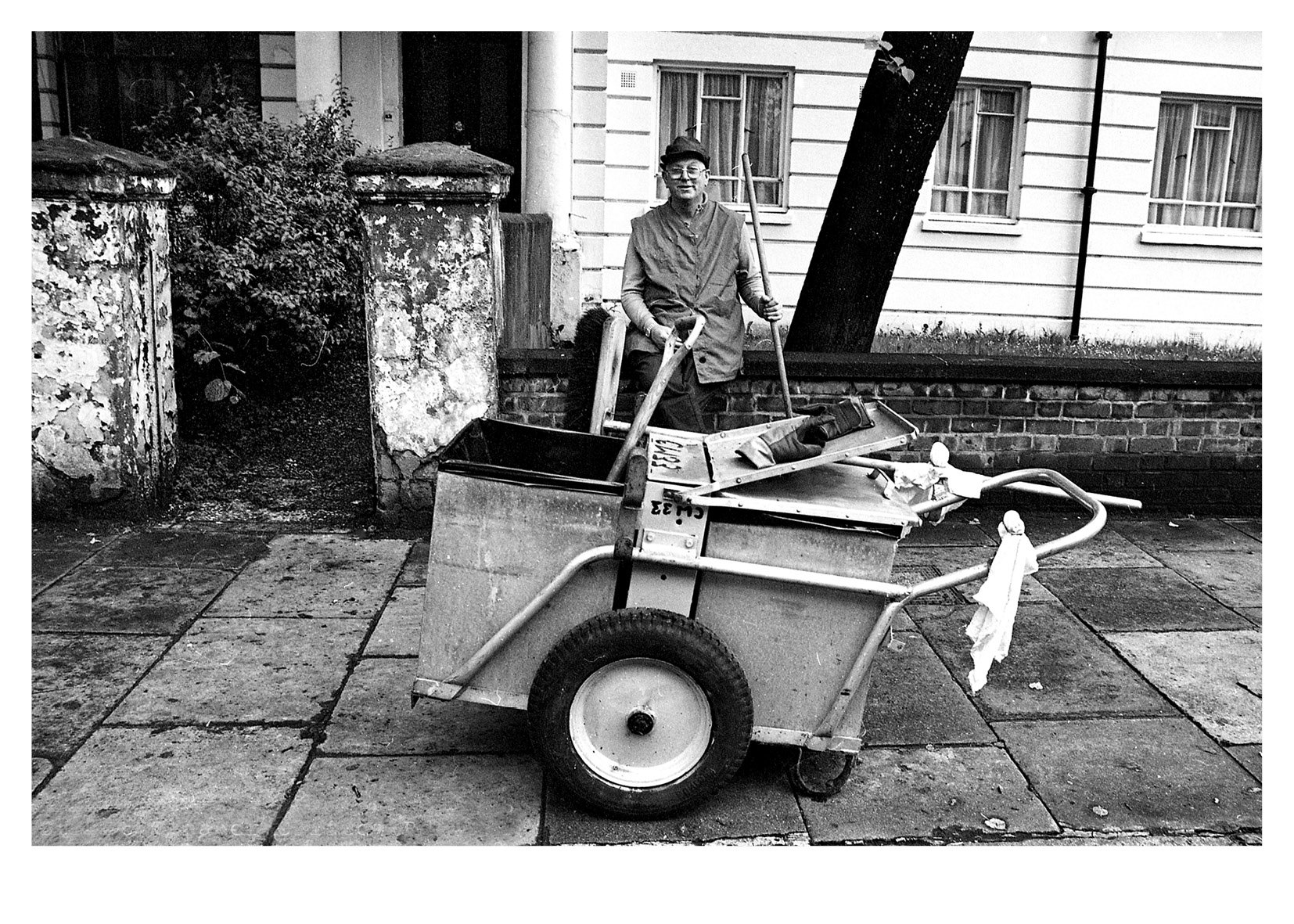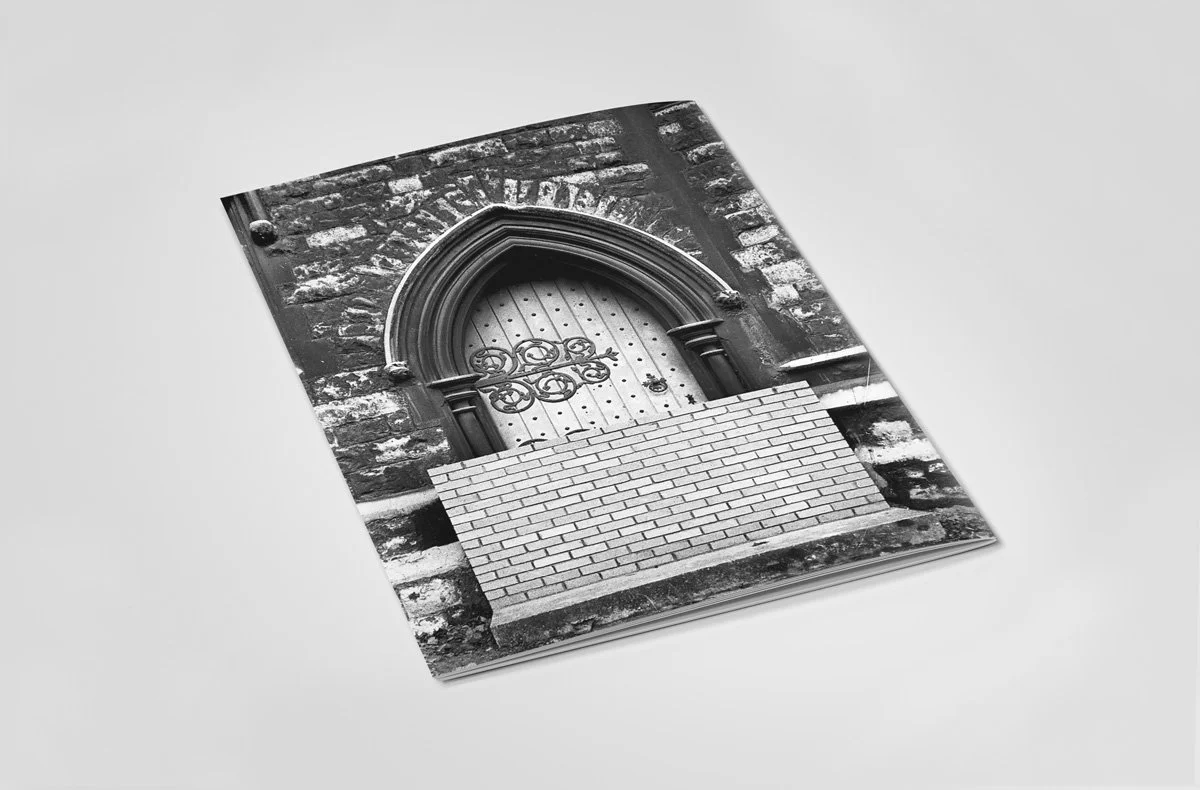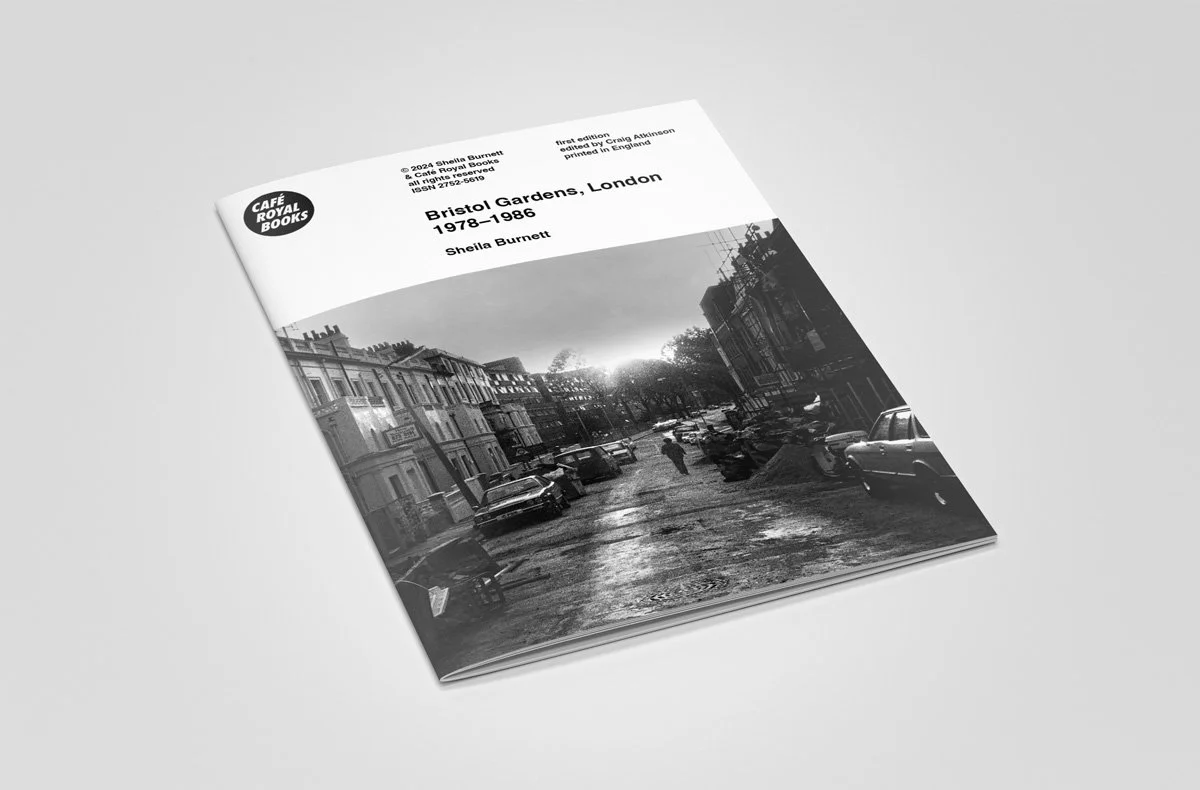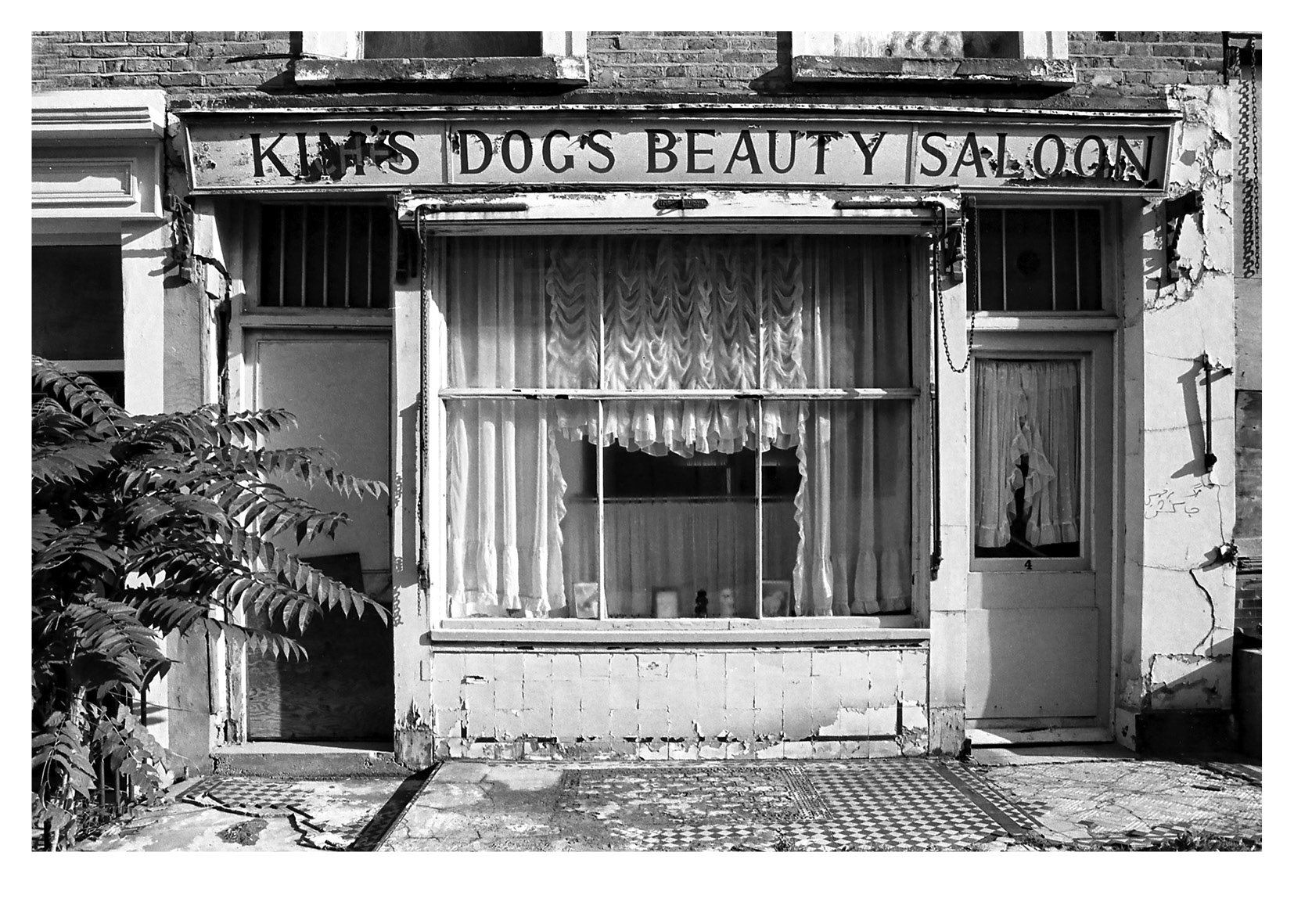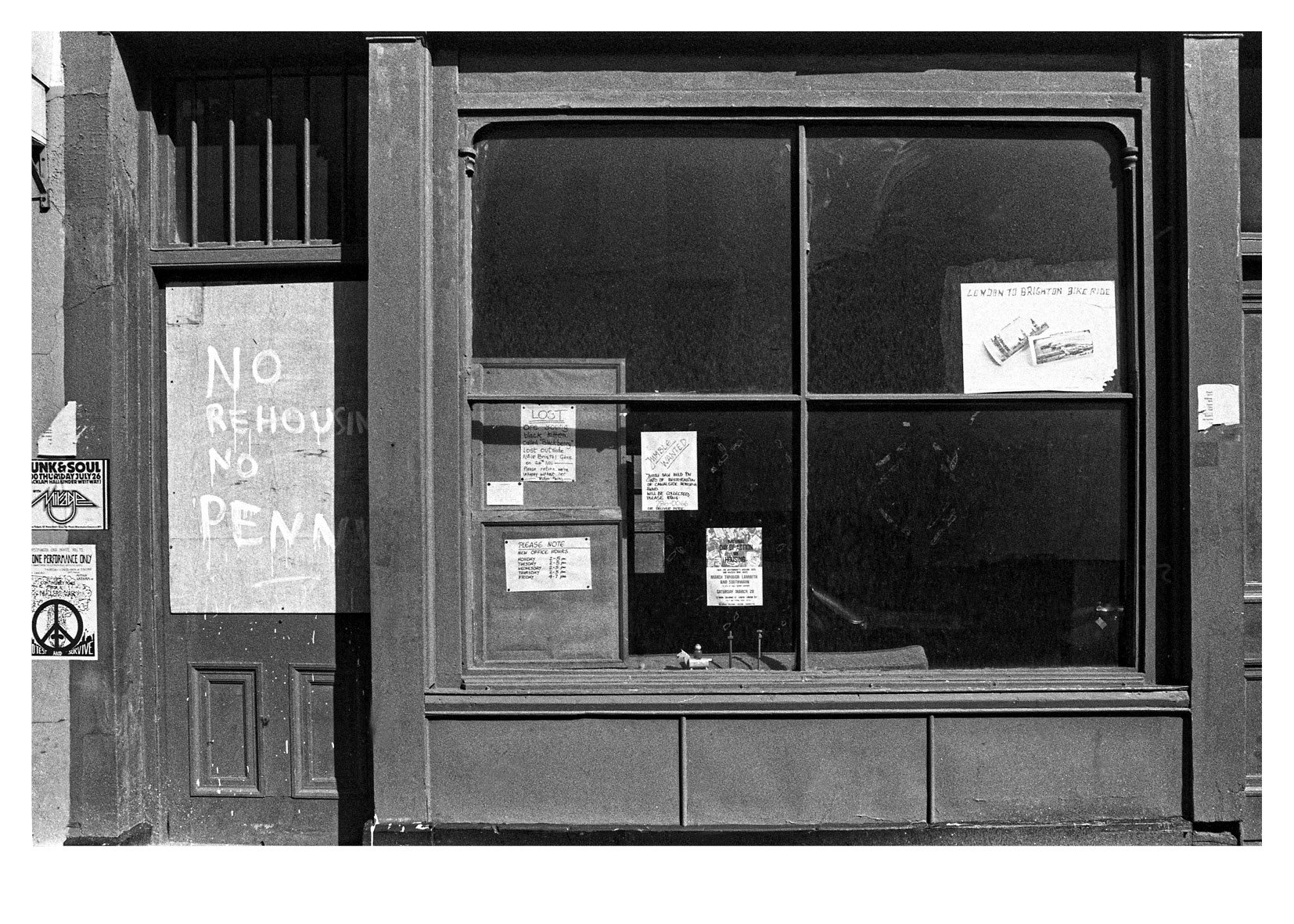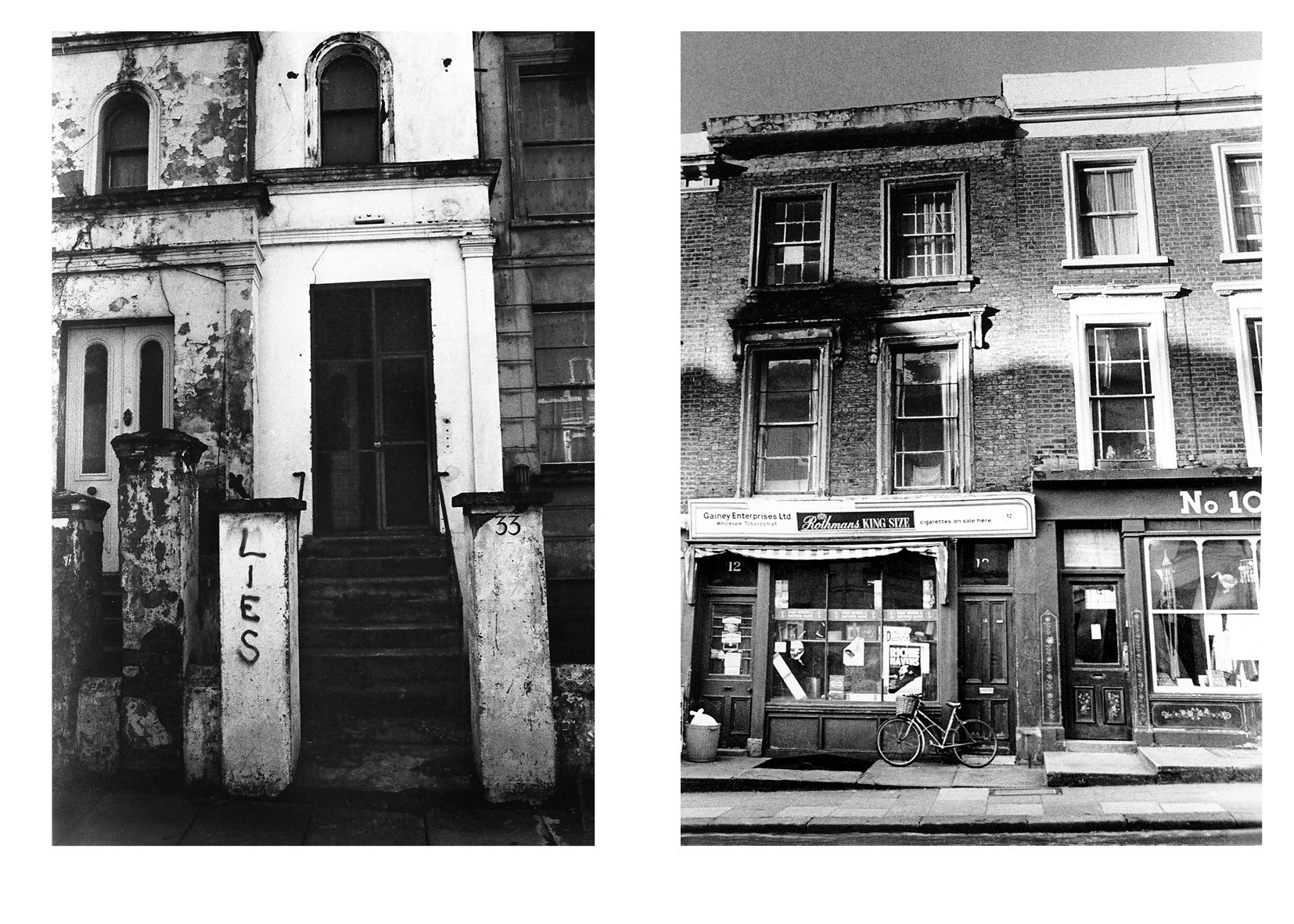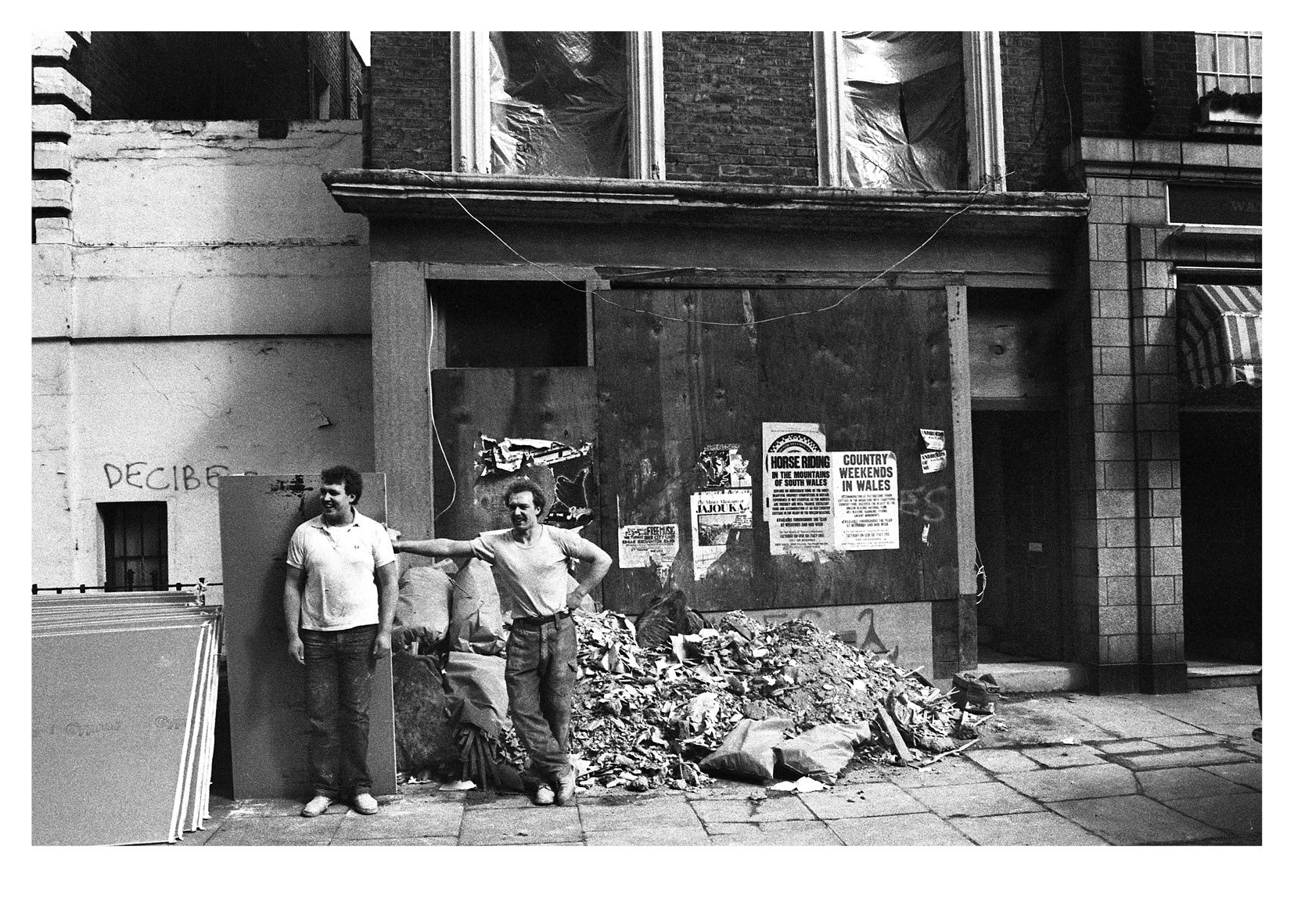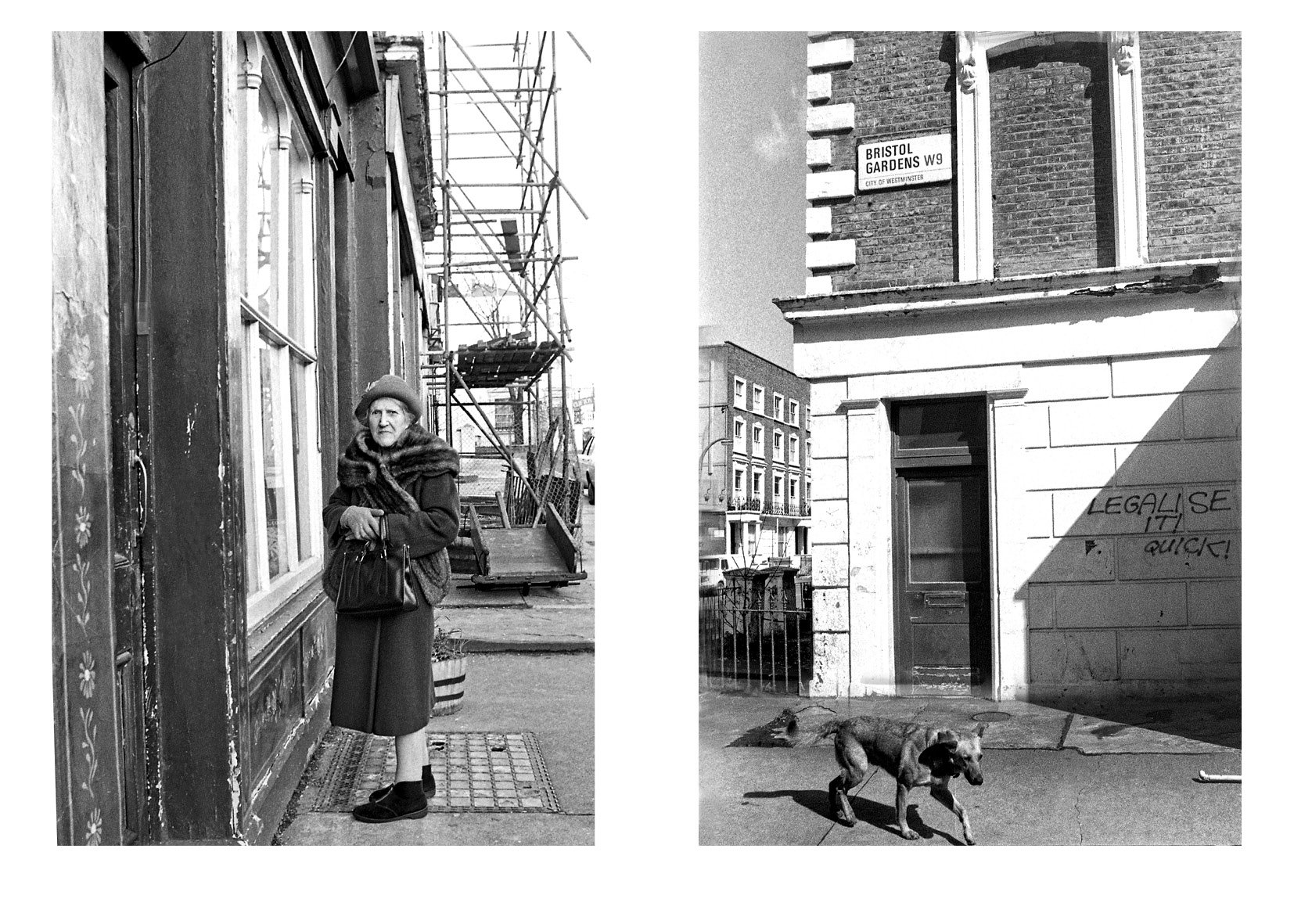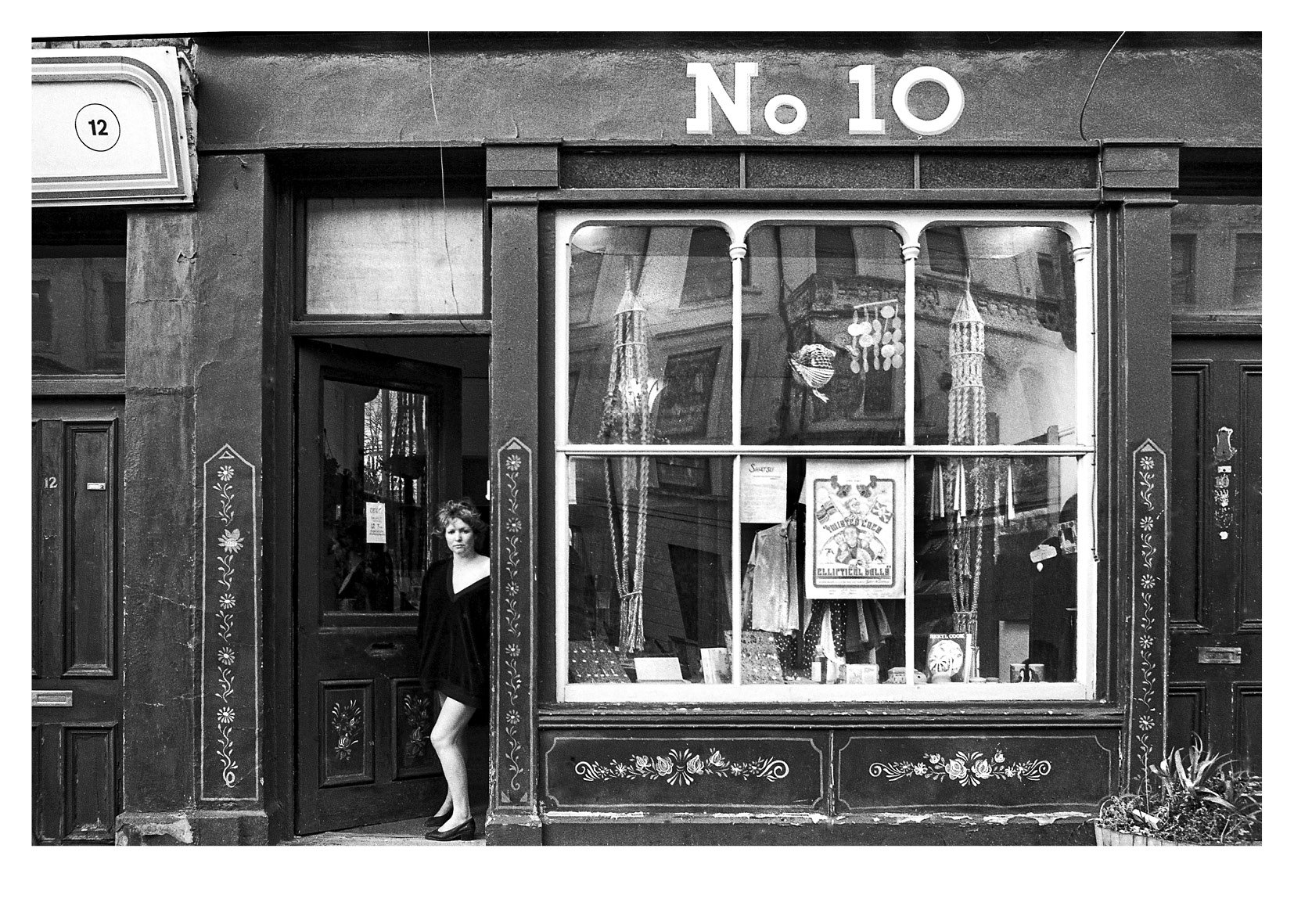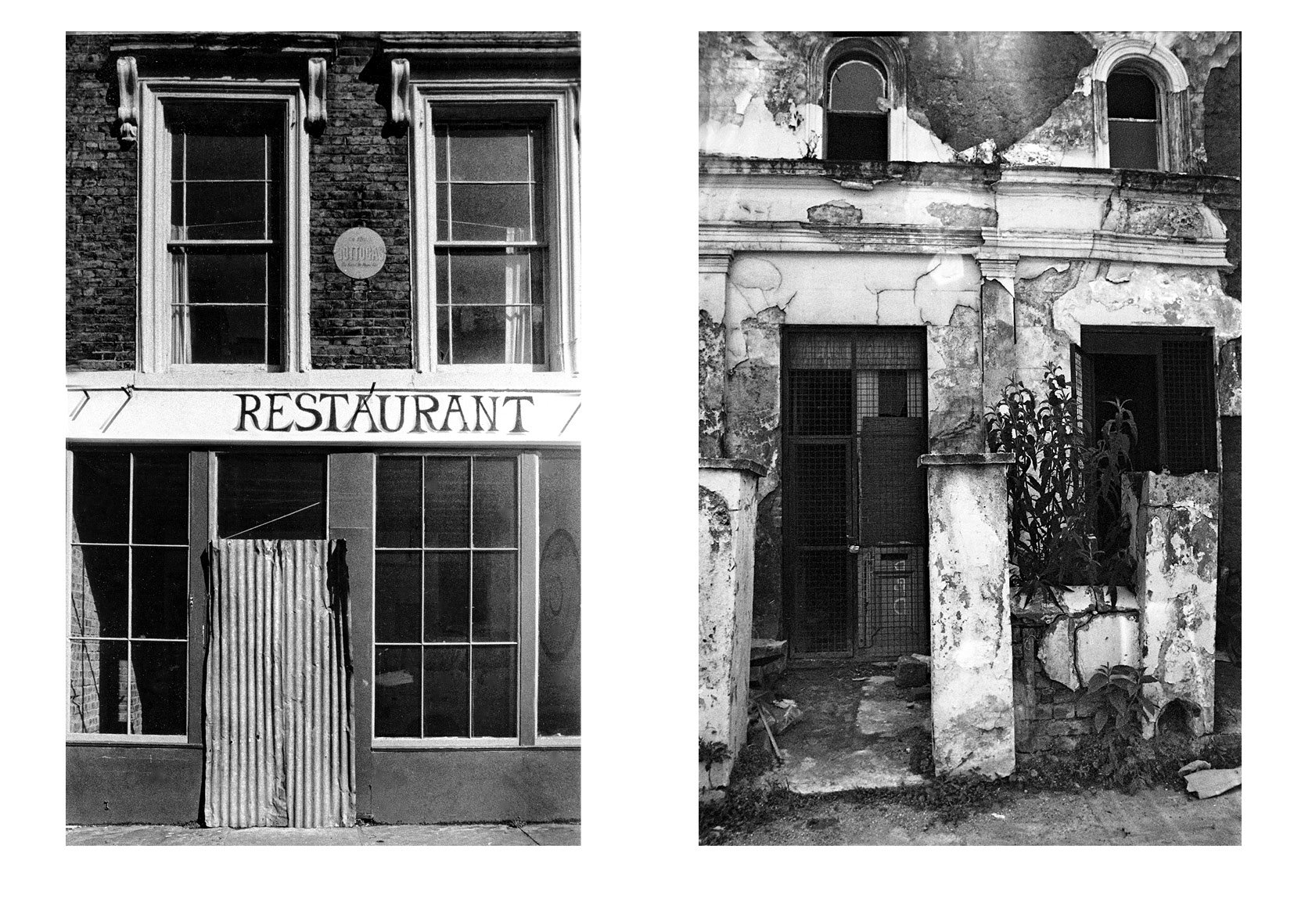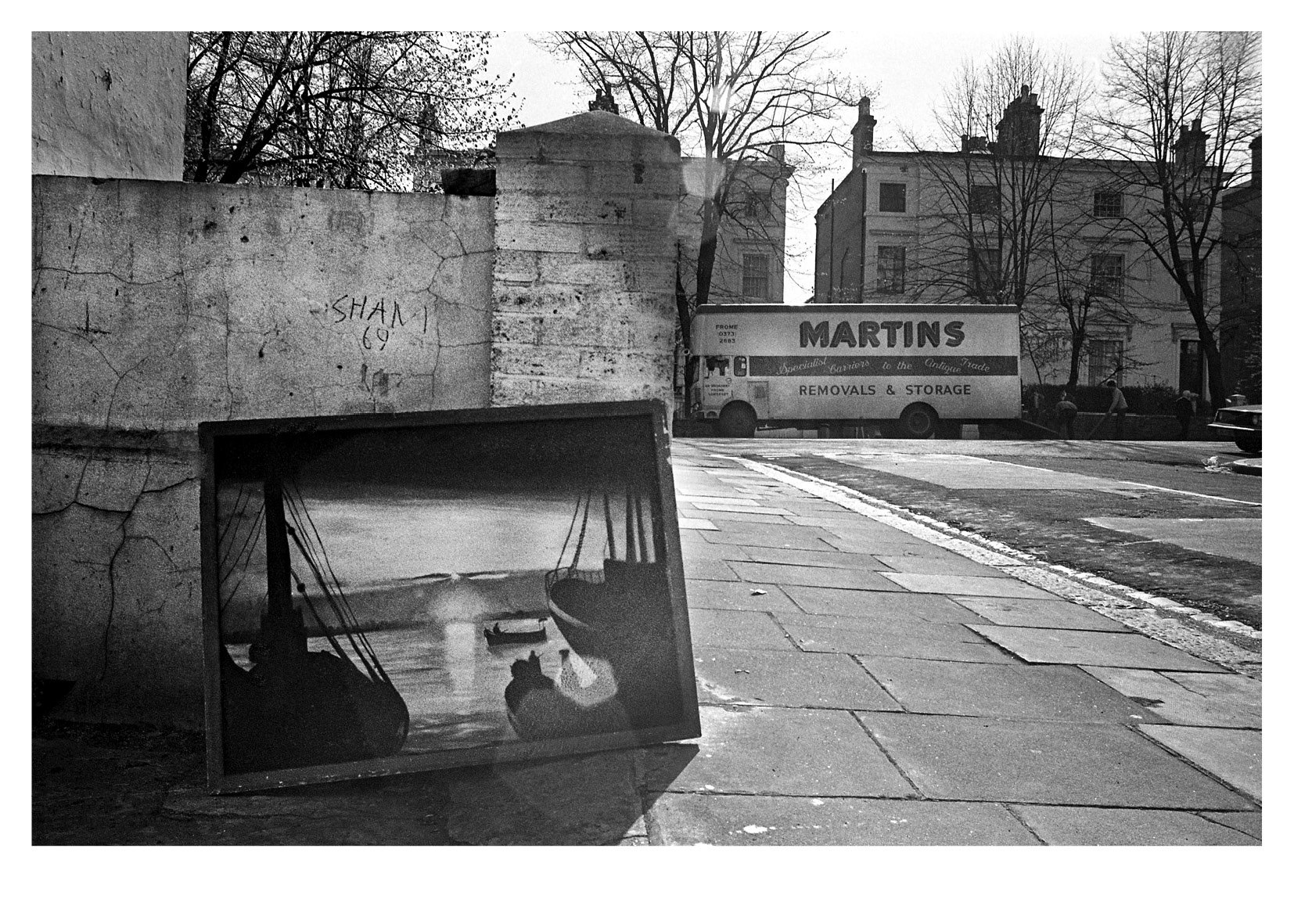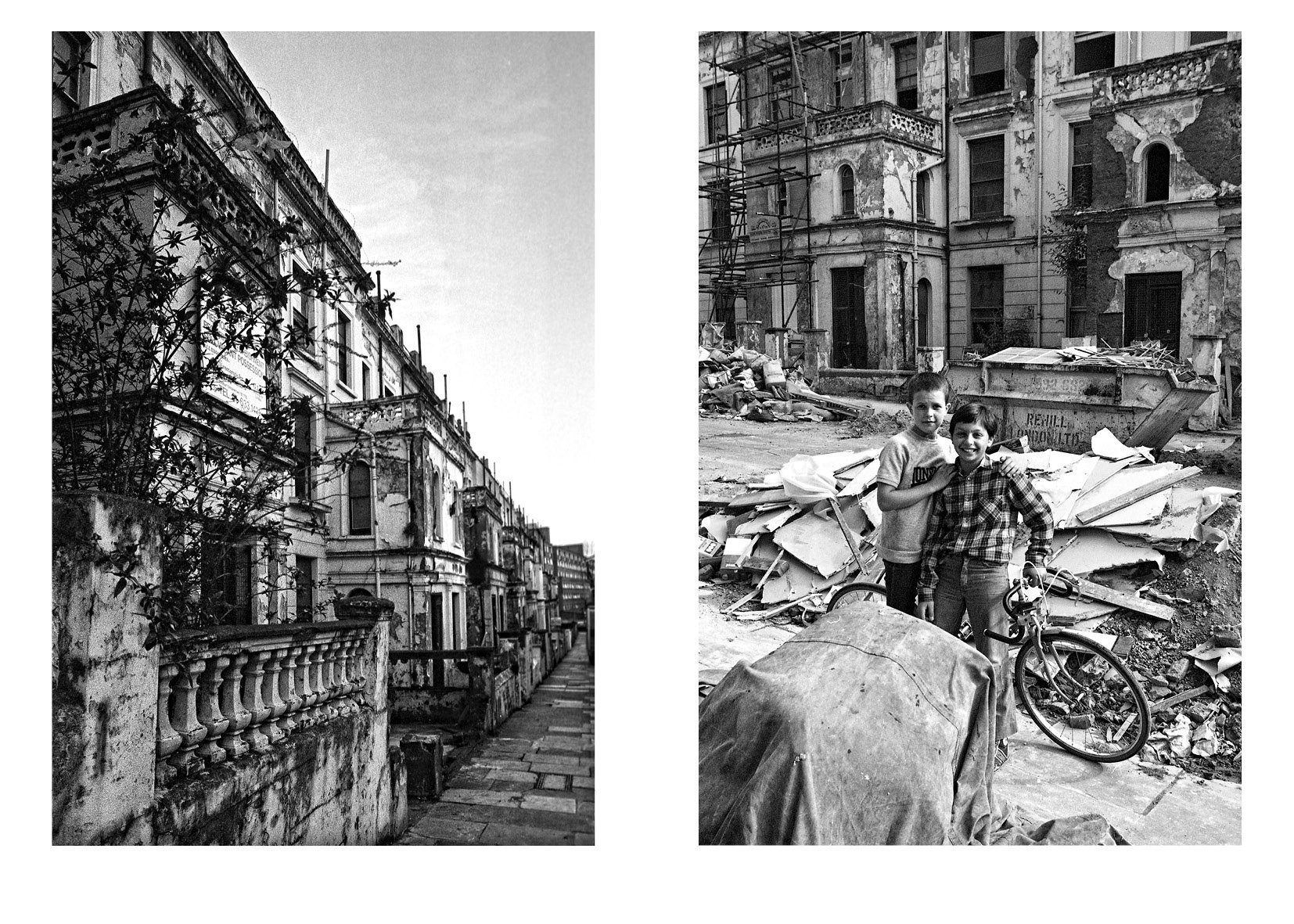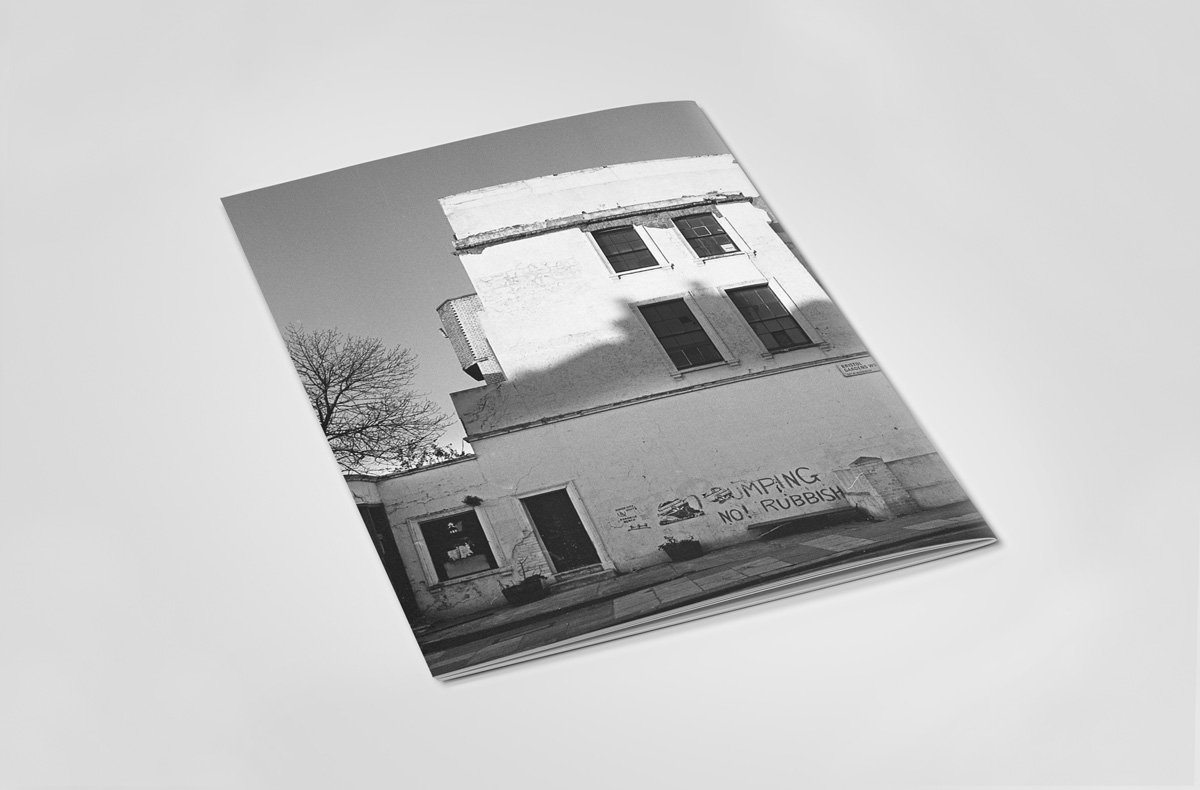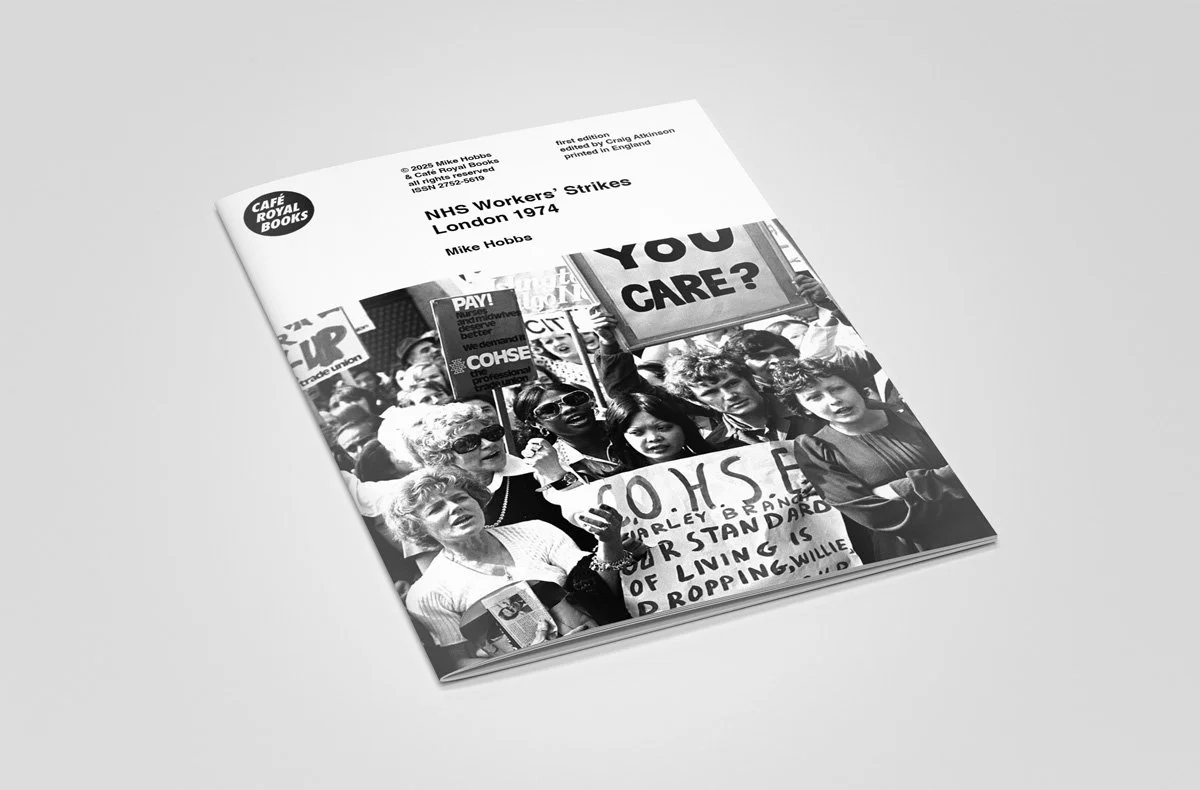 Image 1 of 19
Image 1 of 19

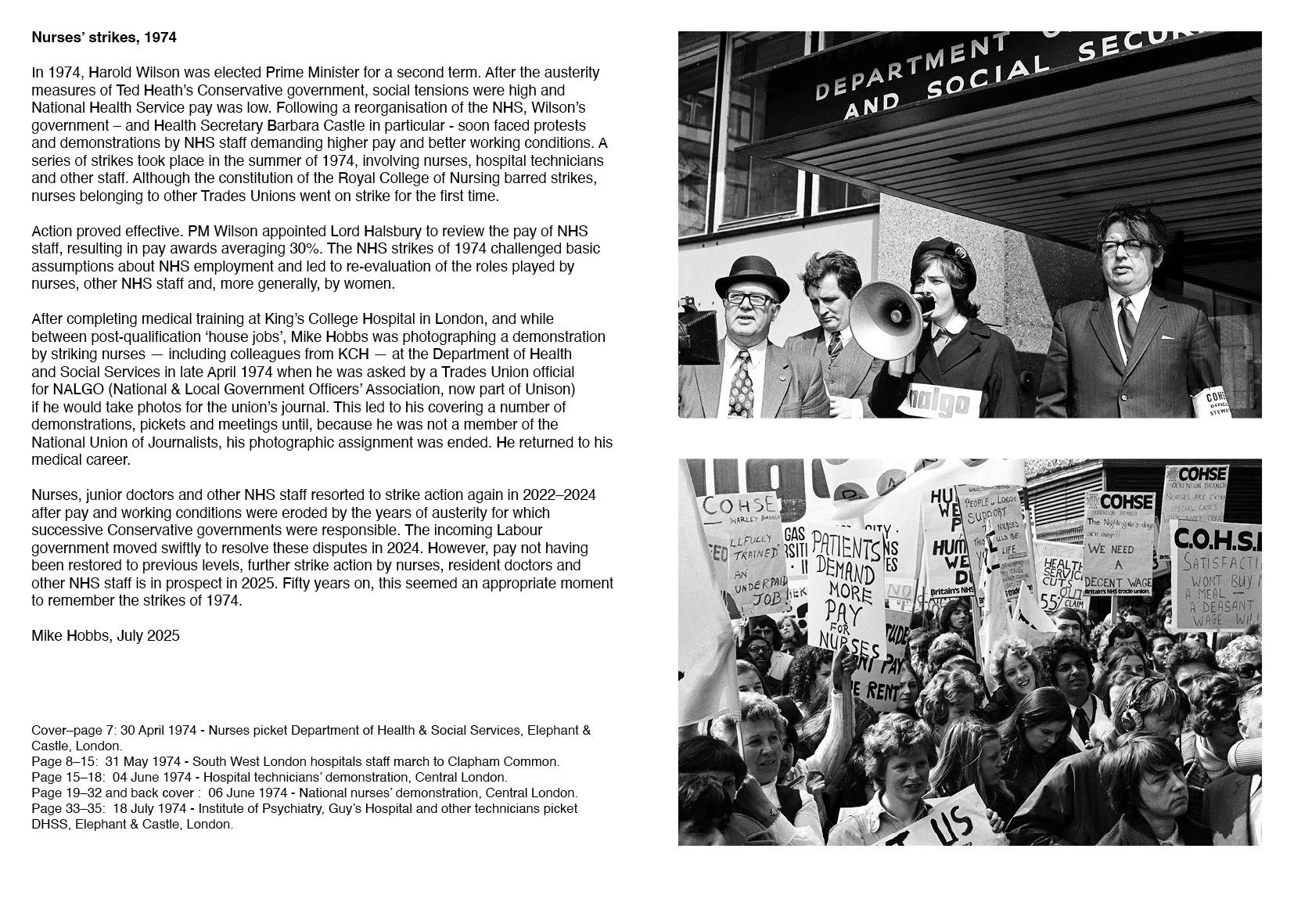 Image 2 of 19
Image 2 of 19

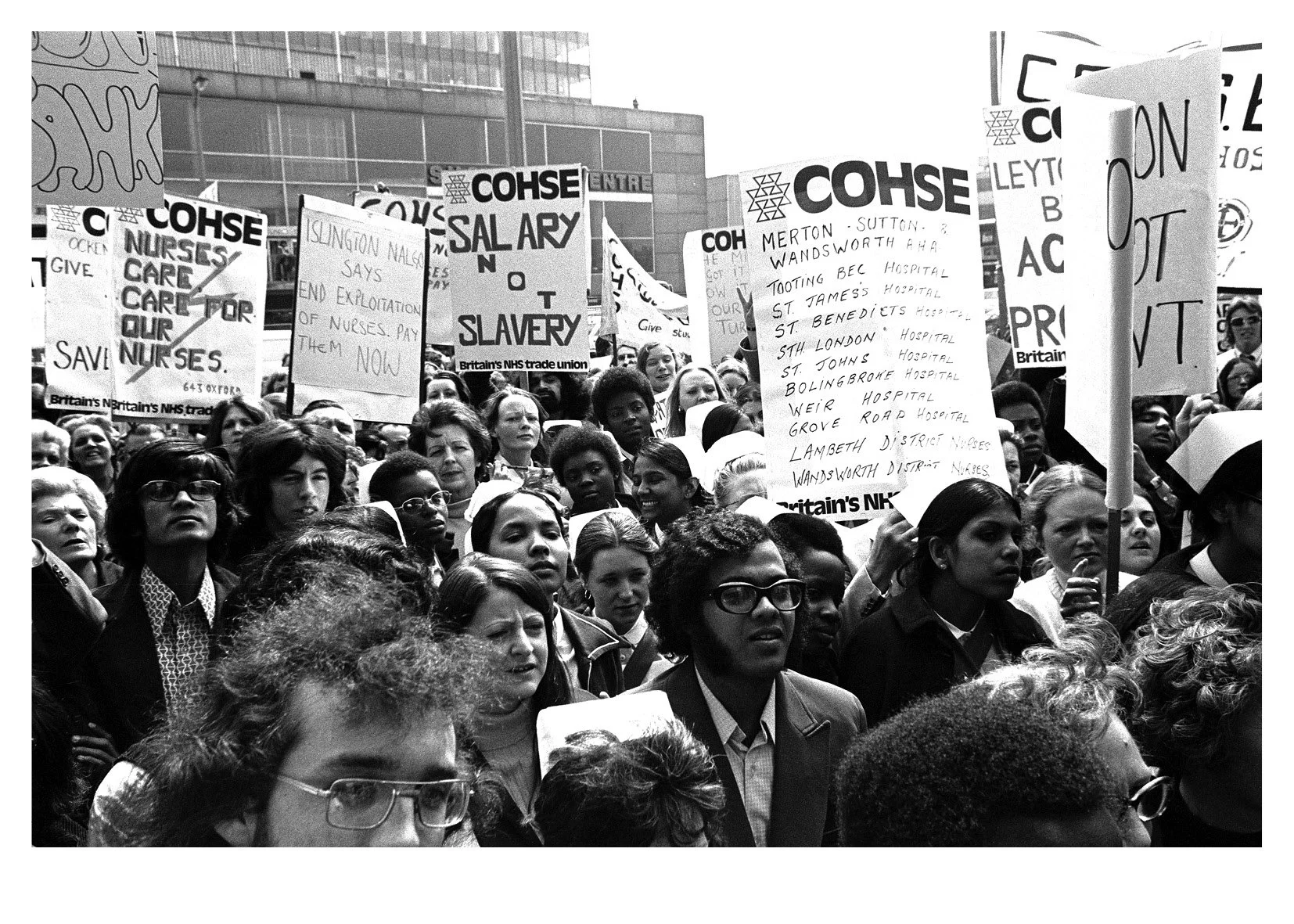 Image 3 of 19
Image 3 of 19

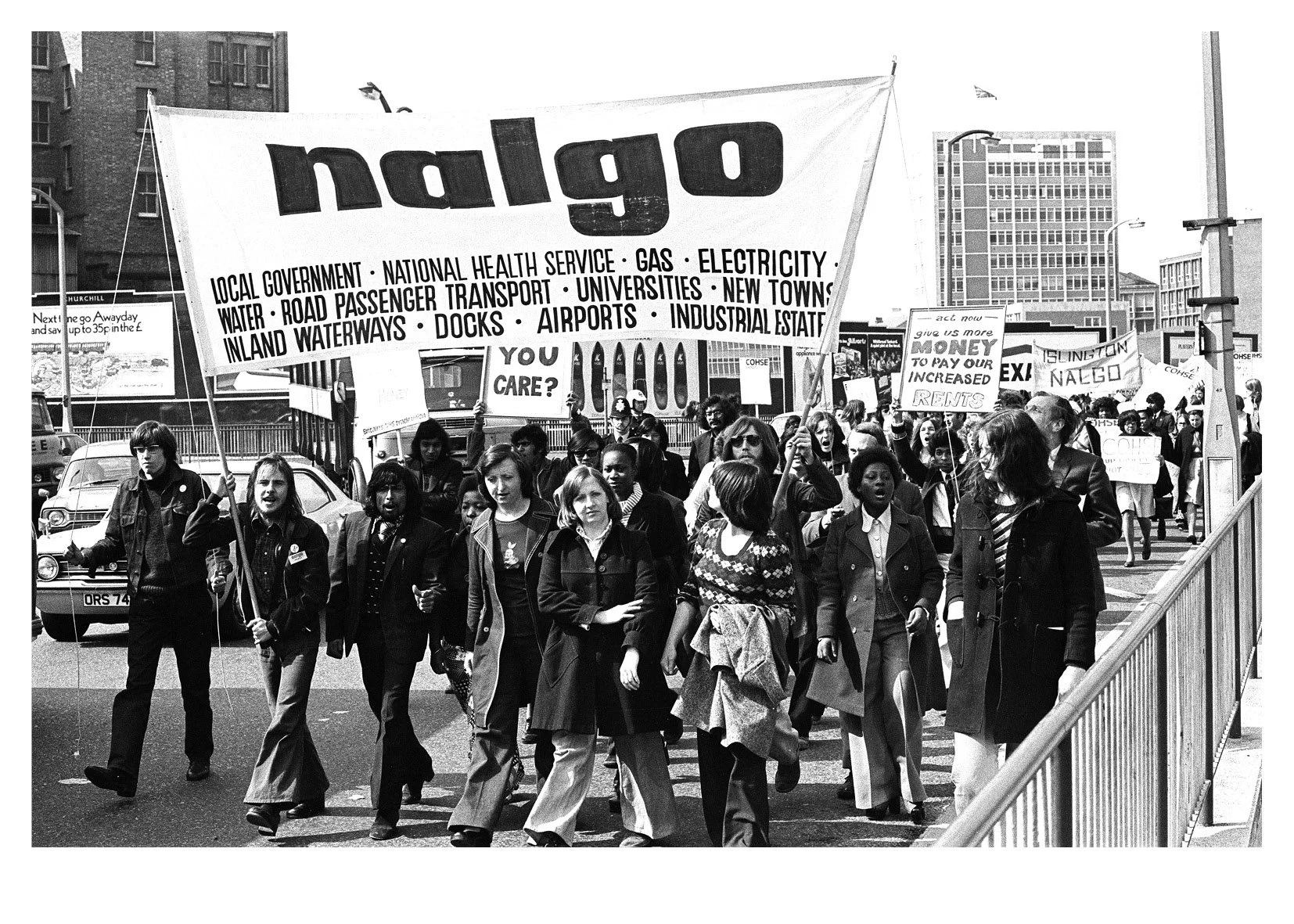 Image 4 of 19
Image 4 of 19

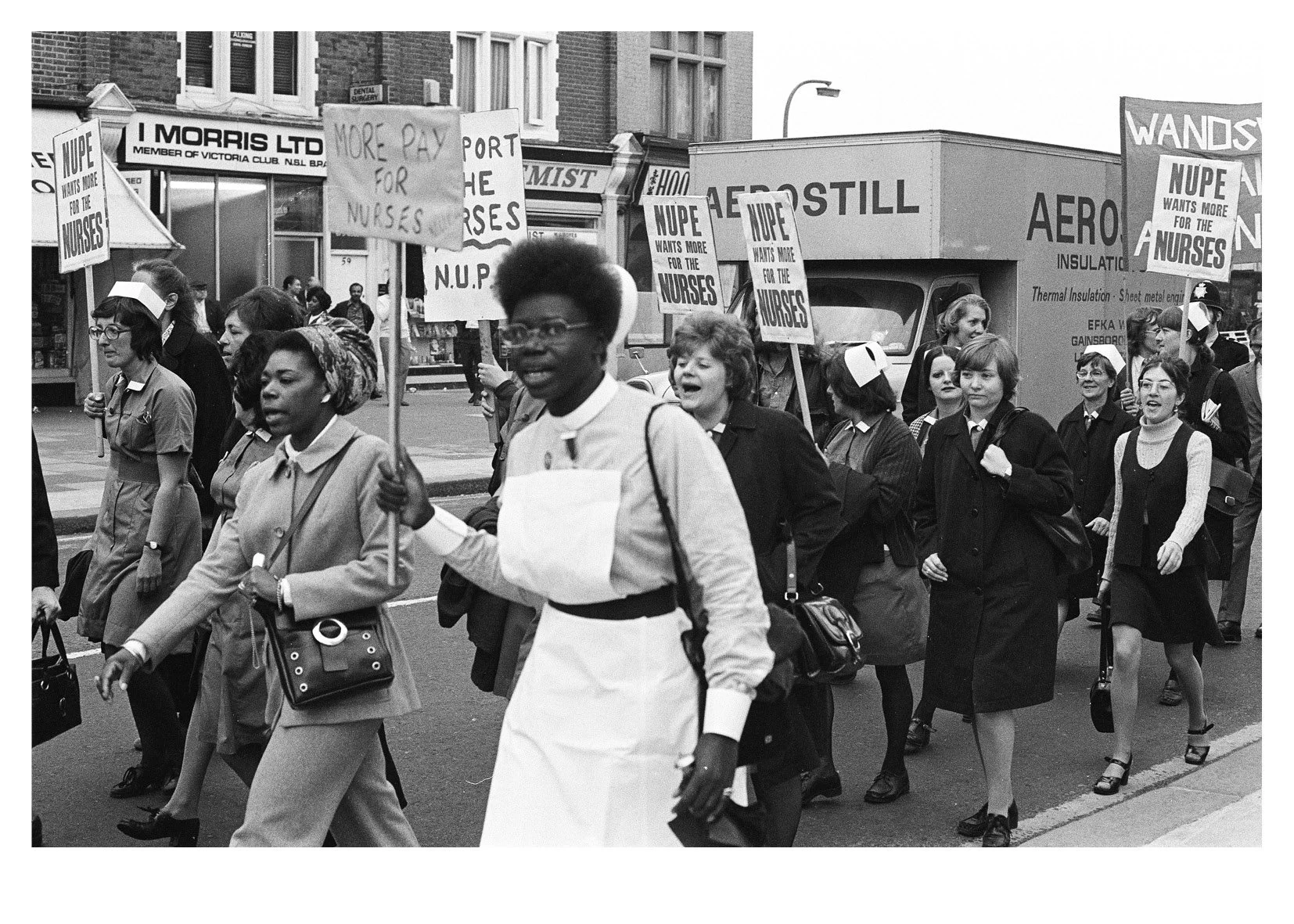 Image 5 of 19
Image 5 of 19

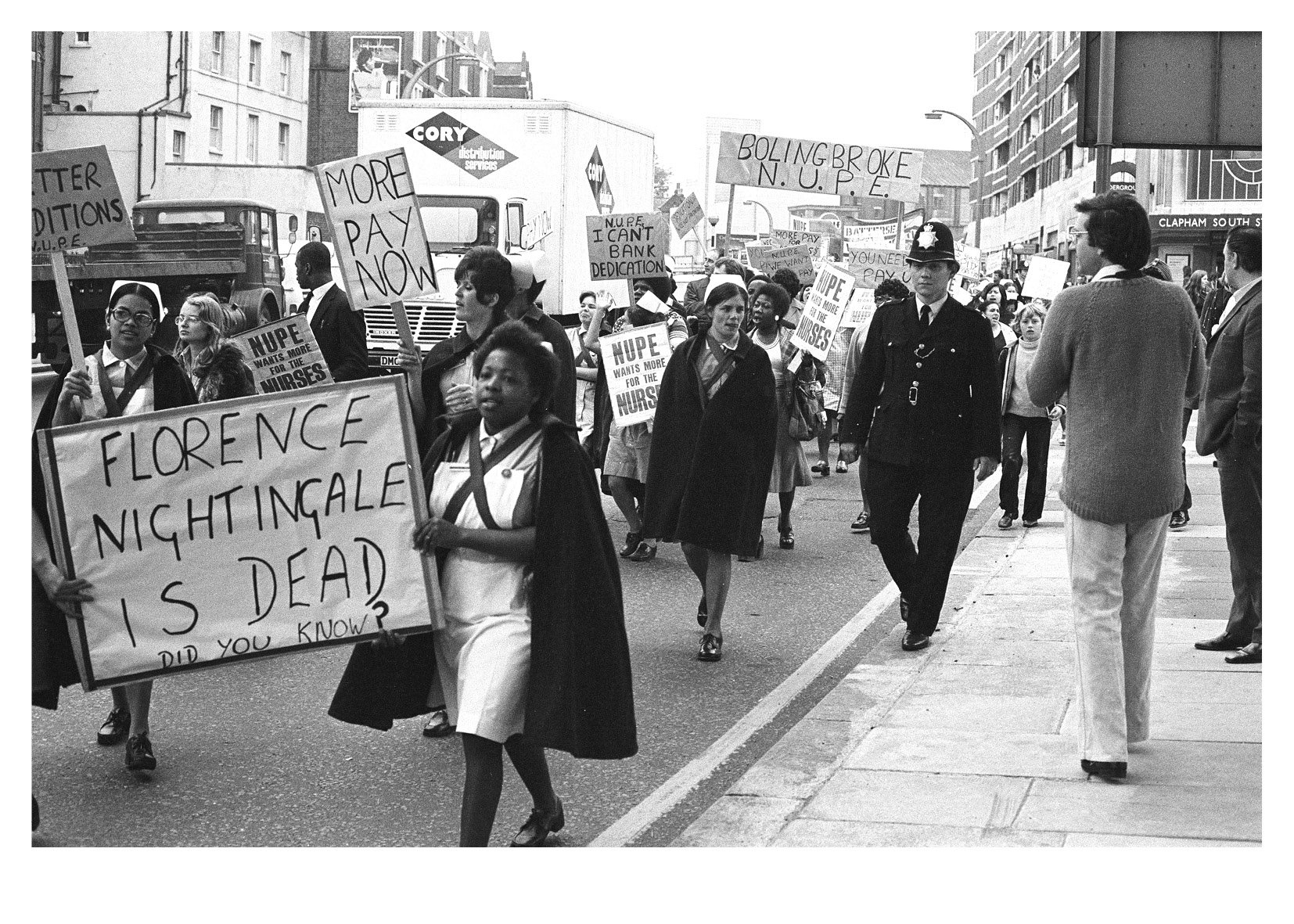 Image 6 of 19
Image 6 of 19

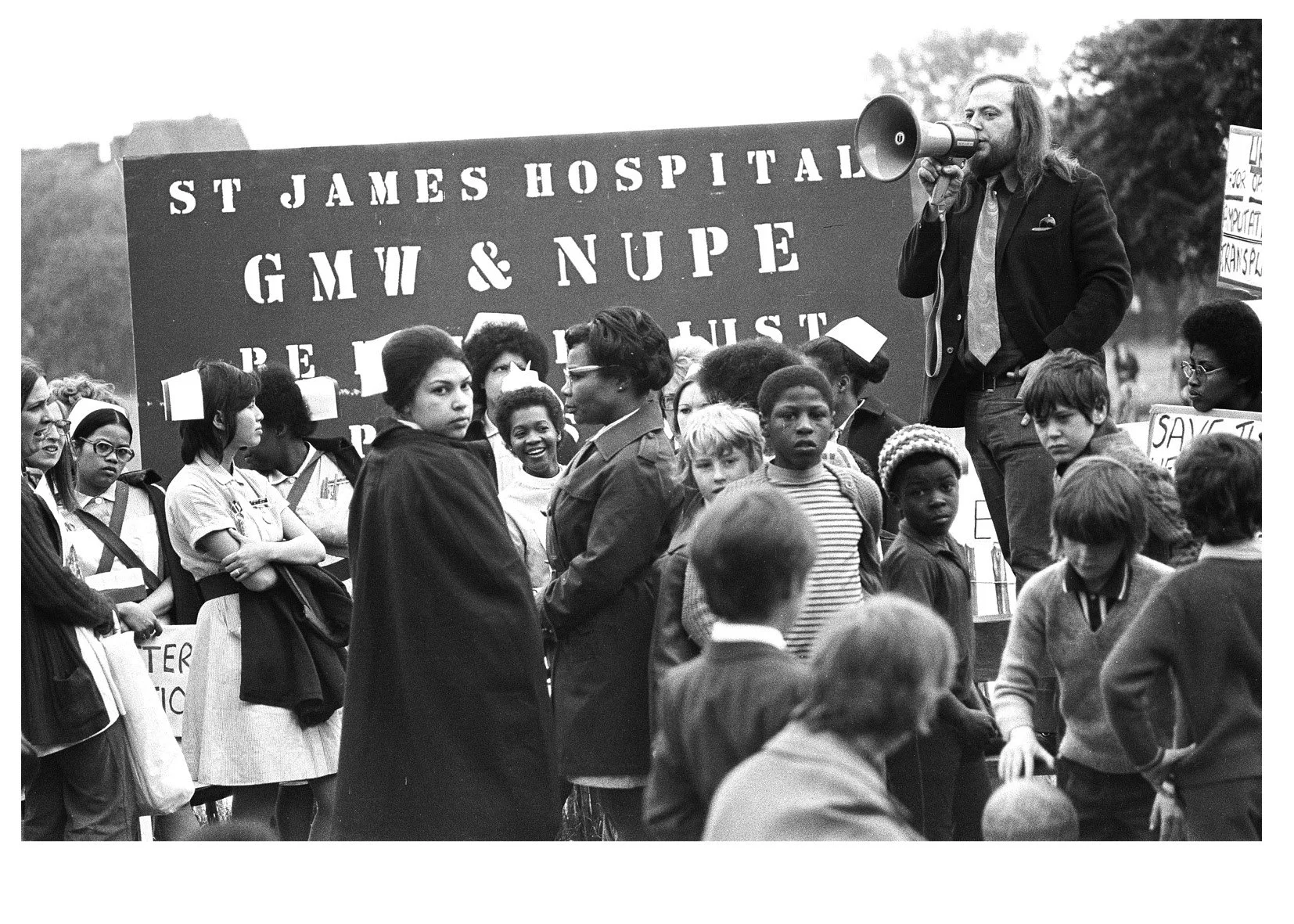 Image 7 of 19
Image 7 of 19

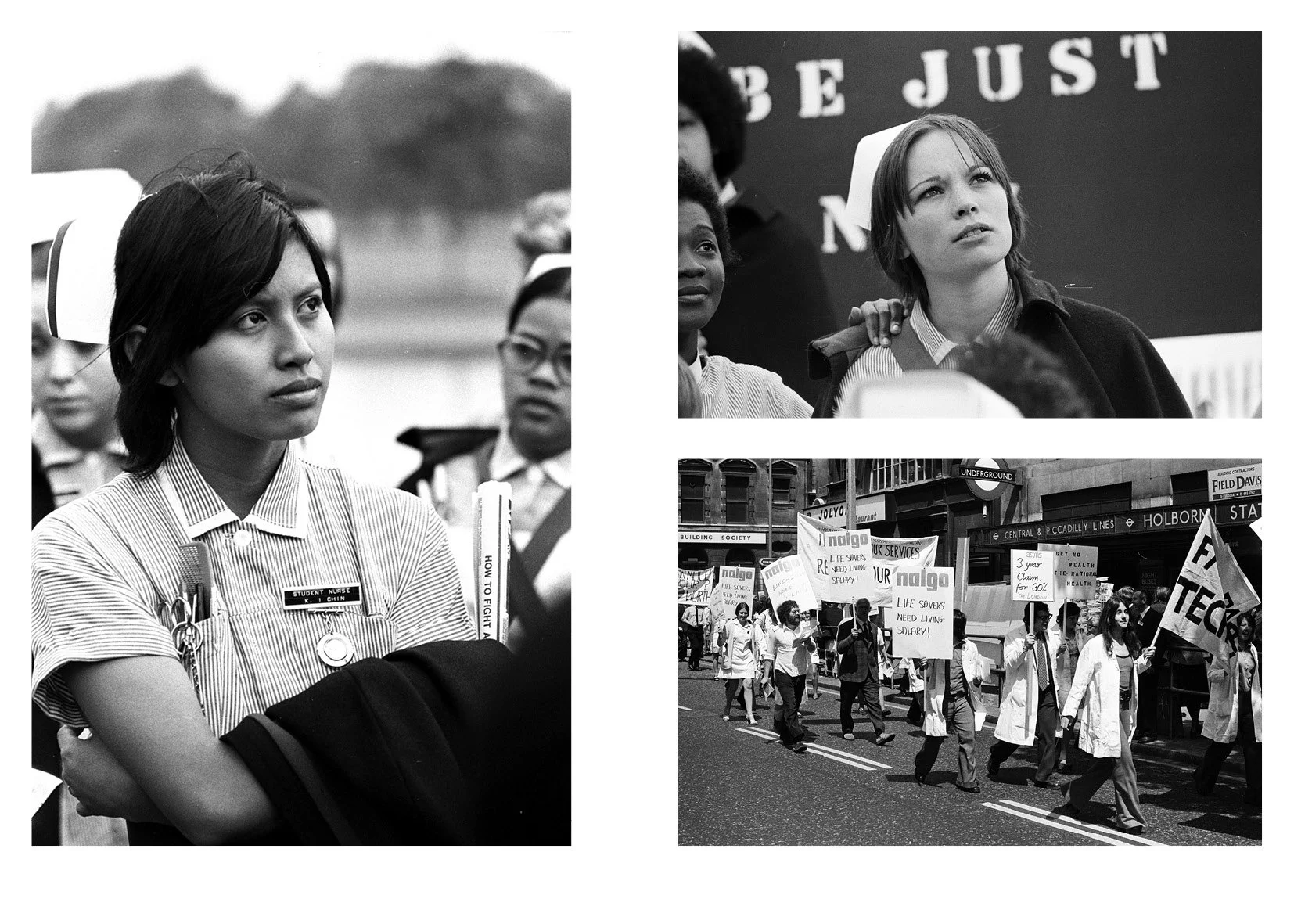 Image 8 of 19
Image 8 of 19

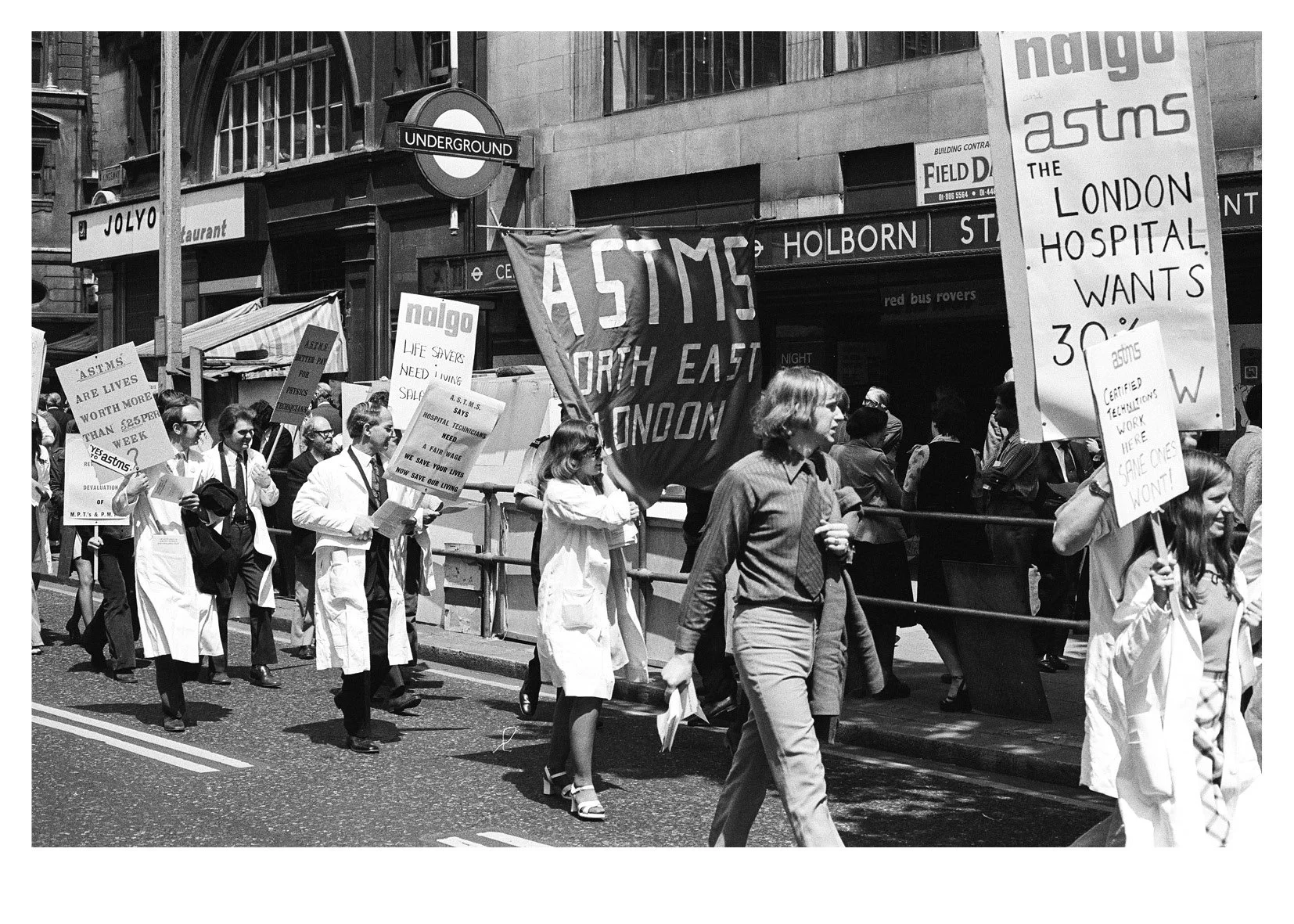 Image 9 of 19
Image 9 of 19

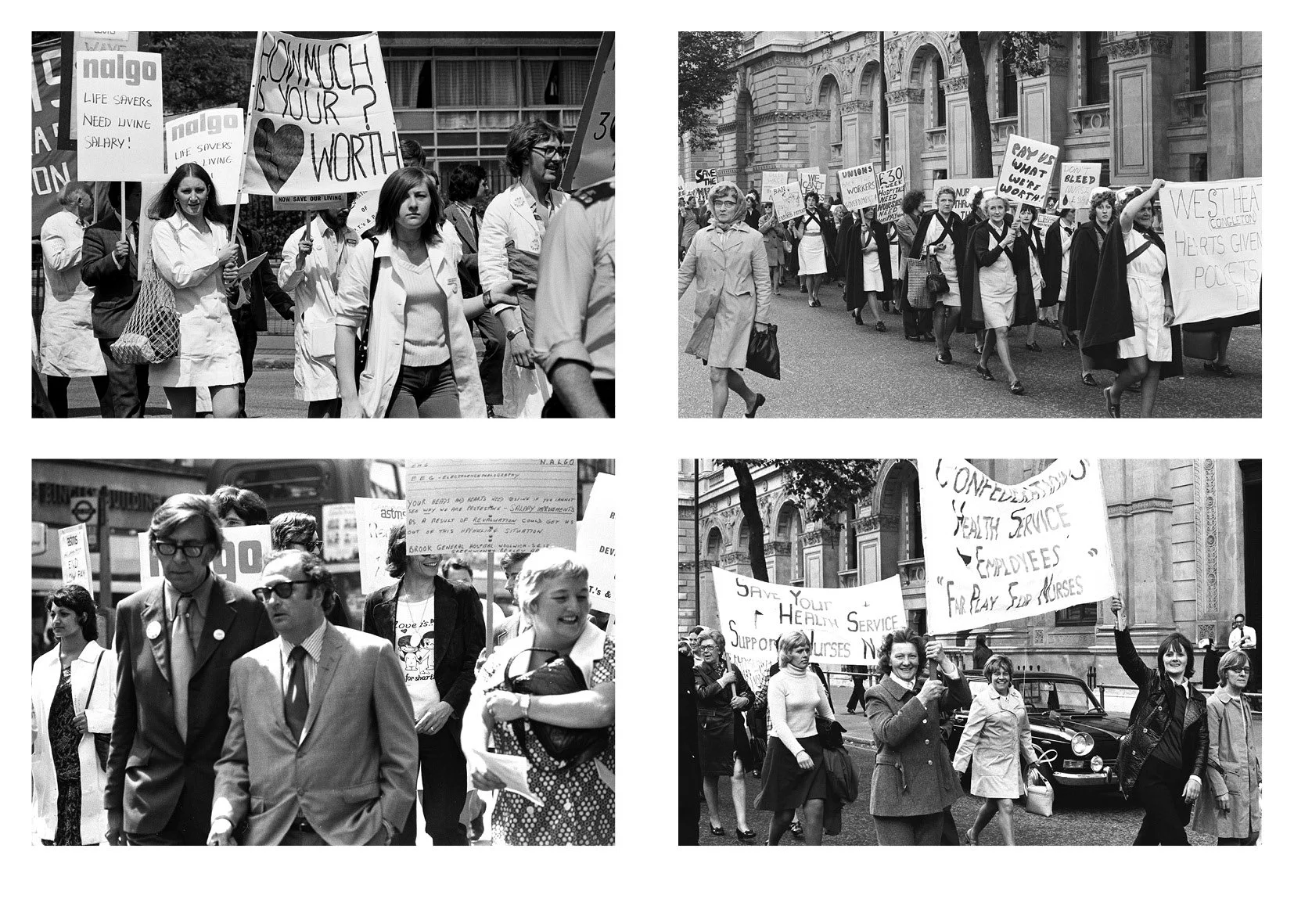 Image 10 of 19
Image 10 of 19

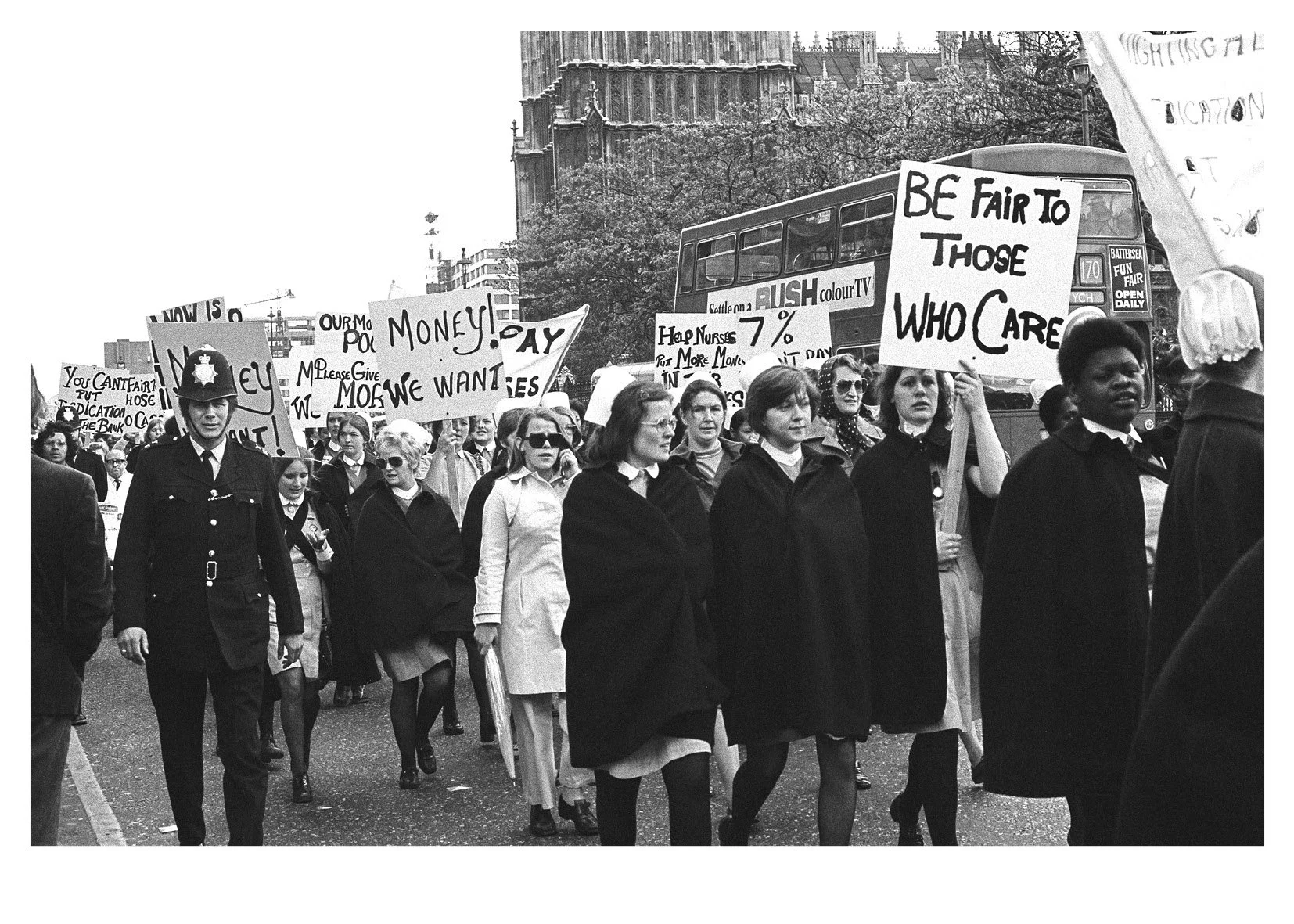 Image 11 of 19
Image 11 of 19

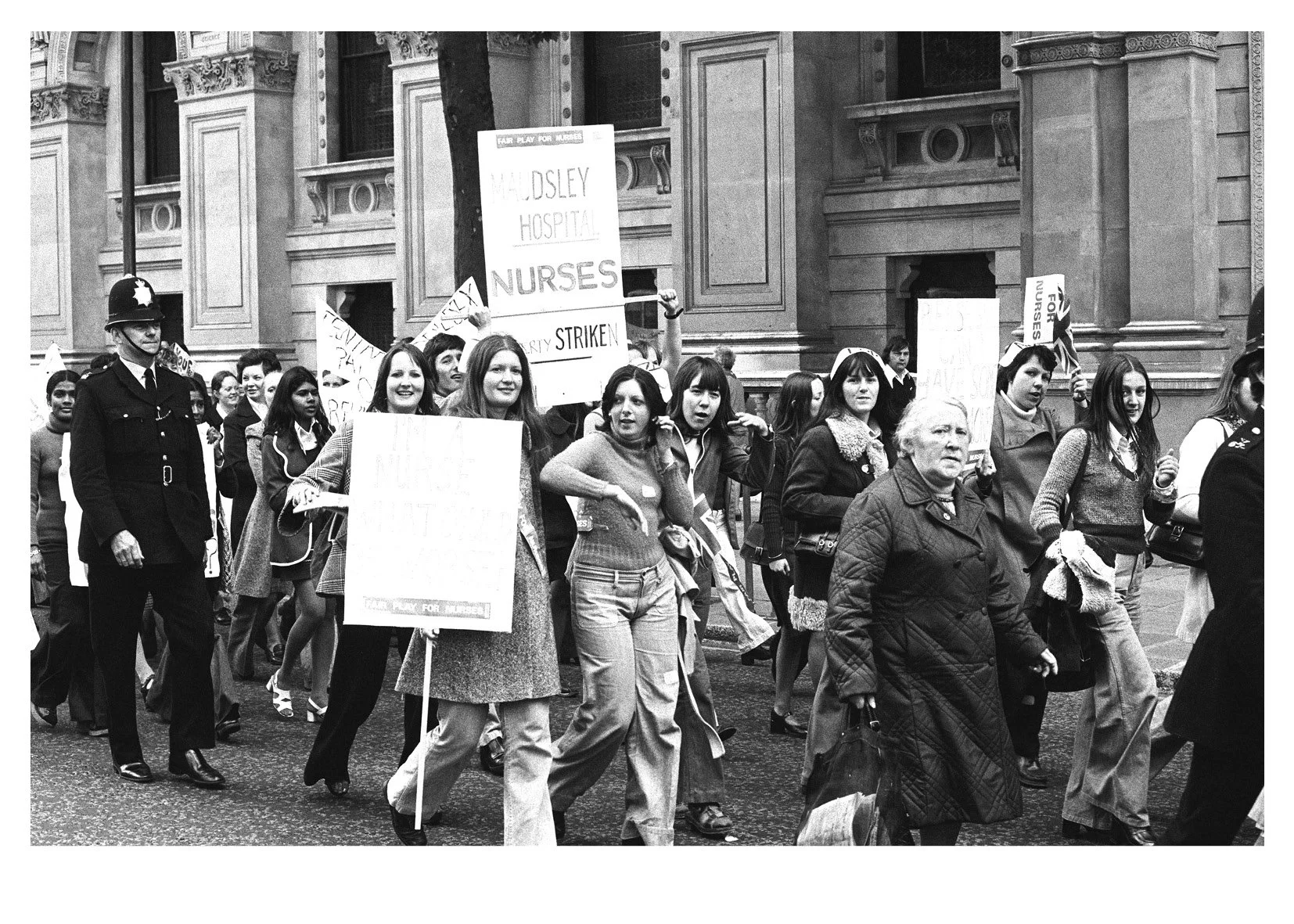 Image 12 of 19
Image 12 of 19

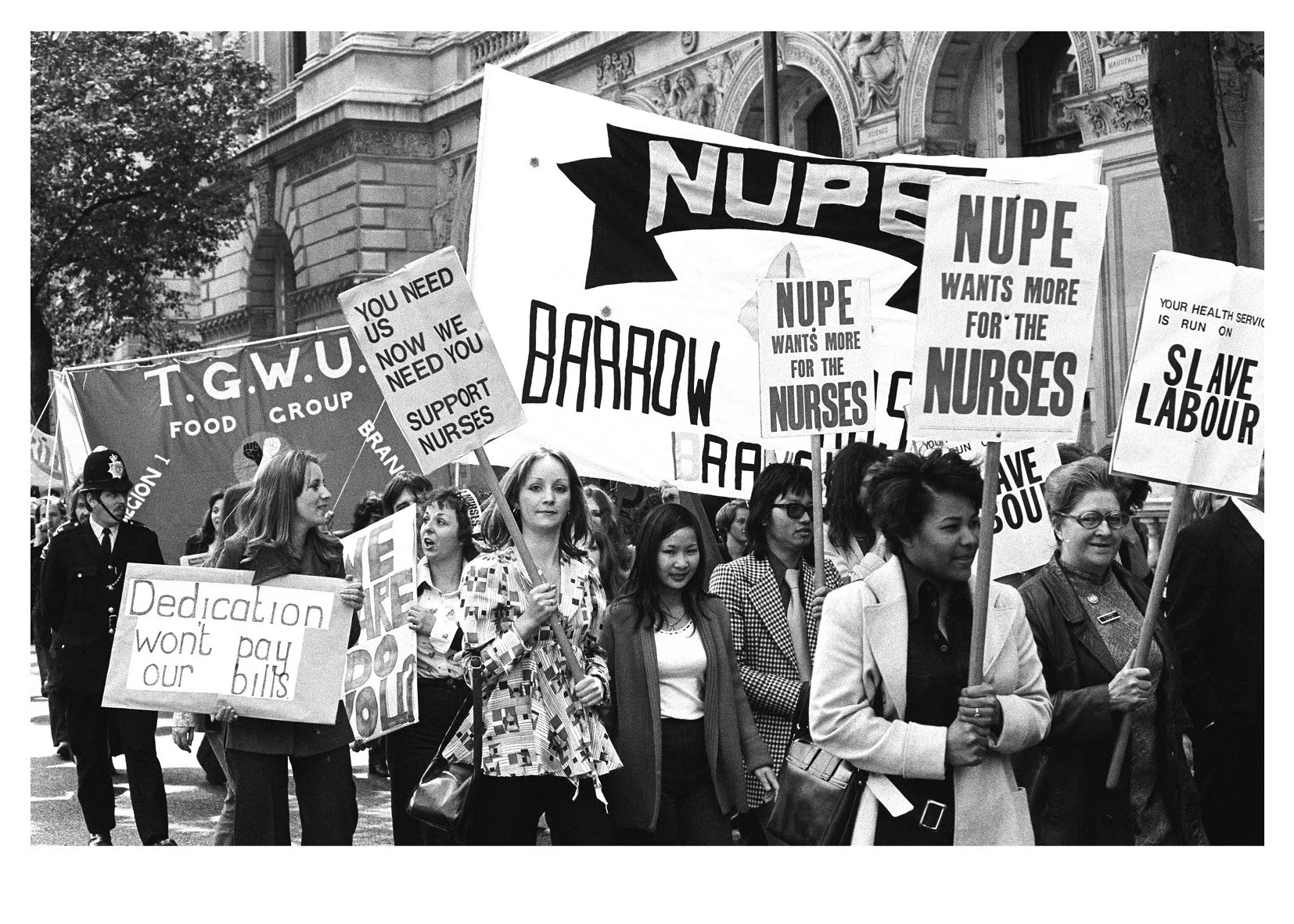 Image 13 of 19
Image 13 of 19

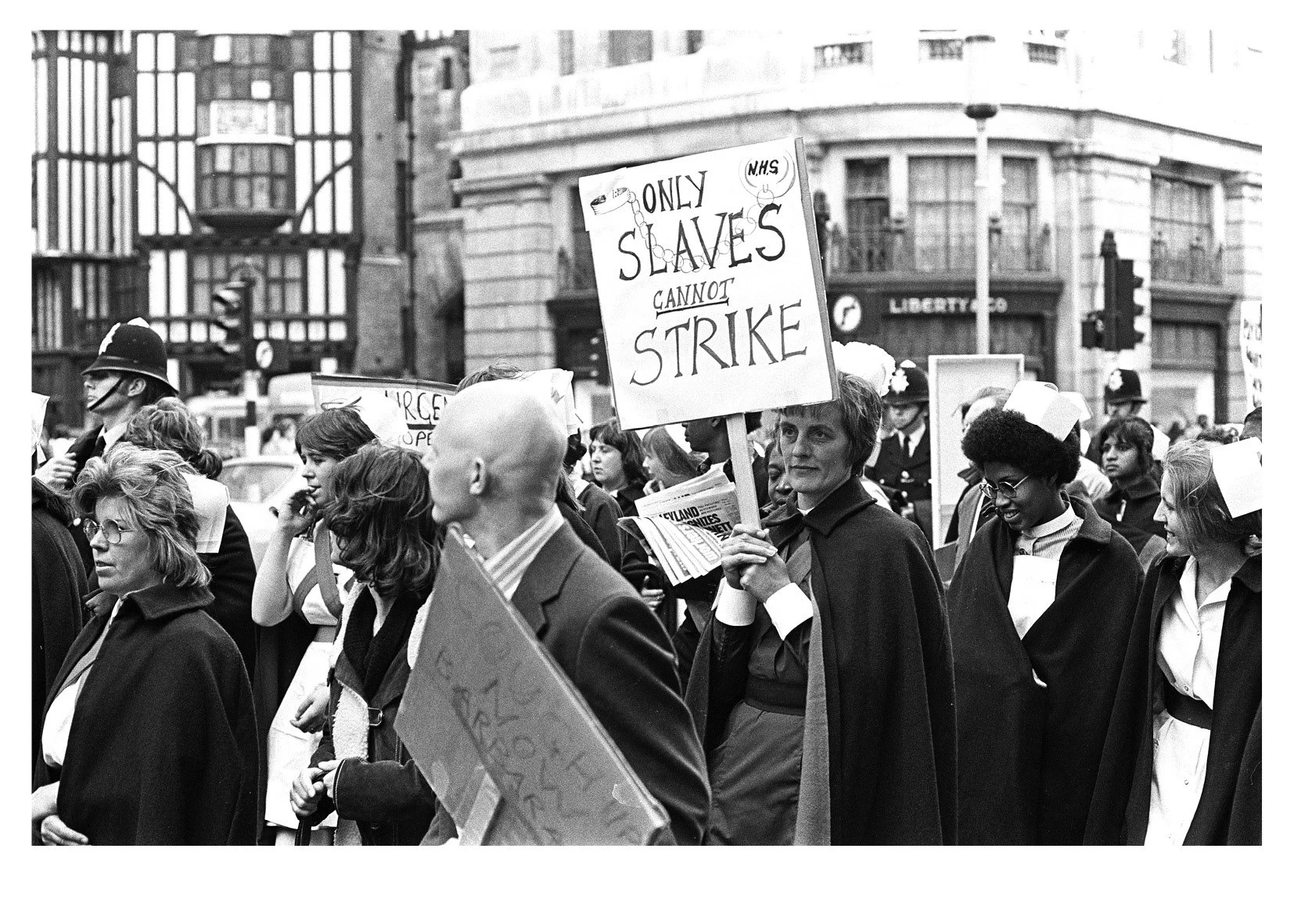 Image 14 of 19
Image 14 of 19

 Image 15 of 19
Image 15 of 19

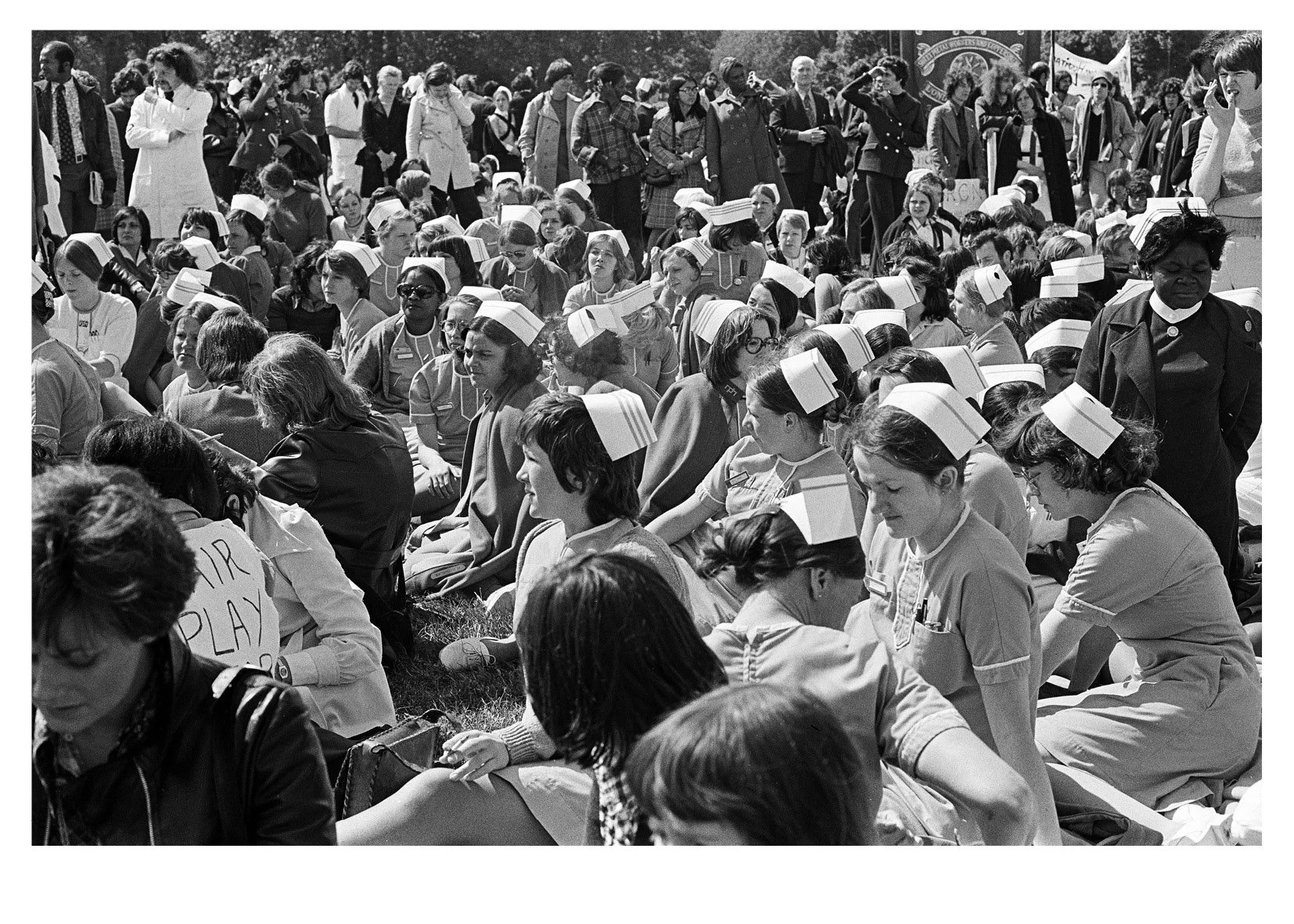 Image 16 of 19
Image 16 of 19

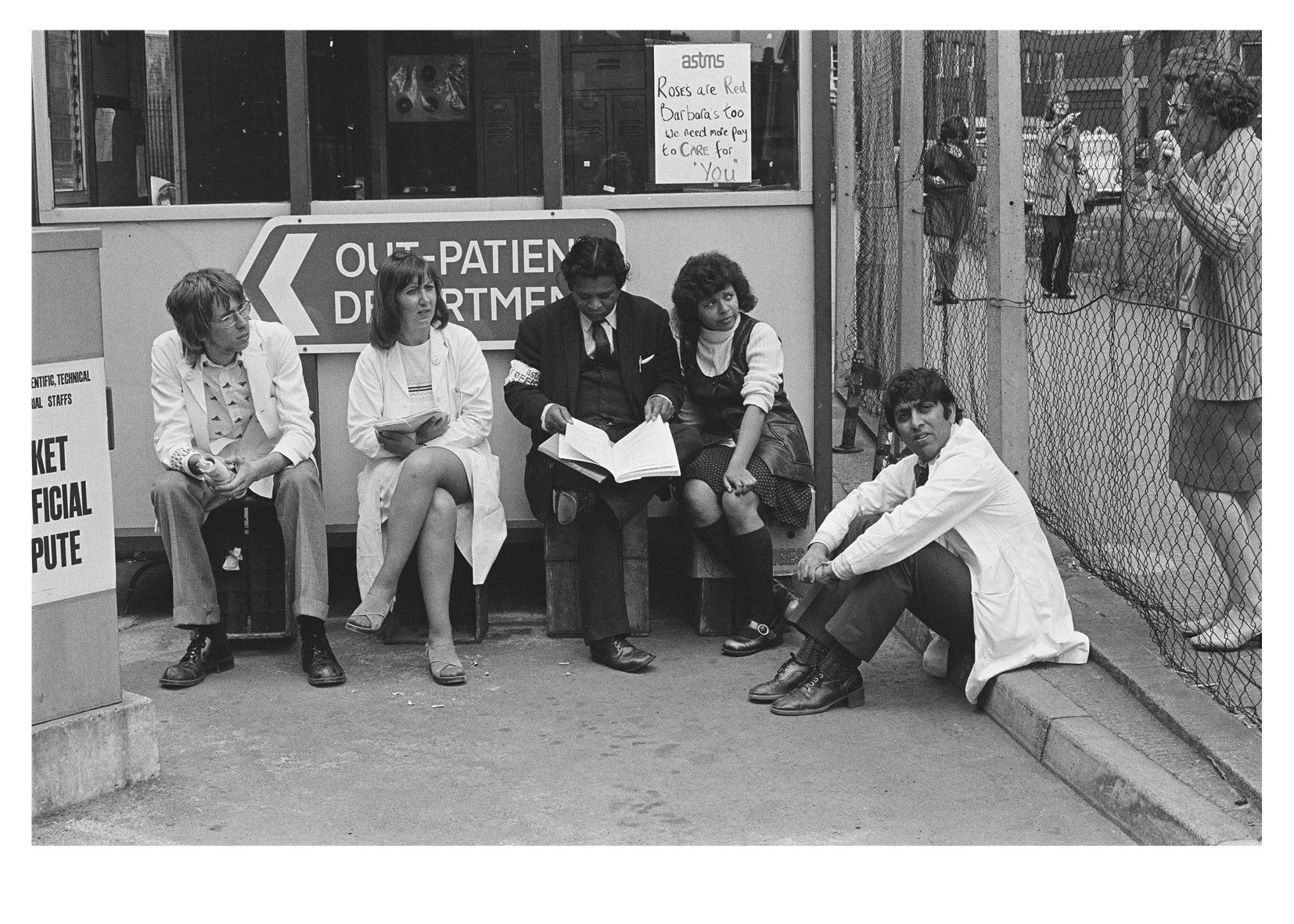 Image 17 of 19
Image 17 of 19

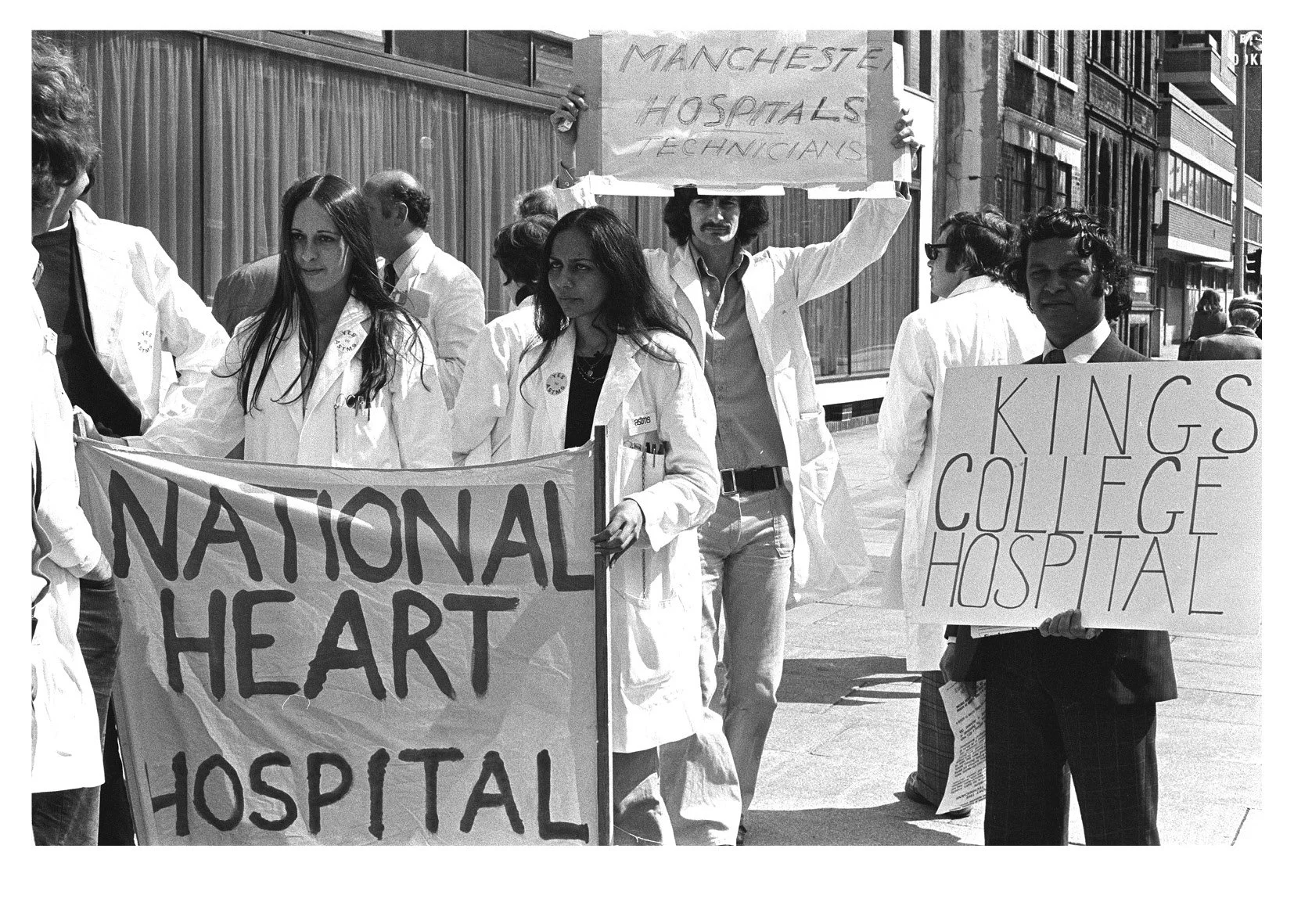 Image 18 of 19
Image 18 of 19

 Image 19 of 19
Image 19 of 19




















Mike Hobbs — NHS Workers’ Strikes London 1974
36 pages
printed in England
staple bound
14cm x 20cm
Nurses’ strikes, 1974
In 1974, Harold Wilson was elected Prime Minister for a second term. After the austerity measures of Ted Heath’s Conservative government, social tensions were high and National Health Service pay was low. Following a reorganisation of the NHS, Wilson’s government – and Health Secretary Barbara Castle in particular - soon faced protests and demonstrations by NHS staff demanding higher pay and better working conditions. A series of strikes took place in the summer of 1974, involving nurses, hospital technicians and other staff. Although the constitution of the Royal College of Nursing barred strikes, nurses belonging to other Trades Unions went on strike for the first time.
Action proved effective. PM Wilson appointed Lord Halsbury to review the pay of NHS staff, resulting in pay awards averaging 30%. The NHS strikes of 1974 challenged basic assumptions about NHS employment and led to re-evaluation of the roles played by nurses, other NHS staff and, more generally, by women.
After completing medical training at King’s College Hospital in London, and while between post-qualification ‘house jobs’, Mike Hobbs was photographing a demonstration by striking nurses — including colleagues from KCH — at the Department of Health and Social Services in late April 1974 when he was asked by a Trades Union official for NALGO (National & Local Government Officers’ Association, now part of Unison) if he would take photos for the union’s journal. This led to his covering a number of demonstrations, pickets and meetings until, because he was not a member of the National Union of Journalists, his photographic assignment was ended. He returned to his medical career.
Nurses, junior doctors and other NHS staff resorted to strike action again in 2022–2024 after pay and working conditions were eroded by the years of austerity for which successive Conservative governments were responsible. The incoming Labour government moved swiftly to resolve these disputes in 2024. However, pay not having been restored to previous levels, further strike action by nurses, resident doctors and other NHS staff is in prospect in 2025. Fifty years on, this seemed an appropriate moment to remember the strikes of 1974.
Mike Hobbs, July 2025
36 pages
printed in England
staple bound
14cm x 20cm
Nurses’ strikes, 1974
In 1974, Harold Wilson was elected Prime Minister for a second term. After the austerity measures of Ted Heath’s Conservative government, social tensions were high and National Health Service pay was low. Following a reorganisation of the NHS, Wilson’s government – and Health Secretary Barbara Castle in particular - soon faced protests and demonstrations by NHS staff demanding higher pay and better working conditions. A series of strikes took place in the summer of 1974, involving nurses, hospital technicians and other staff. Although the constitution of the Royal College of Nursing barred strikes, nurses belonging to other Trades Unions went on strike for the first time.
Action proved effective. PM Wilson appointed Lord Halsbury to review the pay of NHS staff, resulting in pay awards averaging 30%. The NHS strikes of 1974 challenged basic assumptions about NHS employment and led to re-evaluation of the roles played by nurses, other NHS staff and, more generally, by women.
After completing medical training at King’s College Hospital in London, and while between post-qualification ‘house jobs’, Mike Hobbs was photographing a demonstration by striking nurses — including colleagues from KCH — at the Department of Health and Social Services in late April 1974 when he was asked by a Trades Union official for NALGO (National & Local Government Officers’ Association, now part of Unison) if he would take photos for the union’s journal. This led to his covering a number of demonstrations, pickets and meetings until, because he was not a member of the National Union of Journalists, his photographic assignment was ended. He returned to his medical career.
Nurses, junior doctors and other NHS staff resorted to strike action again in 2022–2024 after pay and working conditions were eroded by the years of austerity for which successive Conservative governments were responsible. The incoming Labour government moved swiftly to resolve these disputes in 2024. However, pay not having been restored to previous levels, further strike action by nurses, resident doctors and other NHS staff is in prospect in 2025. Fifty years on, this seemed an appropriate moment to remember the strikes of 1974.
Mike Hobbs, July 2025


